Roman Ishchenko
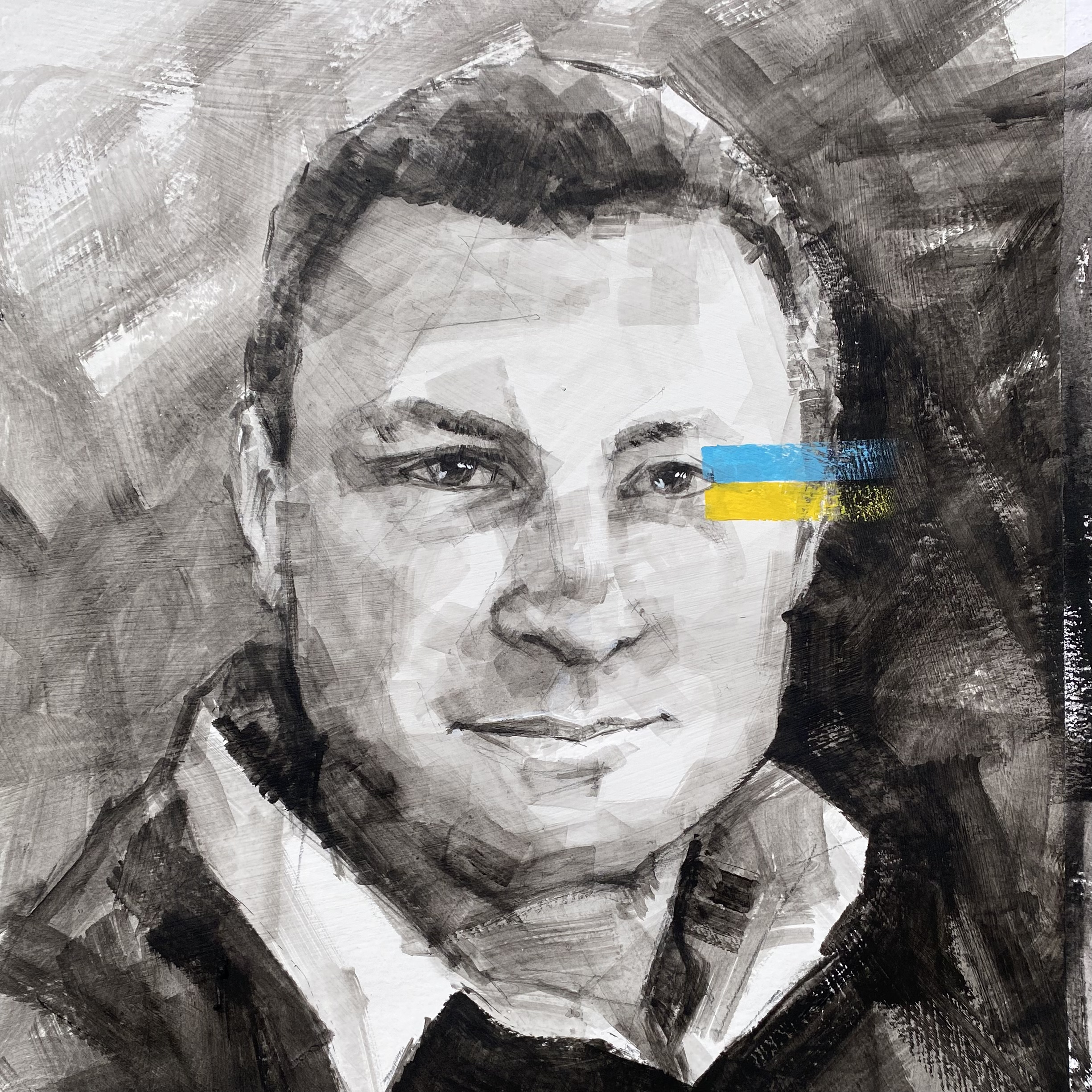
The story of a hostage
The story of a hostage

Kostiantyn Zinovkin
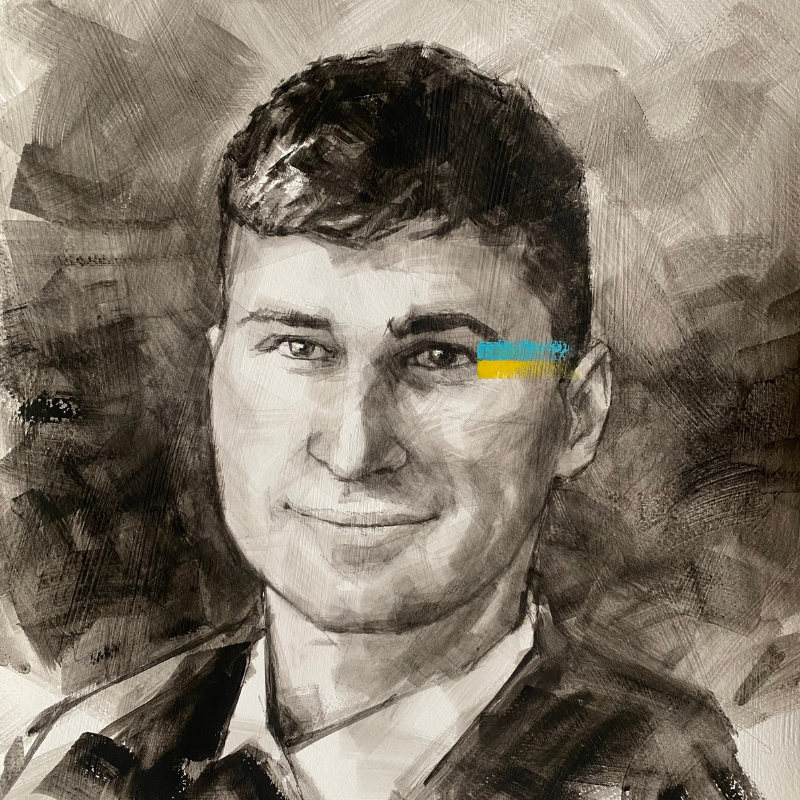
The story of a hostage
The story of a hostage

Date of abduction: May 12, 2023
Place of abduction: Melitopol, Zaporizhzhia region
When Russia launched a full-scale invasion of Ukraine, 29-year-old Kostiantyn Zinovkin stayed in his native Melitopol to take care of his mother and grandmother. Very quickly, the invaders occupied the city and began abducting people and searching their homes. On May 12, 2023, Kostiantyn left home and never returned. However, three unidentified men in civilian clothes broke into his apartment, interrogated his mother and grandmother, and searched the house. They said Konstantin was detained "for violating the regime" and would be released soon. For about a month, the family did not know what happened to him, and then the occupiers accused Kostiantyn of terrorism and an attempt to blow up a person. “For you to understand, we have not eaten meat for many years because we do not want animals to suffer because of us. To blow up a man is very wild and unlike him," says his wife, Lucienne. In July 2023, the Russians took Konstantin to Detention Center #2 in Chongar. There, hostages are kept under round-the-clock video surveillance and tortured. In May, the Russians started "criminal proceedings" against Konstantin Zinovkin. Every few months, he is brought to the "courts," where the preventive measure is extended, but neither his wife nor his mother knows the details of the hearings. The last hearing took place on January 25. Since then, Zinovkin's family has no information about him.Dmytro Bohayevskyi
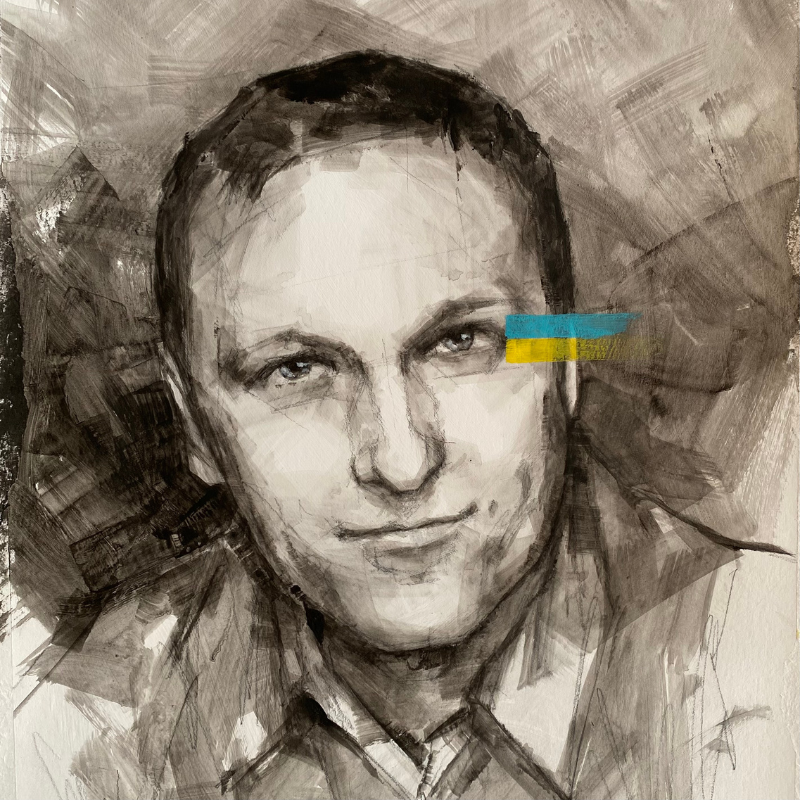
The story of a hostage
The story of a hostage

Dmytro Bohayevskyi
Date of disappearance: March 17, 2022
Place of disappearance: Hlibivka, Kyiv region
Dmytro Bohaievskyi is an entrepreneur from Hlibivka, in the Kyiv region. When the full-scale invasion of Russia began, he stayed at home and looked after the local cottage community. On March 16, the occupiers illegally searched these houses, and on March 17, Dmytro was abducted allegedly for "opposing the special military operation (SVO)". Along with him, the Russians also took Oleksandr Chyrkov, who lived nearby. For several days, Tetiana and Ihor Bohaievskyi tried to find out from the Russians where their son was and to at least send him warm socks and medicine, as Dmytro suffers from allergies and asthma. However, the occupiers did not disclose his whereabouts, and during the de-occupation, they fled, taking with them the Ukrainians they had illegally detained. Ihor and Tetiana searched for their son in all the surrounding villages and towns but to no avail. They only found other prisoners whom the occupiers had abandoned in basements, but there was no news about Dmytro. Only later did freed civilians and military personnel tell Bohaievskyi's parents that the Russians had first held him illegally in a Bryansk detention center and then transferred him to Tula. There, the Russians feed Ukrainians terribly, force them to sing the Russian anthem, and even stage mock executions. Due to the poor conditions, Dmytro lost a significant amount of weight. "I would never have thought he had been so full-figured," one of the freed prisoners told Tetiana Bohaievska.
This publication was compiled with the support of the International RenaissanceFoundation. It’s content is the exclusive responsibility of the authors and does not necessarily reflect the views of the International Renaissance Foundation.
Dmytro Khyliuk
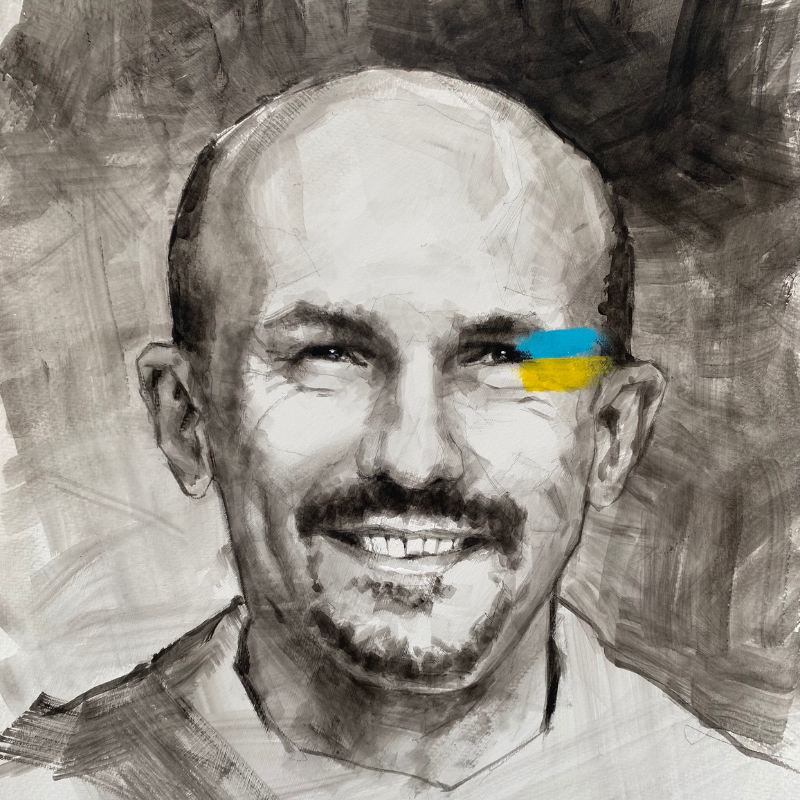
The story of a hostage
The story of a hostage

Dmytro Khyliuk
Date of disappearance: March 3, 2022
Place of disappearance: Kozarovychi village, Kyiv region
In March of last year, Dmytro Khyliuk, a journalist with one of Ukraine's largest news agencies, UNIAN, was abducted by the Russian military near his home in the village of Kozarovychi near Kyiv. After the full-scale invasion began, Dmytro could not leave for a safer place because he was taking care of his elderly parents. On March 1, 2022, the village came under occupation, and leaving was impossible. Almost immediately, the Russians searched the journalist's home, and then a shell hit his house, partially destroying it. So the family moved in with neighbors. On March 3, Dmytro and his father decided to inspect their house again to assess the damage. However, they did not get there: Russian soldiers attacked them right in the street. Dmytro's father, Vasyl Khyliuk, recalls the events: "They started shouting: "Hands up! Lie down!" They put us on the ground, searched us, even took off our boots, shot Dima under the ear, and then picked us up, put our jackets over our heads, and led us away."
Both men were detained in the Kyiv region and transferred from place to place several times. Finally, on March 11, Vasyl Khyliuk was released, and Dmytro was taken to Russia. As the international organization Reporters Without Borders journalists found out in their investigation, the journalist was first held in SIZO No. 2 in the city of Novozybkov, Bryansk region. According to a former prisoner interviewed by Reporters, special forces in the detention center regularly interrogated the journalist about his activities, accusing him of "Ukrainian propaganda and work against Russia." Dmytro Khilyuk was also beaten several times.
At the end of February 2023, a source in this pre-trial detention center, who has access to all the cells in the old building, told Reporters that Khilyuk had not been in this part of the prison since the beginning of 2023. It is unknown whether the journalist was transferred to another detention center or removed from the facility. After Dmytro's arrest, his parents received the only news from him - a letter dated April 14, 2022, in which their son wrote that he was alive and well. These few words, written in the spring, reached his parents only in September last year.
Ivan Honchar
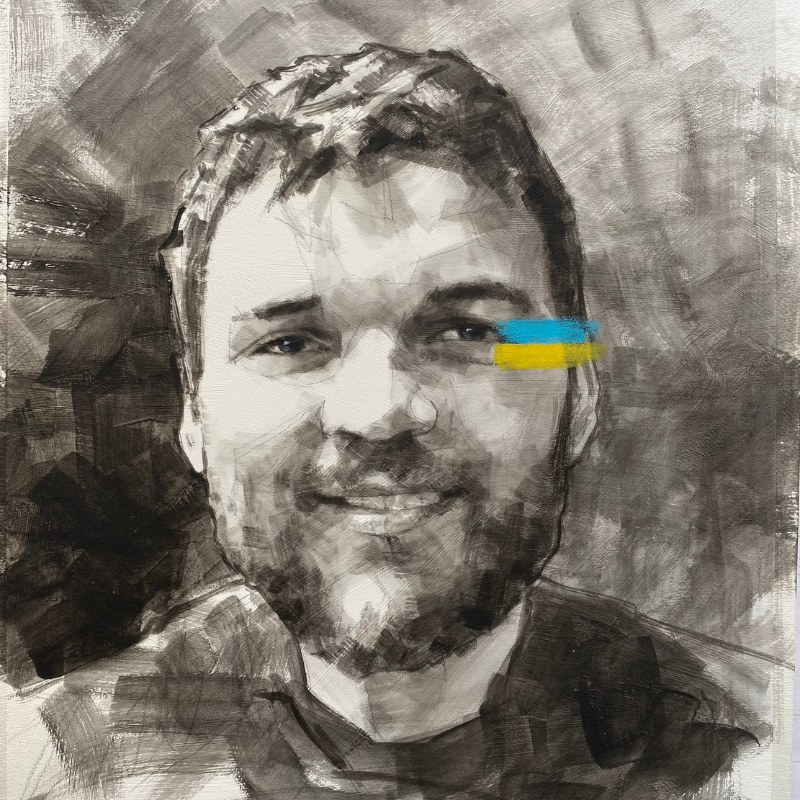
The story of a hostage
The story of a hostage

Ivan Honchar
Date of disappearance: April 9, 2022
Place of disappearance: border with Russia near Novoazovsk, Donetsk region
The beginning of the Russian invasion was witnessed by 24-year-old Ivan Honchar in Mariupol, a city on the coast of the Azov Sea. He had a successful business there: he owned a branded clothing and footwear store.
From the first days of the full-scale war, Russia began shelling Mariupol, and Ivan, along with his girlfriend and mother, hid in a private house. Soon a Russian missile hit the house, and he and his family miraculously survived. They moved to a large bomb shelter near the Azovstal stadium. About 150 townspeople were hiding there. However, on April 5, 2022, the bomb shelter also failed: after the hit, a fire broke out and the room was filled with smoke. Civilians were forced to go outside in the middle of the night, while the occupiers kept pouring fire on the city.
Ivan and his family sought shelter on the seashore. There, the Russian military directed them toward the border. According to Ivan's brother Ilya, Chechens started harassing him on the way, accusing him of belonging to the Ukrainian military. "He grew a beard and had an athletic appearance, although he had never served anywhere," says Ilya.
On April 9, Ivan, his mother and girlfriend decided to cross the Russian border, intending to reach Ukraine via Russia, Georgia and Europe. But at the border, Ivan disappeared. Separately from other family members, he was summoned to one of the offices. That was the last time his family saw him.
For many months, there was no news about him. Only in the fall of 2022, the Russian Ministry of Defense confirmed that Ivan Honchar had been detained for opposing the so-called special military operation. In February 2023, a prisoner released from captivity reported that Ivan was held in Taganrog, Russia, and then transferred to the city of Kamensk-Shakhtynsky. According to a former prisoner with whom Illya spoke, prisoners there are subjected to psychological and physical violence. In particular, in Kamensk-Shakhtynsk, dogs are set on them, stones are thrown at them, and they are beaten with a stun gun.
Musayev Ramiz
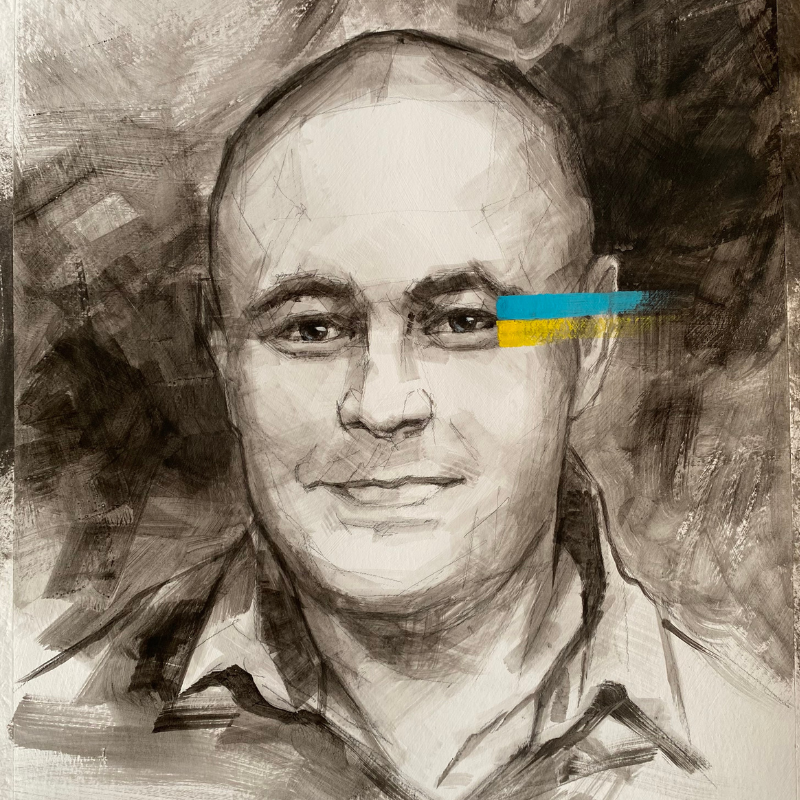
The story of a hostage
The story of a hostage

Musayev Ramiz
Date of abduction: February 26, 2022
Place of abduction: Ozero village, Kyiv region
On February 26, 2022, Ramiz Musayev, a 27-year-old brick factory worker from the village of Lubianka, Kyiv region, was supposed to pick up a relative from the neighboring village of Ozeri. Ramiz set off with a family friend and his sister's husband.
— “They went to a neighboring village four kilometers away from home,” says Olha, Ramiz's sister, “but they never got in touch again. “After the de-occupation of Kyiv region, we found out that the boys were stopped by the Russian military, searched their car, and taken to the already seized Gostomel airport.
The cold storage facilities of Gostomel airport are one of the largest places of detention of civilians and prisoners of war in the north of the country. Other hostages of the MHRC have reported that Russians conducted brutal interrogations and beat and abused Ukrainians there. At least one civilian was killed, and his body was hidden on the territory of the airport. Ukrainians were often not given food. There were cases when detainees were given one Russian ration for 30 people. The prisoners were also forced to load the corpses of Russian soldiers.
Then all three were transferred to the Kursk pre-trial detention center and later to a penal colony in the Kursk region. In the summer of 2022, Ramiz's family received a letter from him, from which it became known that the man had been transferred to Crimea, and that he was holding on and sending greetings to his family.
— “I know from my released husband that Ramiz was taken to Crimea in September 2022,” says Olha, “and in 2023, it became known that he was transferred to a colony in the Tula region again. However, according to the latest information, my brother is being held in a general regime colony in Kamensk-Shakhtynsk, Rostov Oblast.
Witnesses, whom Olga found, said that Ramiz Musayev has lost weight, but he does not lose faith in returning home. He dreams of playing sports and is waiting for his release.
This publication was compiled with the support of the International RenaissanceFoundation. It’s content is the exclusive responsibility of the authors and does not necessarily reflect the views of the International Renaissance Foundation.
RELEASE HOSTAGES: A DEMAND FOR FREEDOM CAMPAIGN
Release Hostages: A Demand for Freedom Campaign calls on the international community for action to save lives and help free Ukrainians taken hostage by Russia.
We launched this platform to draw the world's attention to the problem of the Russian Federation's detention of Ukrainian civilians. RF has and continues to abduct them in the occupied territories. We are talking about regular people — drivers, doctors, teachers, journalists, and other people of various professions, ages, and genders, who mainly did not support the occupation. Even minors are detained. According to the MIHR, as of the end of August 2023, 1122 civilians were held hostage by the Russian Federation. The number of such cases may be several times higher as detentions continue even as you read this.
Detentions are arbitrary and without explanation — neither the detainees nor their relatives often know why they are in detention centers and prisons. Our organization has managed to identify more than 80 operating places of detention, both in the occupied territory and in the part of the Russian Federation. People are tortured and kept in terrible conditions there. We know of cases of deaths in captivity.
The Russian Federation is silent about them, as well as concealing the names of all those it detains, refusing to provide information to their families, preventing them from receiving medical care, hiring a lawyer, writing a letter, or sending a parcel. Even the International Committee of the Red Cross is powerless — Russia does not allow its representatives access to places where civilian hostages are held.
We tell the stories of the hostages and their families, and together with them, we ask for help to bring every Ukrainian home. Join the Release Hostages: A Demand for Freedom Campaign and become a part of this important cause.
Oleksandr Kuchai
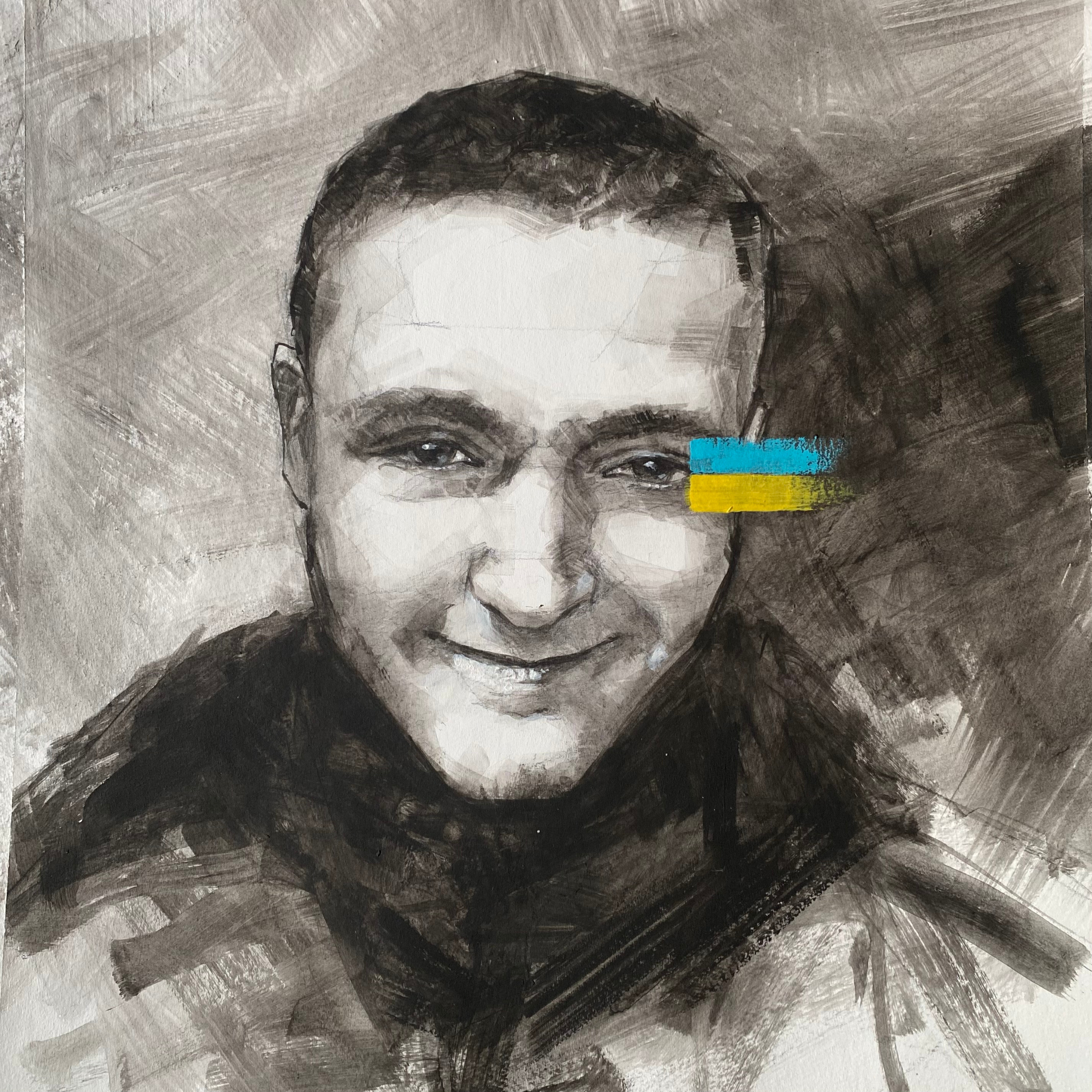
The story of a hostage
The story of a hostage

Oleksandr Kuchai
Date of abduction: March 19, 2022
Place of abduction: Khocheva village, Kyiv region
Oleksandr Kuchai is a resident of Prybirsk, Kyiv region. Before the full-scale invasion of the Russian Federation, the man was making repairs to order, and since February 24, 2022, he has been under occupation. On March 19, Oleksandr and several fellow villagers went to the neighboring village of Khocheva to find communication and inform his family that he was alive. However, on their way back, they were stopped by Russian soldiers who checked the men's tattoos and phones and accused them of filming Russian military equipment. Because of this, the Ukrainians were abducted. Oleksandr Kuchai's parents went to the enemy checkpoint for several days in a row - the captors said they had taken the men to the Chornobyl nuclear power plant and from there to Belarus. They promised that they would return them home in a few days. However, this did not happen. Later, Kuchai's mother, Olena, learned from the released prisoners that the Russians had illegally detained her son in SIZO No. 1 in Novozibkov, Bryansk Oblast, Russia. There, they burned prisoners' tattoos, tortured them with electricity, beat them, forced them to sing the Russian national anthem, did not allow them to sit on their beds during the day, and fed them poorly. One of the prisoners lost his tongue as a result of torture, and some died due to inhumane conditions. In the same year, Oleksandr was transferred from Novozybkiv to penal colony No. 1 in Donskoy, Tula region. There, Russians also torture Ukrainians and force them to sing the Russian anthem. In addition, for more than two years of captivity, the captors have not given Oleksandr Kuchai a single letter from his family. For almost a year, Olena has not known anything about her son's fate.
This publication was compiled with the support of the International Renaissance Foundation. It’s content is the exclusive responsibility of the authors and does not necessarily reflect the views of the International Renaissance Foundation.
Artur Shashenok
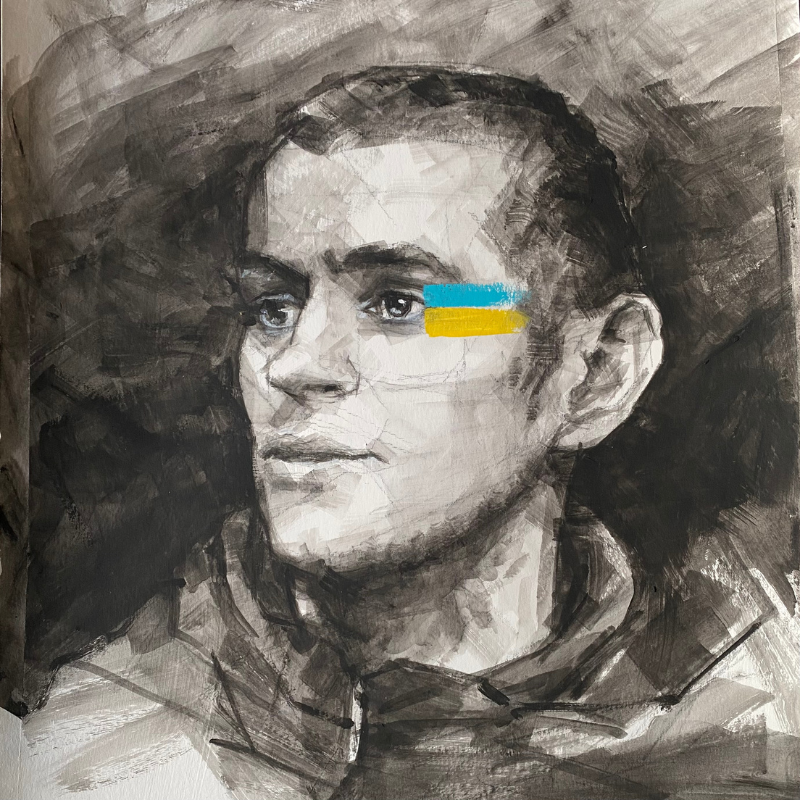
The story of a hostage
The story of a hostage

Artur Shashenok
Date of disappearance: November 15 or 16, 2022
Place of disappearance: Berdyansk, Zaporizhzhia region
Artur Shashenok is a resident of Berdyansk. After the start of the full-scale invasion of Russia, he stayed in the occupied city because he was afraid that the Russians would not let him pass their checkpoints. On November 15, 2022, contact with the boy disappeared, and the next day Artur's mother Halyna learned that the Russians had kidnapped her son and his friend. At first they were kept in a basement in Berdiansk, later moved to Melitopol, and in September 2023, a so-called state lawyer reported that Artur and his friend were taken to Rostov, where they were illegally tried for “terrorism”: they allegedly blew up the deputy occupation head of Berdiansk, Oleh Boyko, and his wife, Olha. The latter were organizing a pseudo-referendum. In letters to his mother, Arthur denies his guilt. In April 2024, the boy was transferred to the closed-type detention center No. 2 in Taganrog. His lawyer was no longer allowed to visit him. Halyna says that her son has lost a lot of weight. During the entire time of his captivity, she was able to send him only one parcel, and the rest were returned. She is appealing to Ukrainian and international authorities to help release her son as soon as possible.
This publication was compiled with the support of the International RenaissanceFoundation. It’s content is the exclusive responsibility of the authors and does not necessarily reflect the views of the International Renaissance Foundation.
Oleksii Kravets
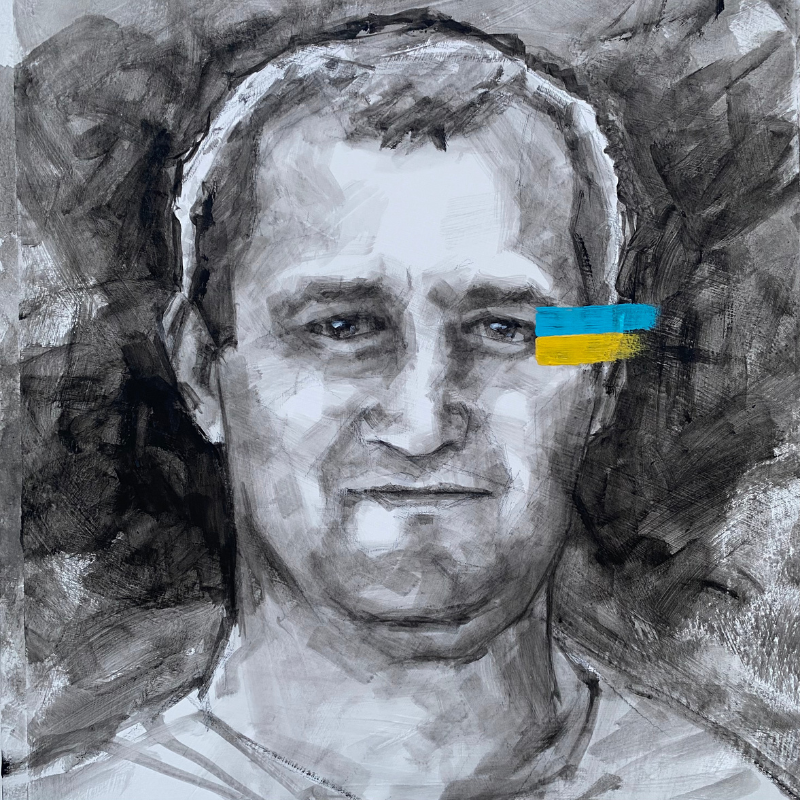
The story of a hostage
The story of a hostage

Oleksii Kravets
Date of disappearance: January 22, 2022
Place of disappearance: Sofiyivka village, Kherson region
Oleksii Kravets is a resident of the village of Sofiivka, Kherson region. Before the Russian invasion, he worked as a railroad security guard and was also involved in power sports, participating in the “Bogatyr Games.”
Since the occupation of the Kakhovka district began, Oleksii Kravets has been a volunteer. He evacuated people from the occupied territory and brought food and medicine to the village.
On January 22, 2023, he was captured by the Russian military from his home. Oleksii Kravtsov was accused of blowing up the car of Andrii Shtepa, who was appointed by the occupiers as the head of the villages of Liubymivka and Vasylivka in Kakhovka district in July 2022. The explosion took place on December 22, 2022, and Shtepa died on the spot.
Alla Kravets, Oleksii's wife, says her husband was not involved. “He was not at the site of the explosion at the time. He was taking a cancer patient to Crimea for treatment,” says Alla.
After the capture, Oleksii Kravets was kept in the basement of a boarding house in the city of Henichesk and then for several months in the Chongar detention center. After that, Kravets was taken to the territory of Russia, where he was held in pre-trial detention centers in the Rostov region.
In November 2023, the Southern District Military Court in Rostov-on-Don sentenced Kravets to 18 years in a strict regime colony with the first 3 years in prison and a fine of 550 thousand rubles. On 13.05.2024, the Military Court of Appeal in Vlasikha, Moscow Region, upheld the verdict against Kravets.
This publication was compiled with the support of the International RenaissanceFoundation. It’s content is the exclusive responsibility of the authors and does not necessarily reflect the views of the International Renaissance Foundation.Dmytro Khyliuk

The story of a hostage
The story of a hostage

Dmytro Khyliuk
Date of disappearance: March 3, 2022
Place of disappearance: Kozarovychi village, Kyiv region
In March of last year, Dmytro Khyliuk, a journalist with one of Ukraine's largest news agencies, UNIAN, was abducted by the Russian military near his home in the village of Kozarovychi near Kyiv. After the full-scale invasion began, Dmytro could not leave for a safer place because he was taking care of his elderly parents. On March 1, 2022, the village came under occupation, and leaving was impossible. Almost immediately, the Russians searched the journalist's home, and then a shell hit his house, partially destroying it. So the family moved in with neighbors. On March 3, Dmytro and his father decided to inspect their house again to assess the damage. However, they did not get there: Russian soldiers attacked them right in the street. Dmytro's father, Vasyl Khyliuk, recalls the events: "They started shouting: "Hands up! Lie down!" They put us on the ground, searched us, even took off our boots, shot Dima under the ear, and then picked us up, put our jackets over our heads, and led us away."
Both men were detained in the Kyiv region and transferred from place to place several times. Finally, on March 11, Vasyl Khyliuk was released, and Dmytro was taken to Russia. As the international organization Reporters Without Borders journalists found out in their investigation, the journalist was first held in SIZO No. 2 in the city of Novozybkov, Bryansk region. According to a former prisoner interviewed by Reporters, special forces in the detention center regularly interrogated the journalist about his activities, accusing him of "Ukrainian propaganda and work against Russia." Dmytro Khilyuk was also beaten several times.
At the end of February 2023, a source in this pre-trial detention center, who has access to all the cells in the old building, told Reporters that Khilyuk had not been in this part of the prison since the beginning of 2023. It is unknown whether the journalist was transferred to another detention center or removed from the facility. After Dmytro's arrest, his parents received the only news from him - a letter dated April 14, 2022, in which their son wrote that he was alive and well. These few words, written in the spring, reached his parents only in September last year.
Vladislav Popovych
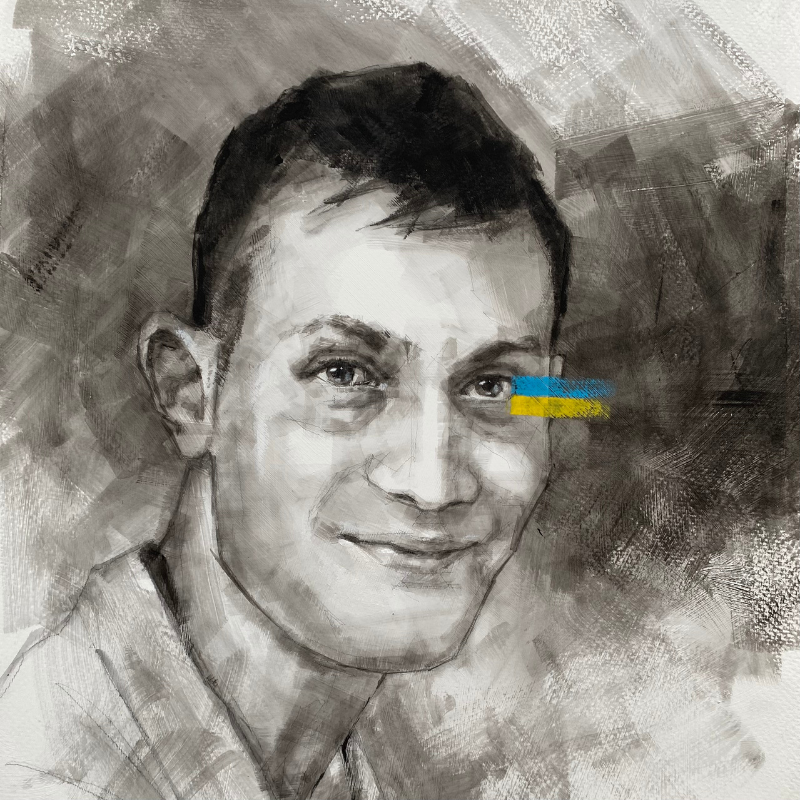
The story of a hostage
The story of a hostage

Vladislav Popovych
Date of abduction: March 02, 2022
Place of abduction: Bucha, Kyiv region
On March 2, 2022, then 29-year-old Vladyslav Popovych left the town of Bucha in the Kyiv region in the direction of the neighboring village of Myrotske. His father's wife was in the car with him. They were carrying groceries for Vladyslav's grandmother. At the time of the trip, neither Vladyslav nor his stepmother knew that the village was already occupied and that civilian houses had been occupied by Russian soldiers, including snipers who were shooting at cars. At the dam connecting the two parts of the village, one hit Popovych's car. As a result of the hit, he was injured in the leg, and his wife was wounded in the jaw. The stepmother says that she and Vlad ran out of the car but lost each other as they ran in different directions.
Vladislav's mother, Tetyana Popovych, managed to reconstruct the events of the next two days. Residents told her that they saw Vladyslav dirty and bleeding. They helped him wash, bandaged his leg, and gave him crutches. On March 5, he set off in search of an evacuation vehicle that was used to take civilians from the occupation to the territory controlled by Ukraine. No one heard from him after that.
The soldiers who returned from captivity as a result of the exchange said that in the spring of 2022, they heard the name and surname of Vladyslav Popovych in Russia in the Kursk detention center. Subsequently, Tetiana received a short letter from Vladyslav, transmitted through the ICRC channels. It contained only a few words: he is alive and being fed. There was no more information about him.
Serhii Khrypun
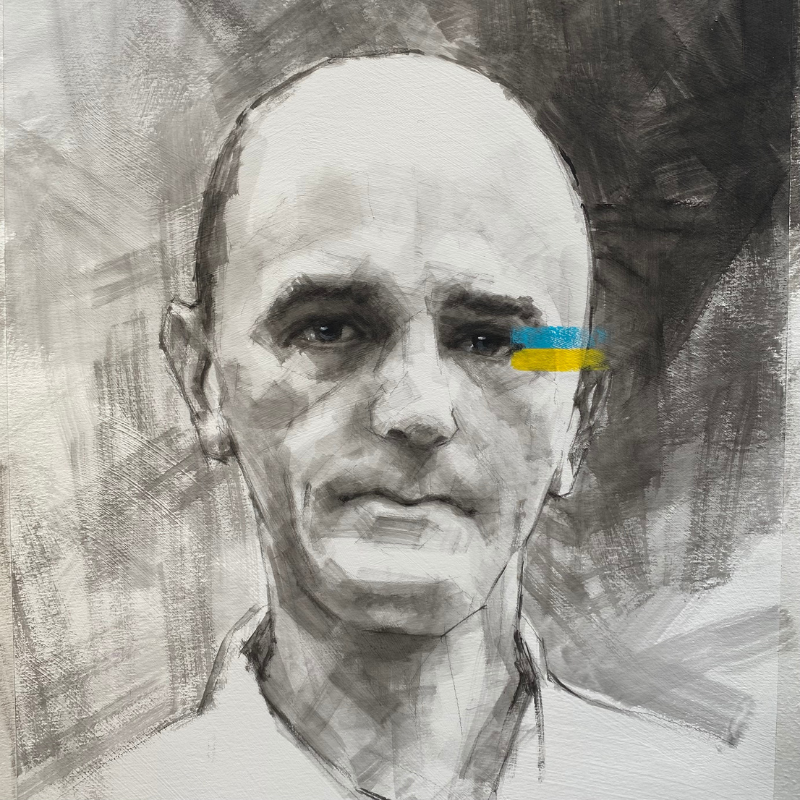
The story of a hostage
The story of a hostage

Serhii Khrypun
Date of abduction: March 24, 2022
Place of abduction: Nove village, Zaporizhzhia region
Serhii Khrypun is a resident of Orikhiv, Zaporizhzhia region. Before the full-scale war, the man worked as a security guard at an agricultural company in the village of Nove, a half-hour drive from his home. On February 22, 2022, Serhii went there for a week-long shift, but the village was under occupation two days later. Russian troops entered the agricultural company where Khrypun worked and set up a headquarters, a field kitchen, and a hospital. In addition, the company hid broken equipment.
Serhii wanted to leave for Ukraine's territory, but he had no documents. The Russians would not let him through without a passport, so Khrypun and his two colleagues stayed at the company.
The man was constantly in touch with his family, calling them. On March 24, his daughter Yulia received news from her father. He said the enemy soldiers had left but called again a few hours later. He said that two Russian KAMAZ trucks had arrived at his workplace and suggested that the Russian military wanted to take away supplies and equipment.
After that, the connection with Serhiy Khripun disappeared. For two days, his family tried to find out what happened to him. Finally, the company's management reported that the occupiers had captured Khrypun and two other workers. CCTV cameras recorded the military searching the company's territory, putting the three men face down on the ground, and then putting them in cars and taking them to an unknown destination.
Yulia only knows what happened next from the stories of other Ukrainian prisoners who managed to return home. According to them, the Russians first held the prisoners in Tokmak and then in Melitopol. There, according to the released prisoners, the conditions were terrible. The prisoners were beaten and starved. Then, they were transferred to a colony in Olenivka, Donetsk region, and from there, they were taken to Kursk, Russia.
As Yulia found out, her father was tortured, and his ribs were broken. He was not provided with medical care.
Roman Kuziomka

The story of a hostage
The story of a hostage

Roman Kuziomka
Date of abduction: March 4, 2022.
Place of abduction: Dymer village, Kyiv region.
Roman Kuziomka lived in the Rivne region but worked at a woodworking sawmill in Dymer, Kyiv region. It was there that he met the full-scale Russian invasion. Talking on the phone with his wife Lesia, the man said that he had seen the Russian and Belarusian invaders, and in the evening of March 4, the connection with Roman was cut off. Only two months later, the volunteer, who was released from Russian captivity, reported that he and Kuziomka were in Bryansk SIZO #2, where the invaders hardly fed them. From there, Roman wrote his wife a letter saying he was alive and well. In January 2024, the exchanged prisoner of war said that he had heard Kuziomka's name during a roll call in one of the detention centers in the Vladimir region of the Russian Federation. However, details about Roman's illegal detention and health are still unknown.
This publication was compiled with the support of the International Renaissance Foundation. It’s content is the exclusive responsibility of the authors and does not necessarily reflect the views of the International Renaissance Foundation.
Andrii Belyi

The story of a hostage
The story of a hostage

Andrii Belyi
Date of abduction: March 13, 2022
Place of abduction: Buryn, Sumy region
Before the full-scale Russian invasion, Andrii Bilyi, his wife, son, and mother lived in the same house in Buryn, Sumy region. Russian troops took control of This town in the first days of the full-scale war.
On March 13, 2022, Andrii and two other residents, Oleksii and Yaroslav, went to look for diesel fuel. The men did not return home that evening. Much later, Oleksii, who was held by the Russians for a month in the Kursk detention center and eventually released, told Vira, Bilyi's mother, that the men's problems began that day at a checkpoint on the outskirts of the city. The Russians stopped their car, and the conversation was initially neutral. However, at the same time, another group of Russians was walking past the checkpoint, dragging burnt equipment.
“They were being chased from Konotop, traveling across the same bridge. They stopped and started asking: “Who are these people? What are they doing here?” They took away their phones and snatched the armed APC (armored personnel carrier). Then they started beating them, threw them into an armored personnel carrier, and drove them away,” Vira recounts Oleksii's words.
When the men did not return home, their wives and mothers searched for them. First, they went to the local police, but they said that no one had been detained that night. Then they went to a Russian checkpoint and were told nothing. A few days later, they found Andriy's car. “The exhaust pipe was hanging off the car, the whole car was covered in pine needles, and the hood was covered in blood. Maybe their heads were beaten against the hood, or they were beaten first and then put on the hood. I don't know,” Vira says.
A few days later, the locals suggested that the men might have been detained and taken to Russia. “They asked for a driver. I don't even know who gave us his number, but we drove to the Kursk region to Tiotkino,” Vira continued.
The driver warned the women that it would be better if only their mothers went. So they did so. Almost at the border, they were stopped: “There is a checkpoint, tanks are there, we can't go any further. Young guys came out, we asked them whether they had brought such and such or not. They said they couldn't know.”
After some persuasion, the Russians assured the women that they had called the Kursk detention center and that the head of the detention center would soon come to them. Two hours later, Vira and the other two mothers were indeed approached by a man who introduced himself as the head of the detention center and confirmed that Andriy, Oleksiy, and Yaroslav were in Kursk. “Don't worry. They will be held for a while and then released. We'll let them make a phone call,” the Russian said, ordering the women to leave. He refused to take the parcel with warm clothes and food, saying they had everything.
However, the call never came. On April 11, 2022, the Armed Forces of Ukraine fully regained control of the state border in the Sumy region.
Later, Vira received two letters from her son: one from the Kursk detention center and the other from the place of detention in Crimea. She also learned from one of the released prisoners that Andriy had been transported to the Rostov region, to the city of Kamensk-Shakhtynsky. She assumes he is still there, but she does not know Andrii Bilyi's exact location.
This publication was compiled with the support of the International Renaissance Foundation. It’s content is the exclusive responsibility of the authors and does not necessarily reflect the views of the International Renaissance Foundation.Damian Omelianenko
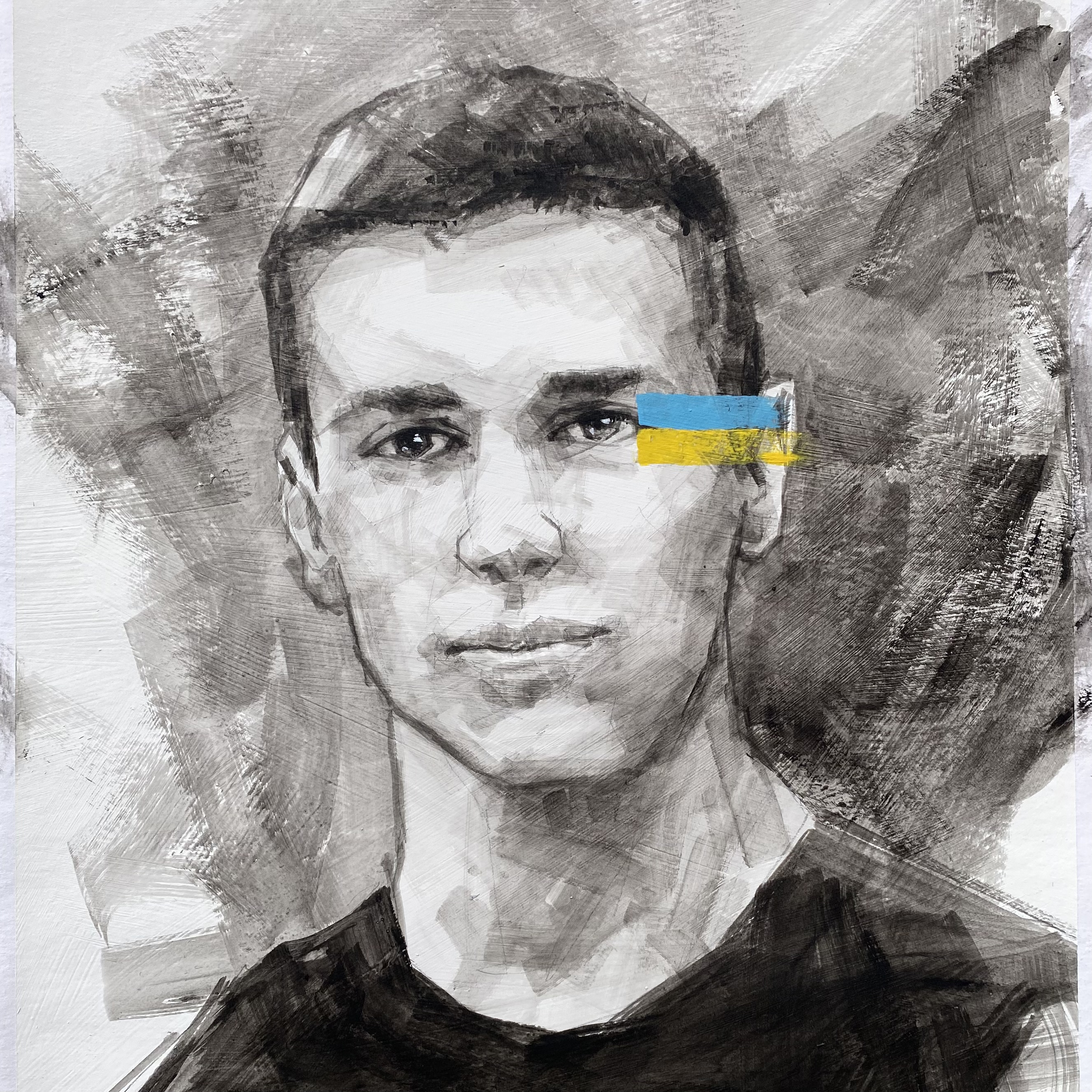
The story of a hostage
The story of a hostage

Date of disappearance: November 16, 2022
Place of disappearance: Berdiansk, Zaporizhzhia region
Damian Omelianenko was only 22 years old when Russian security forces first detained him. It happened on May 24, 2022. He was not told what he was accused of. He was simply taken away and locked up for a month at the local police station.
There, he was tortured: beaten with sticks and electrocuted. When he was finally released, Damian had lost 10 kilograms had broken ribs, bruises, and a swollen leg. He could hardly walk. After all this, he told his mother that he would not survive the second time. However, the second time happened.
On November 16, 2022, Russian special services detained him again. Together with his friend Artur Shashenko and his girlfriend Valeria, who was released after three days, the boys remain in captivity.
The second time, Russian security forces did not limit themselves to physical torture. An FSB representative called Damian's mother, Tatiana. He demanded that she write down a “confession” that she had allegedly cooperated with the Ukrainian special services. Otherwise, he said, she would never see her son or his friend again. Tetiana was afraid to risk the boys' lives, so she recorded the video. The next time, Damian himself called.
"I can't remember a single time when my son cried as an adult" — says the mother.
"My son's voice was trembling. He couldn't breathe properly. It lasted a few seconds, and the connection was cut off."
Two days later — another call. The FSB representative demanded a new video. This time, Tatiana refused.
During his detention, Damian went through several prisons in Berdiansk, Melitopol, Simferopol, Rostov, and Taganrog. It was in Taganrog that he spent more than six months in solitary confinement and lost 30 kilograms. Damian was not allowed to see his lawyer for months, and letters and parcels were not delivered.
Damian is charged with terrorism and involvement in the deaths of pro-Russian collaborators in Berdiansk. He faces life imprisonment. The boy's mother, who has been desperately fighting for her son since the beginning, is now a wanted person herself — Russia has declared her a terrorist.
This publication was compiled with the support of the International Renaissance Foundation. It’s content is the exclusive responsibility of the authors and does not necessarily reflect the views of the International Renaissance Foundation.
Roman Kisil

The story of a hostage
The story of a hostage

Roman Kisil
Date of disappearance: February 26, 2022
Place of disappearance: Ozero village, Kyiv region
Roman Kisil, a 32-year-old resident of the village of Lubianka in the Kyiv region, has been held in Russia for over two years. The man was detained on February 26, 2022, when he and his two friends traveled to the neighboring Ozeri village. The prisoners were taken to the premises of the seized airport in Gostomel, where they were held together with prisoners of war and Ukrainian civilians.
— “In March, Russian propagandists came to the airport,” says Roman's friend, “They were filming prisoners, and we saw Roman. He was lying on the floor among other prisoners, and he had a big bruise on his face.
Roman Kisil and his friends were transferred to the Kursk pre-trial detention center and then to a penal colony. In 2023, the men were separated. Romans were held in a colony in the Tula region and then transferred to a colony in the Republic of Mordovia.
— “We spoke with an exchanged former prisoner of war, Roman's cellmate,” says his girlfriend, “He told us that prisoners in this colony are severely beaten. They often bring huge piles of papers and force them to sign but hide the main part of the document from Ukrainians. The prisoners assume that they are being held as witnesses in some cases, but they have no idea what these cases are.
The former prisoner of war also said that Roman is depressed and very worried about his family.
This publication was compiled with the support of the International Renaissance Foundation. It’s content is the exclusive responsibility of the authors and does not necessarily reflect the views of the International Renaissance Foundation.Yana Suvorova

The story of a hostage
The story of a hostage

Date of abduction: August 20, 2023
Place of abduction: Melitopol, Zaporizhzhia region
Russian security forces broke into the house of 19-year-old Yana Suvorova around three o'clock in the morning on August 20, 2023. The girl was taken away in an unknown direction, and since her parents were not at home at the time, the family learned about the disappearance of their daughter only the next day.
Yana is not a criminal. She is a media person who dared to tell the truth while remaining under occupation. The girl ran a pro-Ukrainian telegram channel, “Melitopol is Ukraine,” informing and supporting the residents of her city and giving them the feeling that they were not alone.
After her arrest, Russian special services hacked the channel and seized control of it. Yana is being held in SIZO #2 in Mariupol, Donetsk region. She faces charges of espionage, terrorism, and participation in terrorist groups. She faces at least 15 years in prison.
This publication was compiled with the support of the International RenaissanceFoundation. It’s content is the exclusive responsibility of the authors and does not necessarily reflect the views of the International Renaissance Foundation.Iryna Horobtsova
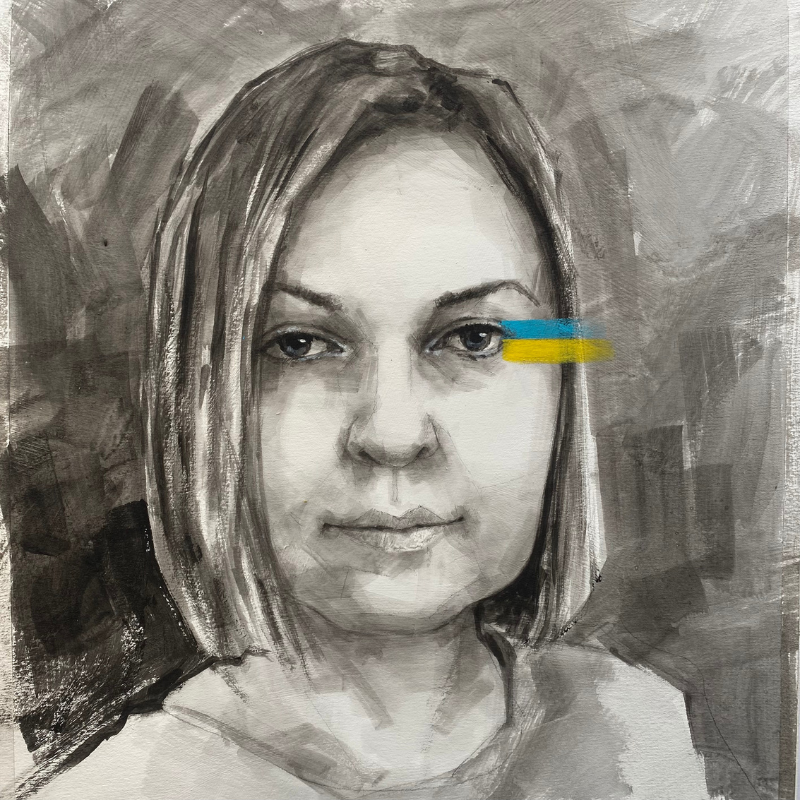
The story of a hostage
The story of a hostage

Iryna Horobtsova
Date of disappearance: May 13, 2022
Place of disappearance: Kherson
Iryna Horobtsova, a resident of Kherson, was abducted on her birthday, May 13, 2022. The woman turned 37. Six masked Russian soldiers broke into her apartment and started searching. Iryna's parents were very scared. Her mother was crying, and the occupants locked her in the kitchen. After turning the house upside down, the Russians left, taking Iryna with them.
Before the occupation, Horobtsova led a successful life in Kherson: she worked in an IT company and studied to become a psychologist. She loved to travel, went swimming, and helped people. When the Russians occupied the city, Iryna drove doctors who lived in the suburbs to work and raised money for the local blood transfusion center. She also attended rallies against the occupation and was not afraid to express her pro-Ukrainian position.
Horobtsova was abducted from her parents' apartment, which overlooked Chornobaivka airport. It was at this airport that the Russians deployed their equipment and personnel, and Ukrainian troops repeatedly hit them. After another effective hit, the Russian military began abducting locals, suspecting them of adjusting fire. One of the victims was Iryna Horobtsova. The next day after her abduction, her parents went to the Kherson detention center to give their daughter a change of clothes. But the occupiers did not allow them to give them any clothes or food. The parents tried every day to get a meeting with Iryna, but in vain. After a while, the detention center informed them that Gorobtsova was no longer there. The woman was taken to the temporarily occupied Crimea. Her parents went to look for her in the Simferopol detention center, but no one there wanted to talk to them. The relatives hired a lawyer in Crimea. He found out that Irina had indeed been brought to the Simferopol detention center, where her fingerprints were taken. Now she is allegedly being held in Sevastopol.
Mykola Petrovsky
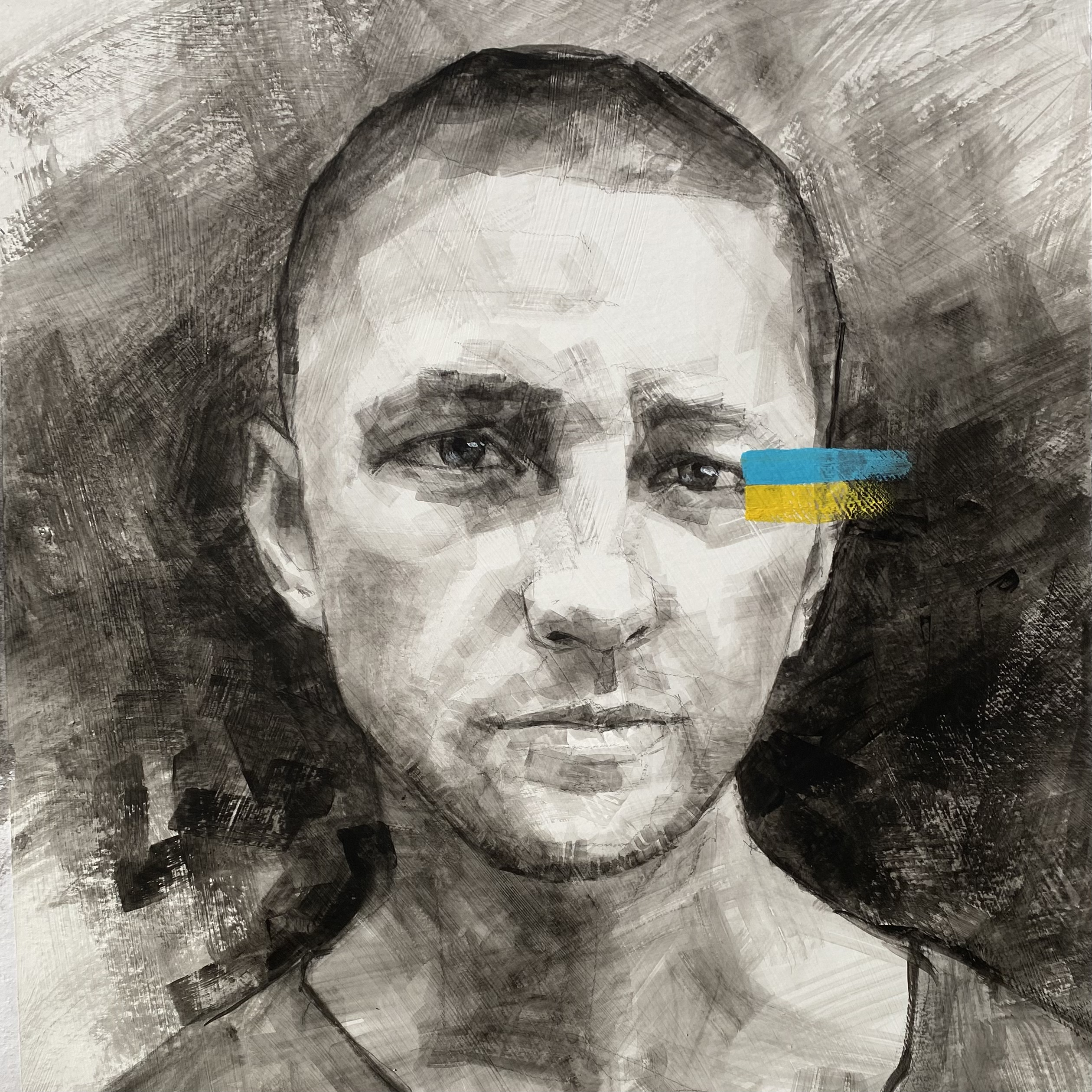
The story of a hostage
The story of a hostage

Musayev Ramiz

The story of a hostage
The story of a hostage

Musayev Ramiz
Date of abduction: February 26, 2022
Place of abduction: Ozero village, Kyiv region
On February 26, 2022, Ramiz Musayev, a 27-year-old brick factory worker from the village of Lubianka, Kyiv region, was supposed to pick up a relative from the neighboring village of Ozeri. Ramiz set off with a family friend and his sister's husband.
— “They went to a neighboring village four kilometers away from home,” says Olha, Ramiz's sister, “but they never got in touch again. “After the de-occupation of Kyiv region, we found out that the boys were stopped by the Russian military, searched their car, and taken to the already seized Gostomel airport.
The cold storage facilities of Gostomel airport are one of the largest places of detention of civilians and prisoners of war in the north of the country. Other hostages of the MHRC have reported that Russians conducted brutal interrogations and beat and abused Ukrainians there. At least one civilian was killed, and his body was hidden on the territory of the airport. Ukrainians were often not given food. There were cases when detainees were given one Russian ration for 30 people. The prisoners were also forced to load the corpses of Russian soldiers.
Then all three were transferred to the Kursk pre-trial detention center and later to a penal colony in the Kursk region. In the summer of 2022, Ramiz's family received a letter from him, from which it became known that the man had been transferred to Crimea, and that he was holding on and sending greetings to his family.
— “I know from my released husband that Ramiz was taken to Crimea in September 2022,” says Olha, “and in 2023, it became known that he was transferred to a colony in the Tula region again. However, according to the latest information, my brother is being held in a general regime colony in Kamensk-Shakhtynsk, Rostov Oblast.
Witnesses, whom Olga found, said that Ramiz Musayev has lost weight, but he does not lose faith in returning home. He dreams of playing sports and is waiting for his release.
This publication was compiled with the support of the International RenaissanceFoundation. It’s content is the exclusive responsibility of the authors and does not necessarily reflect the views of the International Renaissance Foundation.
Vasyl Volokhin
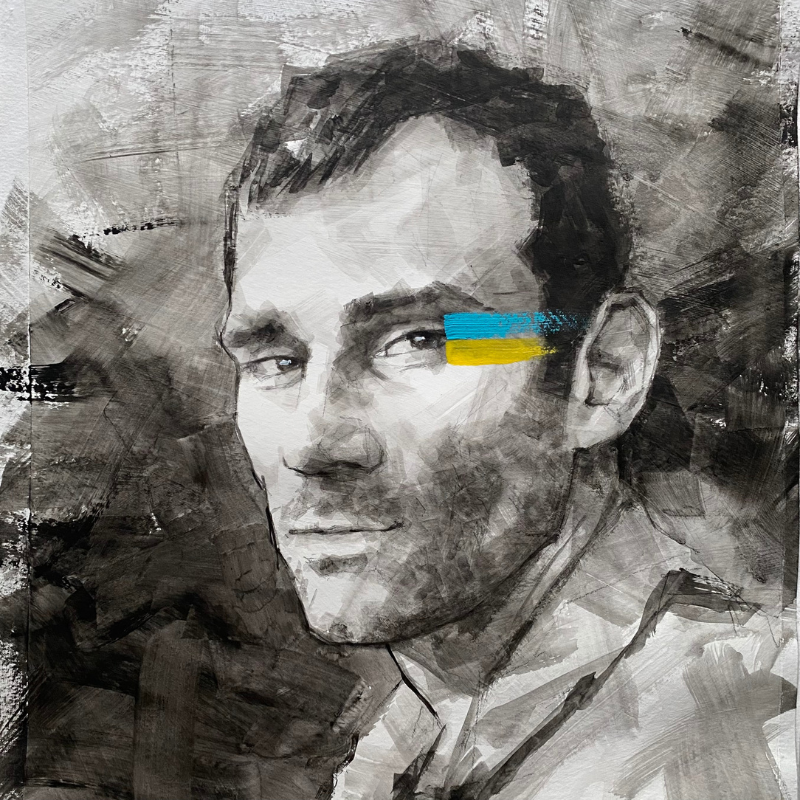
The story of a hostage
The story of a hostage

Vasyl Volokhin
Date of abduction: March 5, 2022
Place of abduction: Dymer village, Kyiv region
It happened on March 5 in Dymer. In the evening, Vasyl Volokhin got on his bicycle and rode toward the Vignaland plant, but he never returned. His wife Olha immediately realized that something bad had happened because the village was under occupation. For some time, waiting for news about her husband, the woman resisted leaving for the territory controlled by the Ukrainian army. But in the end, she left: she was saving her three children, the youngest child was only six months old at the time.
On April 4, 2022, Olha received a call from a woman whose husband had returned from captivity. He said that he was in the same cell as Vasyl Volokhin. As it turned out, the man was held for several days near the Vinnaland plant and then taken to Russia via Gostomel and Belarus. It is unknown why he was detained. Later, his family found a photo of Vasyl in a Russian telegram channel with the caption “captured,” his name, surname, and date of birth. In addition, the family received a letter from him. It contained only two words: “alive and well”. The last known place where Volokhin's detention was held was a pre-trial detention center in Bryansk.
This publication was compiled with the support of the International RenaissanceFoundation. It’s content is the exclusive responsibility of the authors and does not necessarily reflect the views of the International Renaissance Foundation.
Dmytro Bohayevskyi

The story of a hostage
The story of a hostage

Dmytro Bohayevskyi
Date of disappearance: March 17, 2022
Place of disappearance: Hlibivka, Kyiv region
Dmytro Bohaievskyi is an entrepreneur from Hlibivka, in the Kyiv region. When the full-scale invasion of Russia began, he stayed at home and looked after the local cottage community. On March 16, the occupiers illegally searched these houses, and on March 17, Dmytro was abducted allegedly for "opposing the special military operation (SVO)". Along with him, the Russians also took Oleksandr Chyrkov, who lived nearby. For several days, Tetiana and Ihor Bohaievskyi tried to find out from the Russians where their son was and to at least send him warm socks and medicine, as Dmytro suffers from allergies and asthma. However, the occupiers did not disclose his whereabouts, and during the de-occupation, they fled, taking with them the Ukrainians they had illegally detained. Ihor and Tetiana searched for their son in all the surrounding villages and towns but to no avail. They only found other prisoners whom the occupiers had abandoned in basements, but there was no news about Dmytro. Only later did freed civilians and military personnel tell Bohaievskyi's parents that the Russians had first held him illegally in a Bryansk detention center and then transferred him to Tula. There, the Russians feed Ukrainians terribly, force them to sing the Russian anthem, and even stage mock executions. Due to the poor conditions, Dmytro lost a significant amount of weight. "I would never have thought he had been so full-figured," one of the freed prisoners told Tetiana Bohaievska.
This publication was compiled with the support of the International RenaissanceFoundation. It’s content is the exclusive responsibility of the authors and does not necessarily reflect the views of the International Renaissance Foundation.
Ivan Honchar

The story of a hostage
The story of a hostage

Ivan Honchar
Date of disappearance: April 9, 2022
Place of disappearance: border with Russia near Novoazovsk, Donetsk region
The beginning of the Russian invasion was witnessed by 24-year-old Ivan Honchar in Mariupol, a city on the coast of the Azov Sea. He had a successful business there: he owned a branded clothing and footwear store.
From the first days of the full-scale war, Russia began shelling Mariupol, and Ivan, along with his girlfriend and mother, hid in a private house. Soon a Russian missile hit the house, and he and his family miraculously survived. They moved to a large bomb shelter near the Azovstal stadium. About 150 townspeople were hiding there. However, on April 5, 2022, the bomb shelter also failed: after the hit, a fire broke out and the room was filled with smoke. Civilians were forced to go outside in the middle of the night, while the occupiers kept pouring fire on the city.
Ivan and his family sought shelter on the seashore. There, the Russian military directed them toward the border. According to Ivan's brother Ilya, Chechens started harassing him on the way, accusing him of belonging to the Ukrainian military. "He grew a beard and had an athletic appearance, although he had never served anywhere," says Ilya.
On April 9, Ivan, his mother and girlfriend decided to cross the Russian border, intending to reach Ukraine via Russia, Georgia and Europe. But at the border, Ivan disappeared. Separately from other family members, he was summoned to one of the offices. That was the last time his family saw him.
For many months, there was no news about him. Only in the fall of 2022, the Russian Ministry of Defense confirmed that Ivan Honchar had been detained for opposing the so-called special military operation. In February 2023, a prisoner released from captivity reported that Ivan was held in Taganrog, Russia, and then transferred to the city of Kamensk-Shakhtynsky. According to a former prisoner with whom Illya spoke, prisoners there are subjected to psychological and physical violence. In particular, in Kamensk-Shakhtynsk, dogs are set on them, stones are thrown at them, and they are beaten with a stun gun.
Bohdan Shcherba
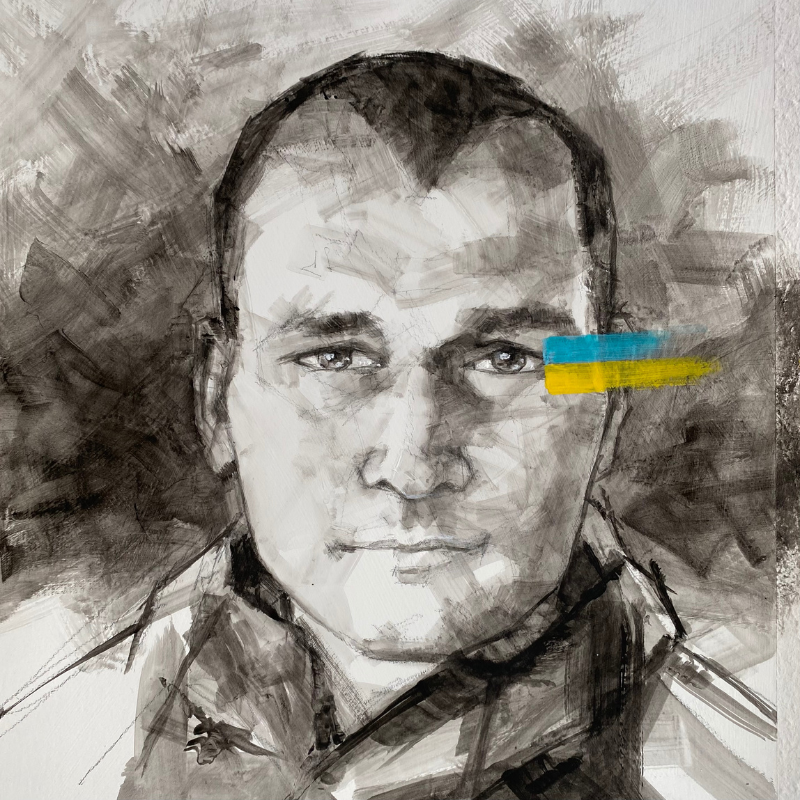
The story of a hostage
The story of a hostage

Bohdan Shcherba
Date of disappearance: February 26, 2022
Place of disappearance: Lubianka village, Kyiv region
Bohdan Shcherba, a mechanical fitter who worked at a brick factory in the village of Lubianka, Kyiv region, was abducted by Russians on February 26, 2022. It was the third day of the full-scale invasion, and Russian troops were moving in on the capital and firing heavily all around. Bohdan, along with his wife, children, her brother, and a friend's family, were setting up a basement for the night. In the afternoon, the husband, a family friend, and his wife's brother drove toward the village of Ozero to pick up a relative but never got in touch again.
— “A few hours later, my father decided to go the same way, but on a bicycle,” says Olha, Bohdan's wife, “but Russian soldiers blocked one of the streets and did not let my father go. I learned from the released hostages that Bohdan's car was stopped and searched. In the glove compartment, the Russians noticed a radio that the brick factory workers where Bohdan and my brother worked used to communicate. The men were abducted.
From her sources, Olha learned that all three were held in the cold storage rooms of the Gostomel airport. There, the men were interrogated and filmed for propaganda channels, where they were presented as “hungry Ukrainian soldiers who surrendered to the Russians.” On March 7, 2022, they were taken from the airport, and on March 13, they were taken to a tent city near the city of Kursk, after which they were transferred to SIZO No. 1 in the same city. All three were held in different cells. After some time, their relatives learned that the boys had been transferred to a penal colony in the village of Malaya Loknya, Kursk region. In November 2022, Olha read in one of the telegram channels that searched for people that her husband was being held in the Taganrog detention center. In the summer of 2023 and winter of 2024, she received information that Bohdan had been transferred to the Kursk detention center again. Currently, the exact place of detention and the state of health of her husband, who has been held in captivity for more than three years, remains unknown.
This publication was compiled with the support of the International RenaissanceFoundation. It’s content is the exclusive responsibility of the authors and does not necessarily reflect the views of the International Renaissance Foundation.Andrii Varvarov
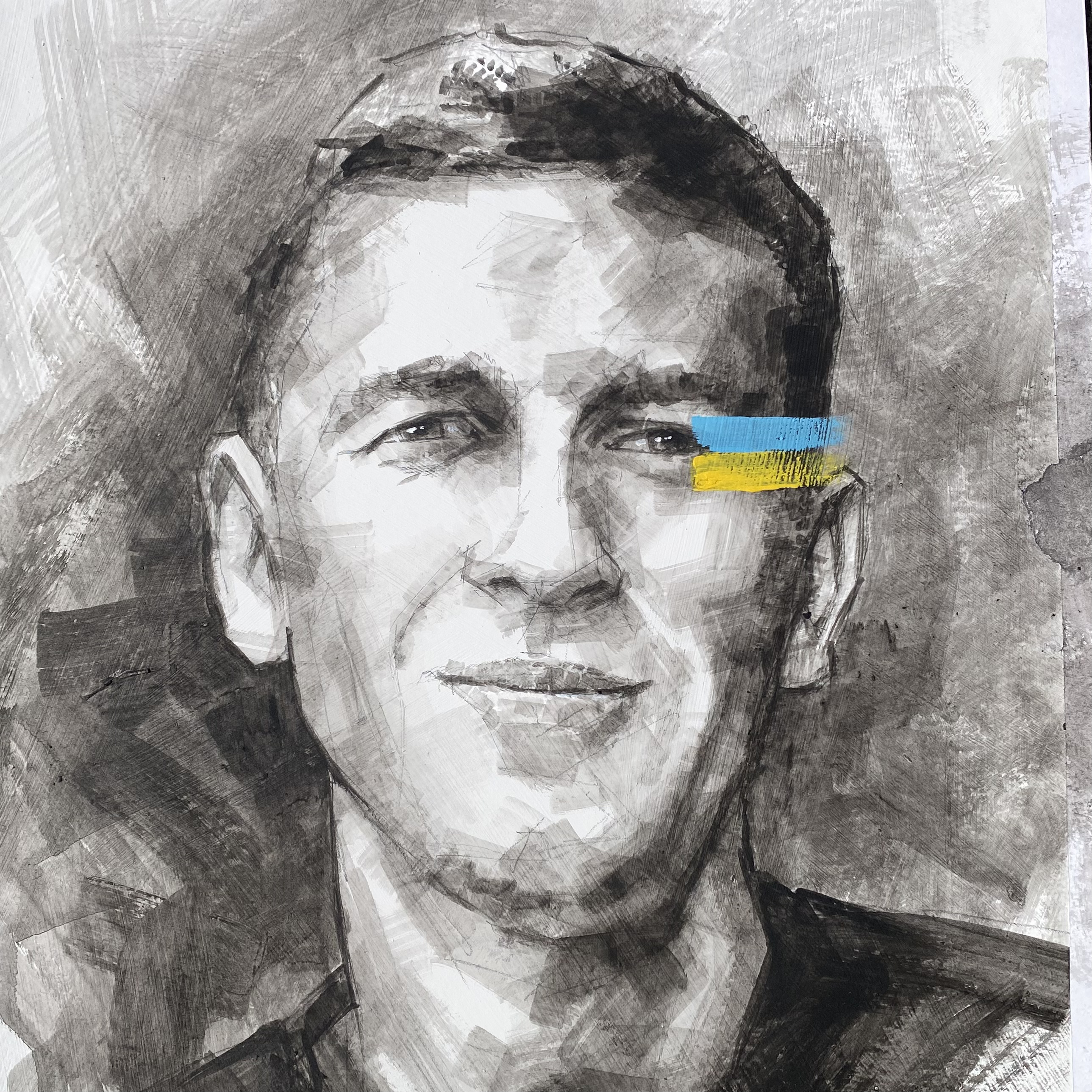
The story of a hostage
The story of a hostage

Oleksandr Mogolenets
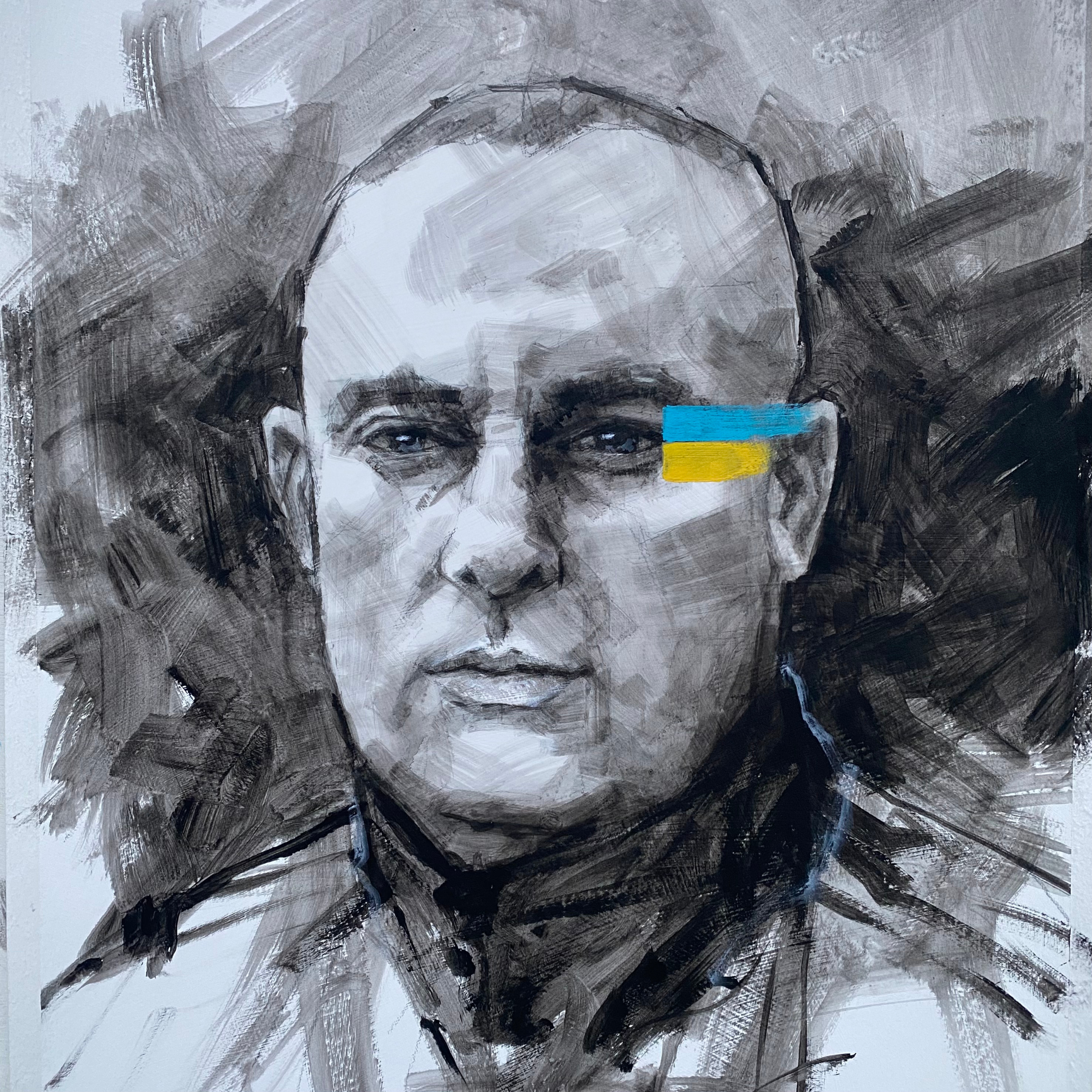
The story of a hostage
The story of a hostage

Oleksandr Mogolenets
Date of disappearance: March 19, 2022
Place of disappearance: Mezenivka village, Sumy region
Oleksandr Mogolenets spent 15 years in the Border Guard Service and participated in the Anti-Terrorist Operation. His contract expired two months before the Russian invasion, and he resigned from the service.
Oleksandr lived with his family in the village of Mezenivka, Sumy region. The village is about 6 km from the Russian border. So, the village quickly became occupied when Russia launched a full-scale invasion. After capturing the village, the occupiers ordered all hunters to hand over their hunting weapons.
On March 19, 2022, on the premises of the local starosta, Oleksandr Moholenets was captured by the Russian military while handing over his hunting weapons. On the same day, he called his wife Kateryna from his phone and said: “I was taken prisoner”. Three days later, several Russian soldiers armed with machine guns searched the house where Oleksandr lived with his family. In April of the same year, Kateryna received a call from an unknown person who said he was sending her greetings from her husband. This was the last news from Oleksandr.
In May 2022, Russian telegram channels disseminated information about Oleksandr Moholenko's capture. According to the latest data, as of July 2024, the Russian authorities are holding Oleksandr Moholenko in penal colony No. 4 in the city of Alekseevka, Belgorod region.
This publication was compiled with the support of the International RenaissanceFoundation. It’s content is the exclusive responsibility of the authors and does not necessarily reflect the views of the International Renaissance Foundation.Valerii Sterzhantov
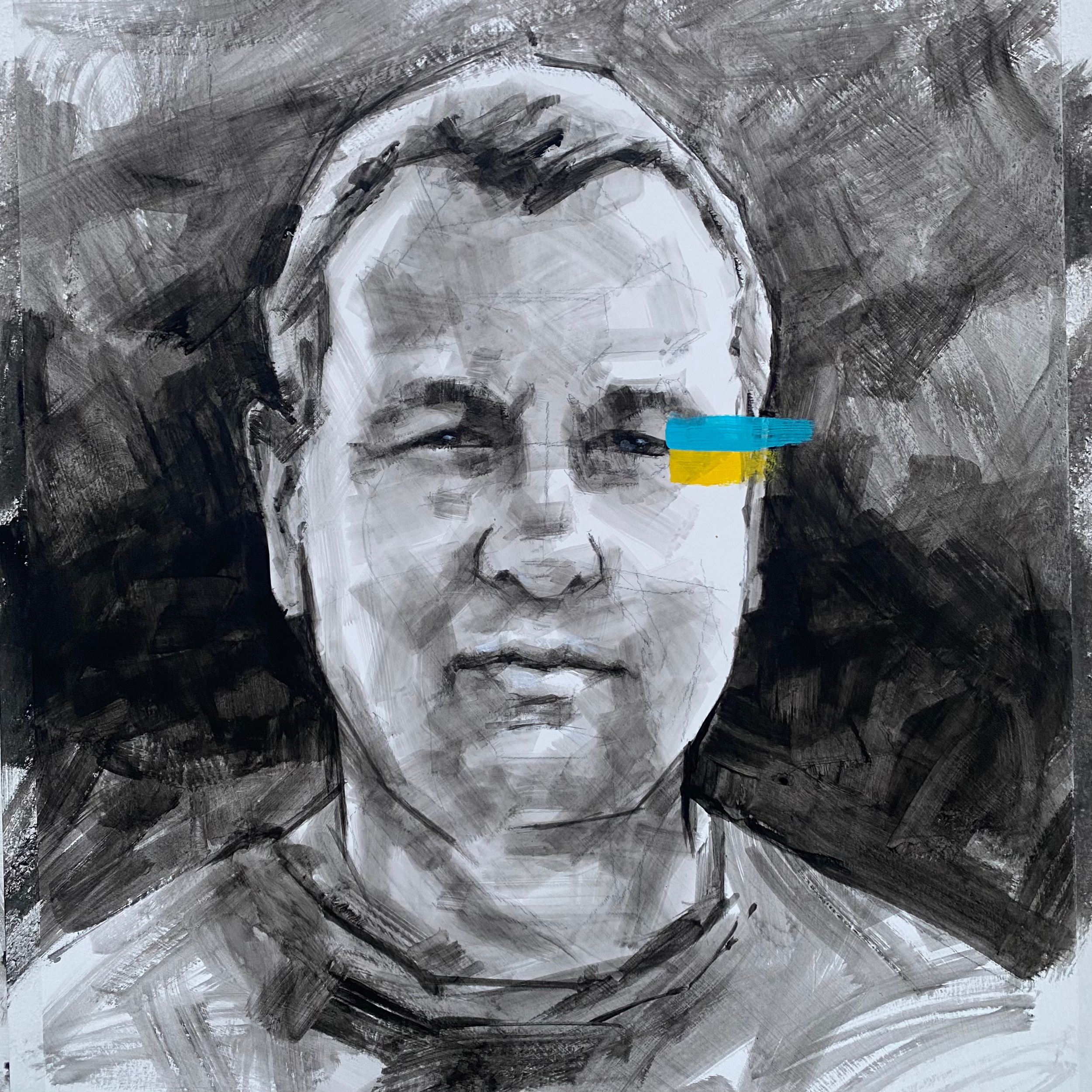
The story of a hostage
The story of a hostage

Valerii Sterzhantov
Date of disappearance: September 21, 2023
Place of disappearance: Melitopol, Zaporizhzhia region
Valerii Sterzhantov is a resident of the village of Sosnivka in the Melitopol region. He was an entrepreneur engaged in agricultural business.
After the Russian army occupied the village, Valerii took his family to government-controlled territory. He returned home alone because he had to care for his elderly father.
On September 19, 2023, at 3 a.m., Russian soldiers broke into the house of 49-year-old Valerii. They searched the house and took his phone, documents and money. Valerii was taken with a bag over his head to an unknown location, where he was tortured with electric shocks in the basement until morning. Then they took him to the forest and left him there.
He came home on his own. On September 21, the security forces called Valerii's friend and suggested that Valerii come to the Refma plant in Melitopol to hand over his documents and phone. On the same day, Valerii went to the appointed place. He never returned home.
Later, his family learned that Russian security forces had captured Valerii Sterzhantov and accused him of espionage. His whereabouts are unknown.
This publication was compiled with the support of the International RenaissanceFoundation. It’s content is the exclusive responsibility of the authors and does not necessarily reflect the views of the International Renaissance Foundation.
Oleksandr Babych
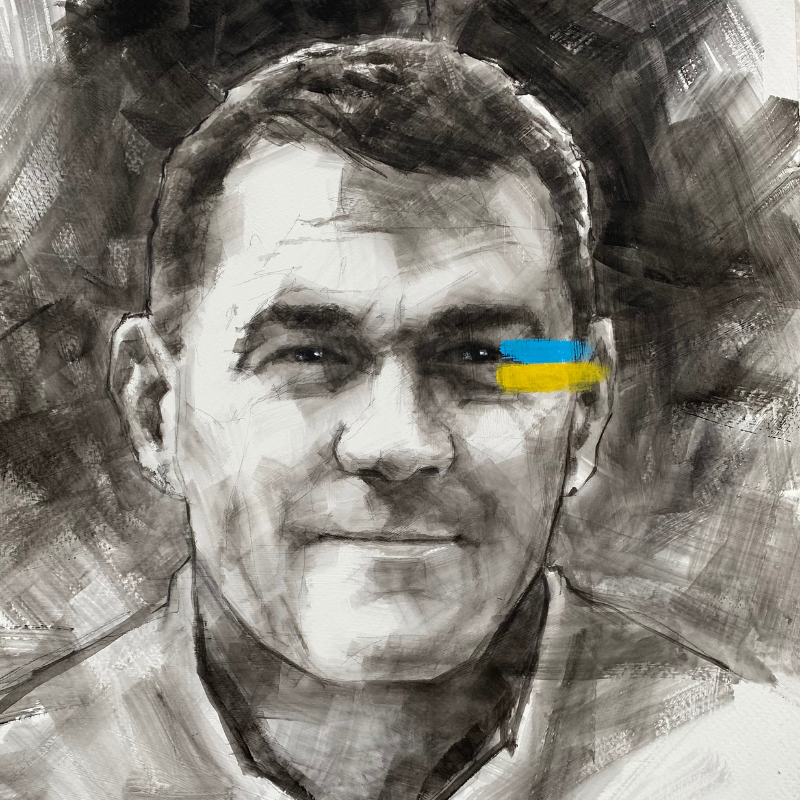
The story of a hostage
The story of a hostage

Oleksandr Babych
Date of abduction: March 28, 2022
Place of abduction: Hola Prystan, Kherson region
Oleksandr Babych is the mayor of Hola Prystan. Russians abducted him on the morning of March 28, 2022. A week before, he had sent his wife and two daughters away from the occupation, and he flatly refused to leave the community. Since the beginning of the great war, Babych has been organizing food deliveries from neighboring villages and towns, delivering humanitarian aid, and in the evening, together with the concerned residents of Hola Prystan, patrolling the streets against looters. Several times, pro-Ukrainian rallies were held in the city, in which Babych took an active part. In a little over a month of living under occupation, the mayor received several threats against him. The Russians gave him an ultimatum, urging him to cooperate. Eventually, the man was escorted to the city council building, where he had a brief conversation with an FSB representative behind closed doors, after which Babchia was put in a minibus and taken away.
Viktor Maruniak, the head of the village of Stara Zburyivka, who was also abducted by Russians in 2022, speaks about possible reasons for the abduction: "Babych has a patriotic position. I've known him for a long time. He has always been active in Hola Prystan, and he served as a deputy of the Hola Prystan City Council for several conferences. He participated in the 2004 Maidan and in the process of dismantling the Lenin monument. After 2014, he helped the army. Every year, money was allocated from the city budget to support the military. Half a million was planned for 2022."
For more than two years, the mayor of Hola Prystan has been held in Simferopol Detention Center 2 in occupied Crimea. The Russians do not officially confirm his detention, do not press charges, and do not provide him with a lawyer.
Roman Ishchenko

The story of a hostage
The story of a hostage

Oleksandr Yarovyi
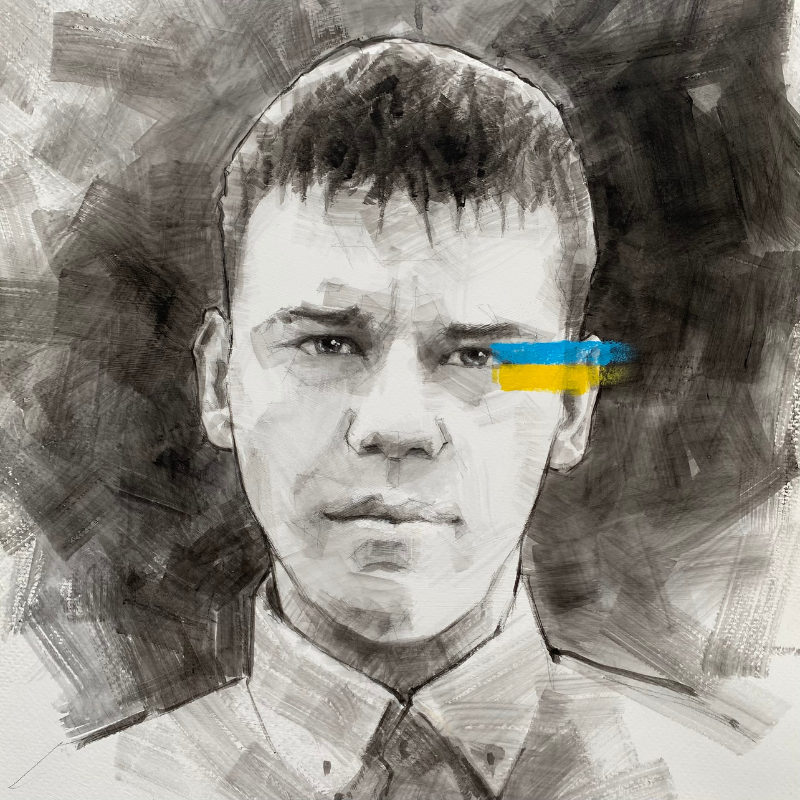
The story of a hostage
The story of a hostage

Oleksandr Yarovyi
Date of abduction: March 2, 2022
Place of abduction: Kozarovychi village, Kyiv region
Columns of Russian troops entered Kozarovychi, Vyshhorod district, on the morning of February 26. When the war broke out, resident Nadiya Yarova was in her house with her husband, Mykola. Her grandson Oleksandr lived nearby and worked in a hardware store in Dymer near Kozarovychi.
"He was supposed to take the goods out of the store, the store owner decided. On that day, March 2, he was supposed to work, but in the evening, he did not answer my call, and on the morning of March 3, there was no contact with him. And in the afternoon. A neighbor said that the work truck was somewhere in the village. I went there. The car was there. The wheels were slashed. And Sasha's house was a mess; it looked like they were searching, but no one was there," says Nadiya, the grandmother of the abducted Oleksandr Yarovyi.
Neighbors say that the Russians came, made the boys kneel, and led them around the yard with their hands up. Oleksandr was among the detainees.
"I did not know where he was for a long time. In mid-March, I was told that a local man had returned from captivity and said that Sasha was being held in Dymer, Kyiv region," says Yarovyi's grandmother. According to her, on March 27, 2022, her grandson was already in the Bryansk detention center, where another hostage had heard about him.
In August 2022, Nadiia Yarova received a letter from her grandson dated April 14. It contained two words: "Alive. Healthy". The International Committee of the Red Cross delivered the letters from the Russian detention center.
Vitalii Profatylov
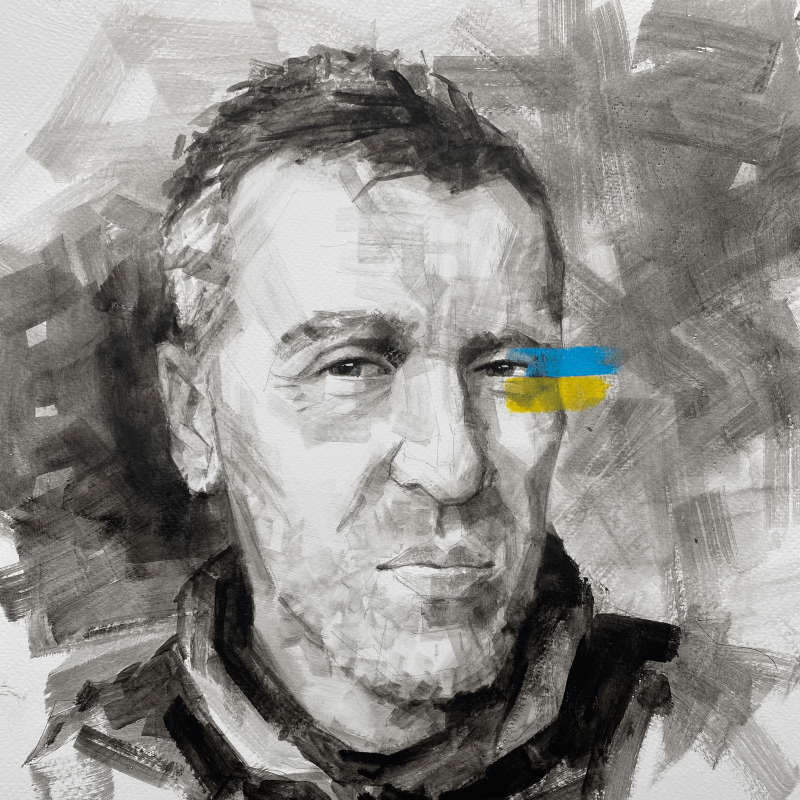
The story of a hostage
The story of a hostage

Vitalii Profatylov
Date of disappearance: April 12, 2022
Place of disappearance: Mariupol, Donetsk region
Vitalii Profatylov, 55, worked as a school bus driver in Novyi Buh in Mykolaiv Oblast, in southern Ukraine. After the Russian invasion began, Vitalii became one of the drivers who agreed to transport mobilized soldiers as Russia invaded Ukraine and began to occupy the territory. At first, the man was told that he would deliver the soldiers to Mykolaiv. But it was impossible to get to the city because of the fighting, so the buses were sent to Mariupol, a city on the Azov Sea, now controlled by Russia. The civilian drivers immediately found themselves surrounded by Russians: they could not get out of the city.
According to Vitalii's wife, Olha Profatylova, the four drivers hid from Russian bombardment at the Ilyich Plant. Despite the shelling, Vitalii tried to call his family from the blockaded city. Profatilov lost contact on April 4, 2022. Two weeks later, his wife found a video with Vitalii — he was among the prisoners of the Olenivska colony in Donetsk Oblast. "Thousands of them were in the colony yard, and I saw my husband in the front row. I recognized him by his clothes. He had changed a lot. Not all relatives recognized him," Olha recalls. Olenivka became one of the places where many Ukrainian prisoners of war and civilians were held. From there, most were transported to the Russian Federation.
According to unofficial information, Vitalii was also taken to Russia, allegedly in Kursk colony No. 1. his family recently received information that Profatilov and other drivers may be held in Mordovia.
Even before the full-scale invasion, Vitalii had significant problems with his liver and heart. The man suffered a heart attack. In addition, he has gouty feet, Meniere's disease, and is deaf in one ear. He used to undergo special treatment every month. His family does not know what Vitaliy's condition is now and whether he receives any help in Russian prisons.
Oleksii Halevych
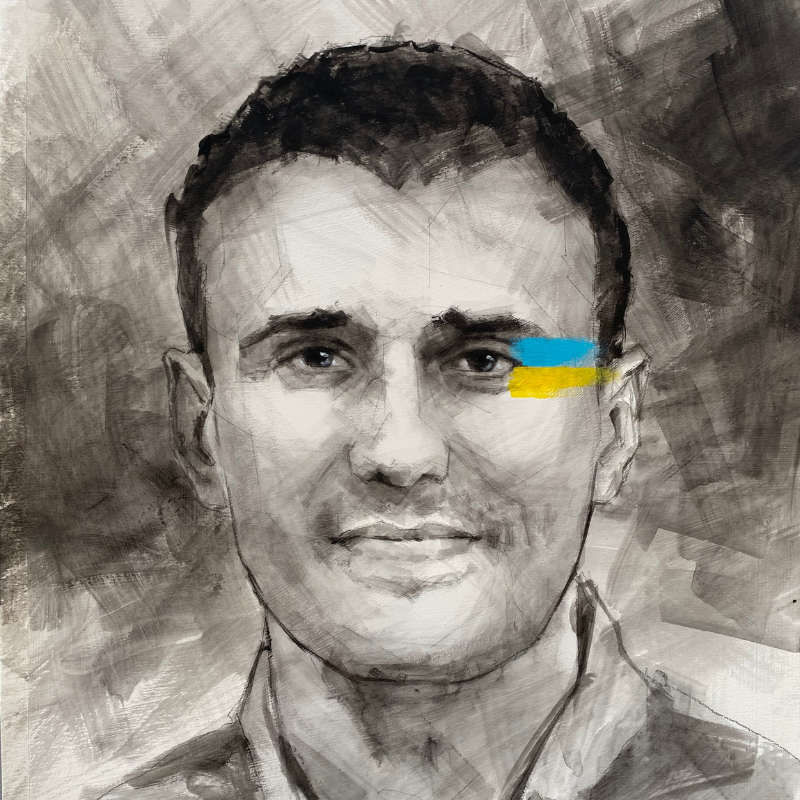
The story of a hostage
The story of a hostage

Oleksii Halevych
Date of disappearance: April 2, 2022
Place of disappearance: Donetsk region
Before Russia's full-scale invasion, Oleksii Halevych lived in the Donetsk region with his wife and son. The 36-year-old worked as a railroad cargo guard.
Russia occupied his hometown on February 26, 2022 - two days after it started a full-scale war. Oleksii and his family wanted to leave the occupied territory immediately, but they did not dare to leave because they had no information about safe evacuation routes.
The man had experience of conscript service in the army from 2019 to 2020. After that, he had nothing to do with the military. On April 2, 2022, the Russians began abducting people who had once served. They came to Oleksii as well. They took him to a local school, interrogated him, and then taped his hands, put a bag over his head, and took him to Novoazovsk, another occupied city in the Donetsk region. According to Oleksii's sister Halyna, 50 civilians were abducted in the village.
For about a month, the family knew nothing about Oleksii's fate. Eventually, through relatives of other prisoners, they learned that Halevych could be in colony No. 120 in Olenivka near Donetsk. The prisoner's parents, who also remained in the occupation, went to Olenivka and gave their son parcels. But a week later, they were told that Oleksii had been taken away. As they found out later, he was taken to the Donetsk detention center.
A few months later, Halevych was transferred to the Kalinin colony in Horlivka, Donetsk region. During his time in captivity, his parents received several letters from him. They learned that civilian hostages, including their son, were being held separately from military personnel in Horlivka. Every morning, the prisoners sing the Russian anthem. The colony is in an awful situation with drinking water, which is taken from a pond and causes digestive problems.
Oleksandr Strogan

The story of a hostage
The story of a hostage

Oleksandr Strogan
Date of disappearance: August 11, 2022
Place of disappearance: Kherson
A 49-year-old trucker from Chornobaivka, Kherson Oblast, Oleksandr Strohan was abducted over a year ago, in August 2022. At the time of the full-scale invasion, the man was traveling abroad, but when he learned that Russian troops had invaded Ukraine, he returned home. The occupied Chornobaivka was an important settlement for the Russian army, and the airport was located there. The enemy positions near Chornobaivka were frequently and accurately shelled by the Ukrainian Armed Forces, so the occupiers were looking for gunners among local residents, conducting searches and detaining civilians. On August 10, the military came to the house of the Strohans and abducted Olha, the wife of Oleksandr Strohan. The woman was taken to a temporary detention center in Kherson. When Oleksandr found out where Olga was being held, he went to get her, but he was also detained. Olga was released soon after. Since then, she has been looking for her husband. It is known that before retreating from the right bank of the Kherson region in October 2022, the Russian military took some civilians with them. Oleksandr Strogan was among them. His family does not know where he is being held now. The man suffers from epilepsy and needs constant medical supervision.
Vitaliy Kuznetsov
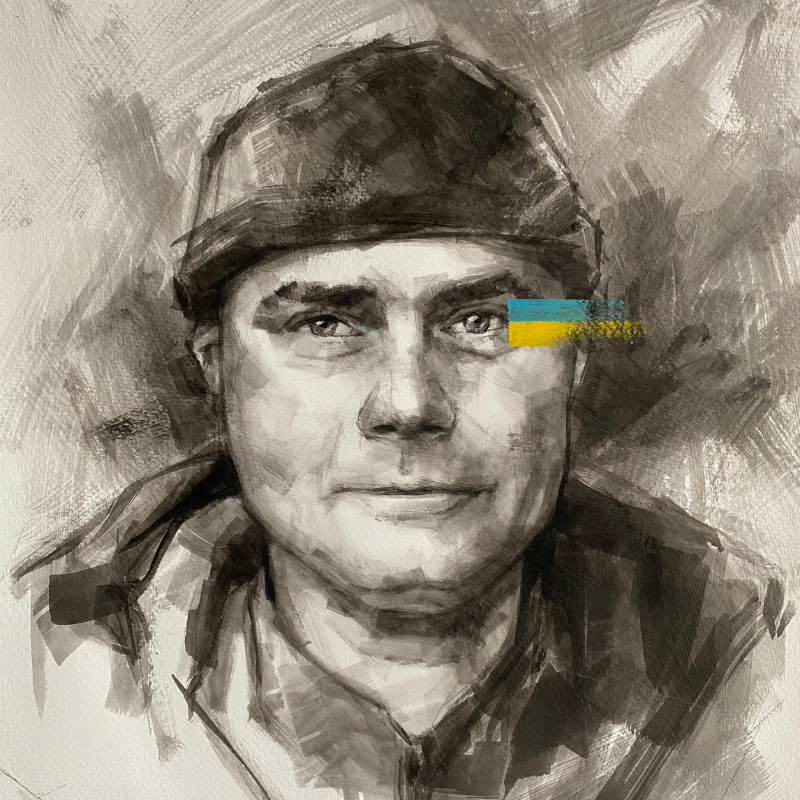
The story of a hostage
The story of a hostage

Vitaliy Kuznetsov
Date of disappearance: April 12, 2022
Place of disappearance: Mariupol, Donetsk region
Vitaliy Kuznetsov is a resident of the village of Pryshyb, Bashtanka district, Mykolaiv region. He worked as a school bus driver. On February 26, 2022, along with other drivers from the Mykolaiv region, he was tasked with transporting mobilized soldiers to the Donetsk region. In a convoy of four buses, Kuznetsov arrived in Mariupol but could not leave because Russian troops surrounded him. Enemy troops were continuously shelling Mariupol with artillery and aircraft. Civilian drivers were forced to hide from the shelling on the territory of the Ilyich Iron and Steel Works. As long as he had the opportunity, Vitaliy Kuznetsov contacted his family and told them what was happening to them.
"They were hiding in the hangars where their buses were parked. His bus was damaged when a shell hit the hangar. After March 16, 2022, Vitaliy said that it became worse. It was impossible even to go out to get water. They were being shelled with various types of weapons," says Margarita, Vitaliy's sister.
The drivers had no food or water supplies. The last time he got in touch was on April 4, 2022. On April 18, his family saw a video on social media that drivers from Mykolaiv region had been captured by Russians along with the military. It turned out that Vitaliy Kuznetsov was captured on April 12, and Russian troops held him first in the Olenivska colony, then transferred him to the pre-trial detention center in Ryazhsk. Ryazhsk in the Ryazan region. His last known place of detention is a prison in Mordovia. His parents and sister are waiting for him in Ukraine.
Anatolii Vaskivskyi
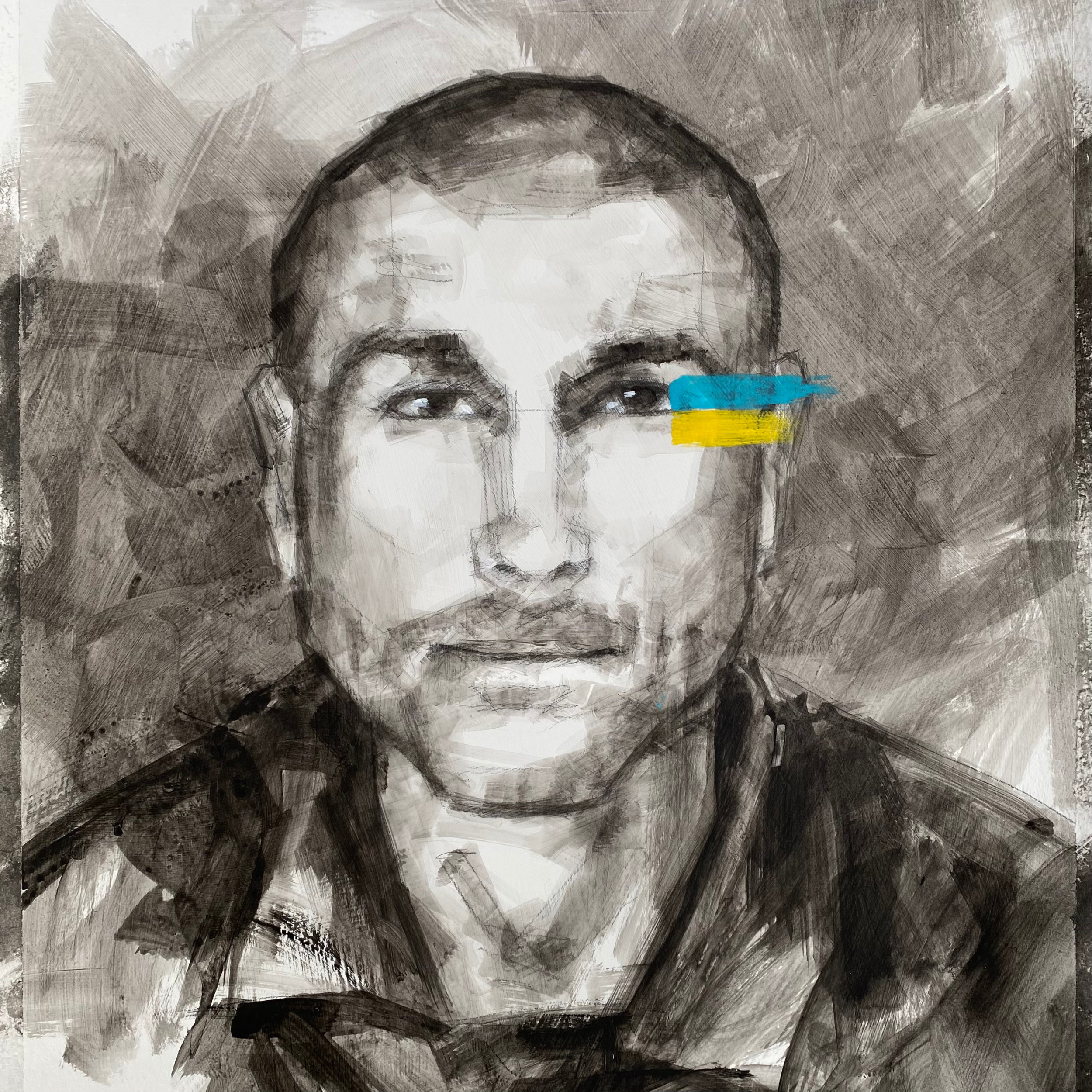
The story of a hostage
The story of a hostage

Anatolii Vaskivskyi
Date of abduction: March 21, 2022
Place of abduction: Vovchkiv village, Kyiv region
Anatolii Vaskivskyi is a former construction worker from the village of Vovchkiv in the Kyiv region. After the start of the full-scale Russian invasion, he and his family found themselves under occupation. On March 21, 2022, Russians broke into his home: Anatolii was beaten and forced to his knees, his phone was demanded, and his wife and sister were illegally interrogated about which of their fellow villagers had weapons and fought in eastern Ukraine. The Russians took Vaskivsky to an unknown location. After the de-occupation of the Kyiv region, the released civilian said that he and Anatolii were held in Obukhovychi, Kyiv region. There, Vaskivsky was tortured by driving a knife under his knee. On April 3 or 4, according to the Ukrainian military, the occupiers took the prisoners towards Belarus. In June 2023, the released prisoners of war said that the Russians held them and Vaskivsky in the Novozybkov detention center in Bryansk Oblast and Donskoy, near Tula. There, the invaders hardly fed the prisoners and did not provide them with medical care. The Russians also confirmed through the ICRC that they were holding Anatolii in captivity. Since June 2023, Vaskivsky's family has not received any new information about him.
This publication was compiled with the support of the International Renaissance Foundation. It’s content is the exclusive responsibility of the authors and does not necessarily reflect the views of the International Renaissance Foundation.
Iryna Navalnaya
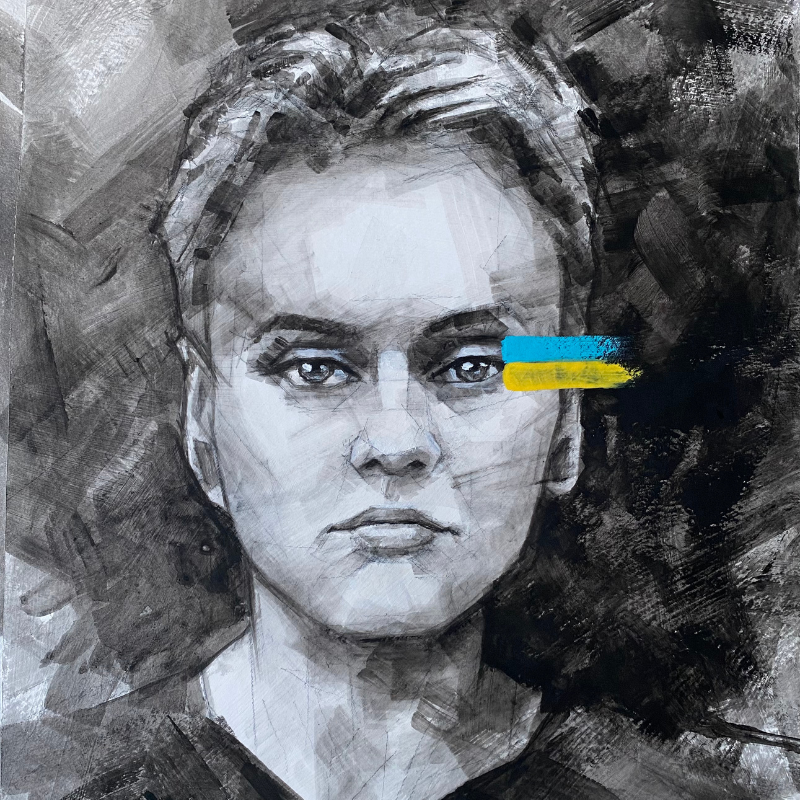
The story of a hostage
The story of a hostage

Iryna Navalnaya
Date of abduction: September 27, 2022
Place of abduction: Mariupol, Donetsk region
Iryna Navalnaya has been in Russian captivity for over two years. The girl was detained on September 27, 2022, and accused of attempting to commit a terrorist attack in Mariupol. They even published a video of Irina allegedly confessing to the crime.
“You can see that she is very scared. She was under a lot of pressure. There is not just fear in her eyes, there is internal hysteria. You can hear her repeating herself,” says Irina's mother Oleksandra Stolyar.
This interrogation video is not the only one. Russians often filmed videos with Irina for TV channels and other Russian resources and even made a movie about her.
“Iryna is convenient for them. She has a surname like Navalnaya, and her stepfather is a military man. It's perfect for making all kinds of videos,” her mother explains.
The woman recalls how it all started. “Once during the filtration, when the Russians saw the name Navalny, they turned Iryna around to face the wall of the tent, put a gun to her head, and started asking questions, laughing loudly and mocking her name. This went on for about two hours. The girl thought they would just kill her, but they let her go, and she was able to leave Mariupol with her mother for the Zhytomyr region. Then they traveled through Donetsk, Moscow, the Baltic States, and Poland. However, later, she had to return to her grandmother. That's when Navalnaya was detained. They came for her at home.
“We have a military apartment, everyone knew about it. The neighbors reported to the occupation commandant's office that someone had started to appear in the apartment. They followed and took her home,” says the mother.
For a month, the family was looking for where Iryna was being held. Then they learned that the girl was in a Donetsk detention center and that a criminal case had been opened against her. According to the women who were held together with the prisoner, Navalnaya was constantly beaten.
This publication was compiled with the support of the International Renaissance Foundation. It’s content is the exclusive responsibility of the authors and does not necessarily reflect the views of the International Renaissance Foundation.
Oleksandr Novatskyi

The story of a hostage
The story of a hostage

Oleksandr Novatskyi
Date of abduction: July 14, 2022
Place of abduction: local market in Kherson
Oleksandr Novatskyi worked in the police of Kherson region. Therefore, the occupiers actively searched for the man and came for him several times. Once, Oleksandr managed to escape through a window. After that, the family had to hide, but the Russians kept looking for them. Once, they came when Novytskyi's wife Nadiya and son Rodion were in the apartment.
The occupants were prepared, they knew everything about the family: contacts, grandmother's disability, the cat's name, etc. Nadiya was interrogated, threatened, and hit in the jaw with a machine gun, and the apartment was searched. Her son was crying, he was 10 years old at the time. The Russian military gave him a real gun to play with to calm the boy down.
Oleksandr was detained when his family left the city. It happened on July 14, 2022, near his home in Kherson's local market. He was beaten and taken to a local detention center, where he was held for about a month. According to the released prisoners, the man was tortured, and at times they were not sure whether Novatsky would live to see the morning.
Several times, the Russians took Oleksandr and went to his home, where they filmed propaganda videos. Through his makeup, you can see bruises on his face and an eye slightly covered with a trickle of blood
Later, the man was brought to Simferopol to SIZO No. 2. He is still there. At first, he was charged with “terrorism,” but no charges were ever brought against him. Despite the harsh conditions of detention, regular beatings, and health problems, Oleksandr did not break morally. Witnesses say he often reads and refuses to accept Soviet propaganda in books.
“They say he has lost much weight and reads a lot. But if he sees a book about the USSR, he says: “Next one.” That is, he keeps his character. I don't know how long this will last. I don't know how he is doing now either. The last time I received news about him was in April 2024,” says his wife, Nadiia.
This publication was compiled with the support of the International Renaissance Foundation. It’s content is the exclusive responsibility of the authors and does not necessarily reflect the views of the International Renaissance Foundation.
Kostiantyn Zinovkin

The story of a hostage
The story of a hostage

Date of abduction: May 12, 2023
Place of abduction: Melitopol, Zaporizhzhia region
When Russia launched a full-scale invasion of Ukraine, 29-year-old Kostiantyn Zinovkin stayed in his native Melitopol to take care of his mother and grandmother. Very quickly, the invaders occupied the city and began abducting people and searching their homes. On May 12, 2023, Kostiantyn left home and never returned. However, three unidentified men in civilian clothes broke into his apartment, interrogated his mother and grandmother, and searched the house. They said Konstantin was detained "for violating the regime" and would be released soon. For about a month, the family did not know what happened to him, and then the occupiers accused Kostiantyn of terrorism and an attempt to blow up a person. “For you to understand, we have not eaten meat for many years because we do not want animals to suffer because of us. To blow up a man is very wild and unlike him," says his wife, Lucienne. In July 2023, the Russians took Konstantin to Detention Center #2 in Chongar. There, hostages are kept under round-the-clock video surveillance and tortured. In May, the Russians started "criminal proceedings" against Konstantin Zinovkin. Every few months, he is brought to the "courts," where the preventive measure is extended, but neither his wife nor his mother knows the details of the hearings. The last hearing took place on January 25. Since then, Zinovkin's family has no information about him.Oleksandr and Iryna Levchenko
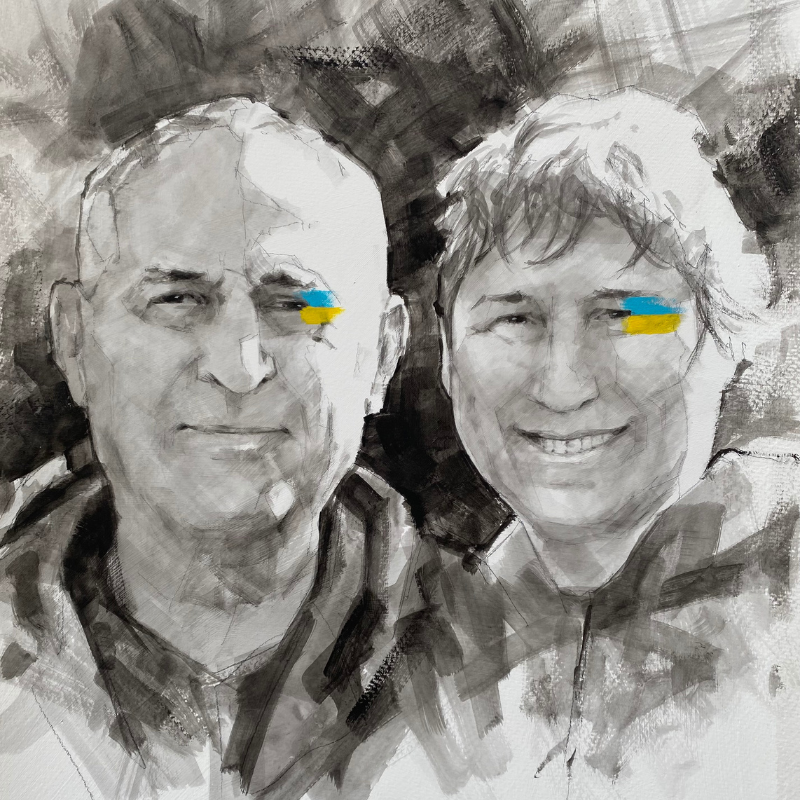
The story of a hostage
The story of a hostage

Oleksandr and Iryna Levchenko
Date of abduction: May 6, 2023
Place of abduction: Melitopol
Russians abducted the 62-year-old Iryna and Oleksandr Levchenko in the spring of 2023. At that time, Melitopol, a city in southern Ukraine, had been under occupation for more than a year after the start of the full-scale Russian invasion. With the arrival of the Russians, the Levchenko family did not want to leave their home. They were sure the occupiers were not interested in ordinary pensioners, so the Russian military would not touch them.
Iryna used to work as a journalist, but since retiring, she has not been involved in professional activities. According to Iryna Levchenko's sister Olena, the couple disappeared on May 6, when they stopped contacting each other. In addition, a mutual friend saw Irina on that day surrounded by Russian soldiers on the street.
So the sister assumes that the occupiers did not like the Levchenkos and captured them in the middle of the city. What happened next to the couple is almost unknown. According to Olena's testimony, Oleksandr was able to send a note from his place of detention in Melitopol. He wrote that he was living in inhumane conditions, sleeping on a concrete floor, with almost no food. After that, an acquaintance brought food and clothes for Oleksandr, but the Russians did not want to accept the parcel.
The Levchenkos' friends also tried to find out more about their fate in the occupation of "law enforcement agencies." Still, they said that the information would be provided only to family members. But all their relatives, including their sister Olena, left Melitopol occupied. So now the relatives have very rough information about the abductees. It is known that Oleksandr is allegedly still being held in Melitopol and accused of "terrorism." It is currently unknown where his wife, Iryna is being held.
Oleh Khvostenko
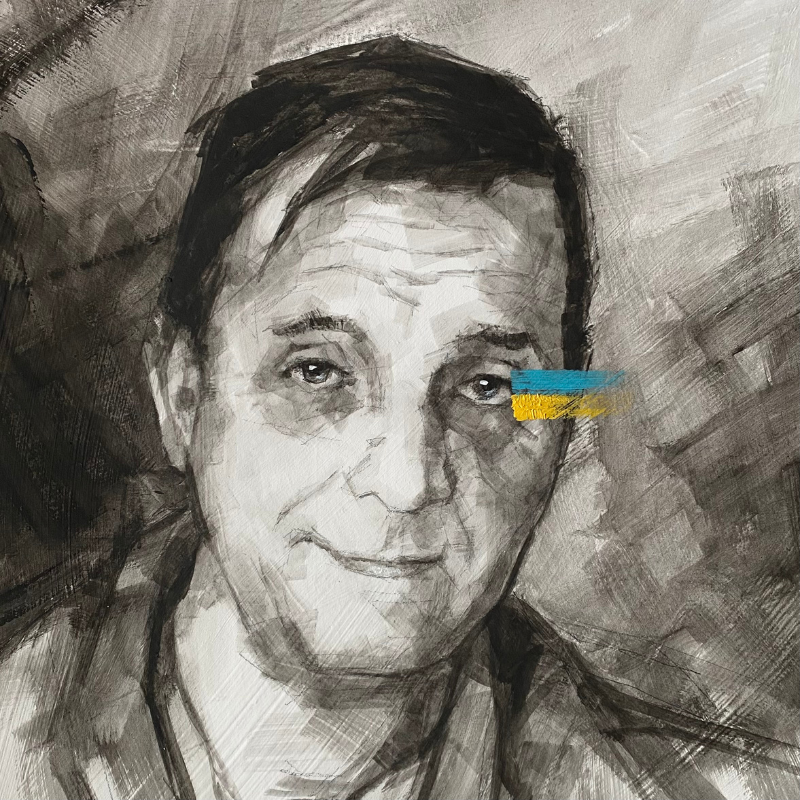
The story of a hostage
The story of a hostage

Oleh Khvostenko
Date of disappearance: July 2, 202
Place of disappearance: Dniprorudne, Zaporizhzhia region
On July 2, 2022, Oleh Khvostenko, a 63-year-old security guard from the city of Dniprorudne, Zaporizhzhia region, went with his cousin's granddaughter to the bank he guarded before the invasion of Russian troops. Near the building, they were shot by Russian soldiers and detained. Soon after, the child was released, and Oleh, according to eyewitnesses, was taken to the occupied city council. Since then, Oleh's family has not heard anything about his fate. Only once did the family manage to find witnesses who claimed to have seen the man, who was handcuffed and, together with other civilians, being transported by truck near the city's waterfront. Oleh's family appealed to Ukrainian law enforcement, the President's Office, and the UN Human Rights Committee, as well as to pseudo-law enforcement agencies in the Russian-occupied territories of Ukraine. However, there is still no new information about Oleh Khvostenko.
This publication was compiled with the support of the International Renaissance Foundation. It’s content is the exclusive responsibility of the authors and does not necessarily reflect the views of the International Renaissance Foundation.
Andrii Harasymenko
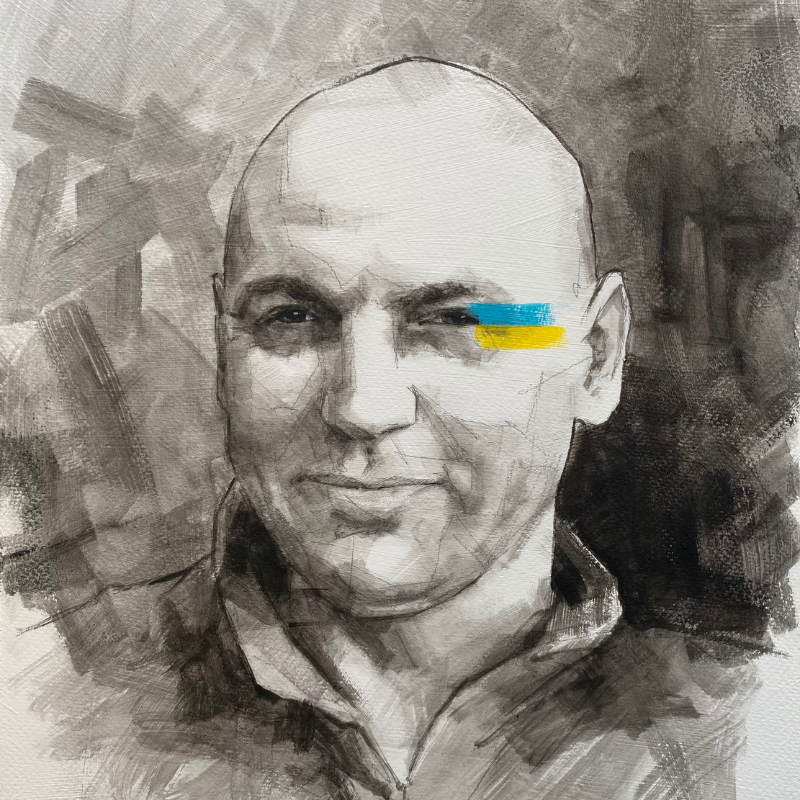
The story of a hostage
The story of a hostage

Andrii Harasymenko
Date of disappearance: March 25, 2022
Place of disappearance: Novoukrainske village, Chernihiv region
Before Russia's full-scale invasion, Andrii Harasymenko lived with his wife Nataliia in the village of Novoukrainske in Chernihiv Oblast, a region in northern Ukraine that borders Russia. The couple had two daughters. Andriy worked as a gas service foreman, had a household and cattle.
On February 24, a column of Russian tanks drove through Novoukrainske, and the fighting for Chernihiv began, with shells constantly exploding nearby. In March, the family spent most of the time in the cellar, hiding from shelling.
On March 25, men in uniform and with machine guns broke into the Garasymenko's home. Natalia's wife recalls that there were so many Russian soldiers that it looked like they had come to detain a known terrorist. The woman noticed people in specific uniforms, almost all of whom had balaclavas on their faces. "It was probably either the military police or the FSB," Natalia believes. The family was interrogated for about an hour. At the same time, the Russians searched the house: they took documents, cell phones, a tablet, a computer system unit, flash drives, flashlights, and a Wi-Fi router.
After the search, they packed up and left. They took Garasymenko with them in the APC. Natalia decided that Andriy was taken to the village of Vyshneve near Novoukrainske. She went there twice to try to find out about her husband's fate. During the second trip, on March 28, a Russian soldier told her that the prisoners had been taken in an unknown direction.
For almost two months there was no news about the fate of the kidnapped man. The family did not know if he was alive. Natalia was shown photos of civilians tortured by the Russians and found in Vyshneve for identification. Her husband was not among those killed.
Eventually, he was found in Russia. A witness who returned home on an exchange said that he saw Garasymenko in the Kursk detention center. "He didn't tell me everything, but I realized that Andriy had been badly beaten. He asked me to tell him that he was there. It was May 22, 2022," Natalia recalls.
The next news the family received was in late December 2022. At that time, a man came out for an exchange and said that he had seen Garasymenko in the Tula Correctional Colony No. 1 in the city of Donskoy. In the summer of 2023, new information emerged from relatives of other prisoners: Andriy was transferred to the Polyana colony in the Republic of Mordovia.
Garasymenko has kidney disease and was scheduled to undergo kidney stone removal surgery at the end of February 2022. But due to the beginning of the full-scale invasion, he was unable to get to the hospital in Chernihiv. The family does not know whether the man is receiving any treatment in Russian prisons.
Serhiy Leibak
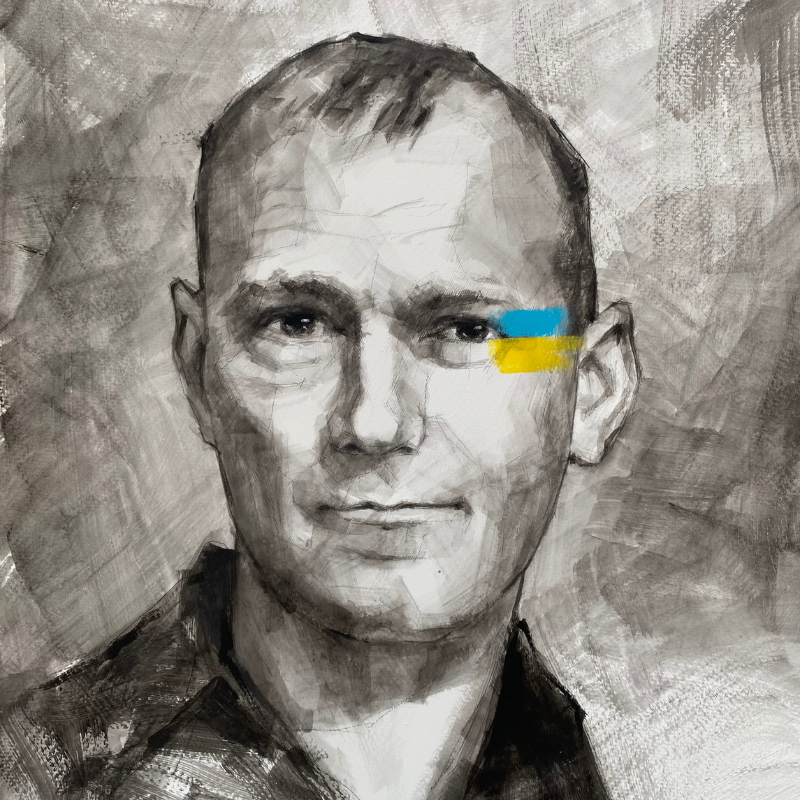
The story of a hostage
The story of a hostage

Serhiy Leibak
Date of abduction: March 19, 2022
Place of abduction: Kinburn Spit, Mykolaiv region
The Russians took 35-year-old Serhiy Leibak prisoner after they occupied his native Kinburn Spit, a nature reserve in southern Ukraine, following the start of a full-scale invasion. Before the full-scale war, Serhii lived in the village of Pokrovske with his wife, Khrystyna, and two children. He was a nature conservation inspector in the Sviatoslav's White Coast National Park. On March 19, 2022, the Russians came to his house when Serhiy was at work. His wife suggests that the occupiers might have been interested in the pickup trucks their husbands were driving, as the vehicles were suitable for transporting military cargo.
After her husband disappeared, Khrystyna had no information about whether he was alive or where he was. She and her young children had to flee the Russian occupation alone on a tiny boat in a stormy sea.
Every day, Khrystyna looked through hundreds of prisoner photos she found online to see if she could find a familiar face. Only in September 2022 did she find a photo of her abducted husband. "Serhiy looked terrible, had bruises on his face, an injured blue hand, which he used to hold a sign with his name on it," Khrystyna recalls. She found people who had seen Serhiy in the detention center in Crimea. Later, she learned Leibak had been transferred to a pre-trial detention center in Taganrog. Later, a military man released on exchange told Khrystyna that he had been with her husband in a pre-trial detention center in the Russian city of Ryazhsk, Ryazan region, until February 16, 2023. According to the soldier, civilian prisoners are held together with military prisoners. The cells are overcrowded, and the hostages are poorly fed and often tortured. In addition, neither lawyers nor representatives of the International Committee of the Red Cross have access to Ukrainian prisoners.
Mykyta Buzinov
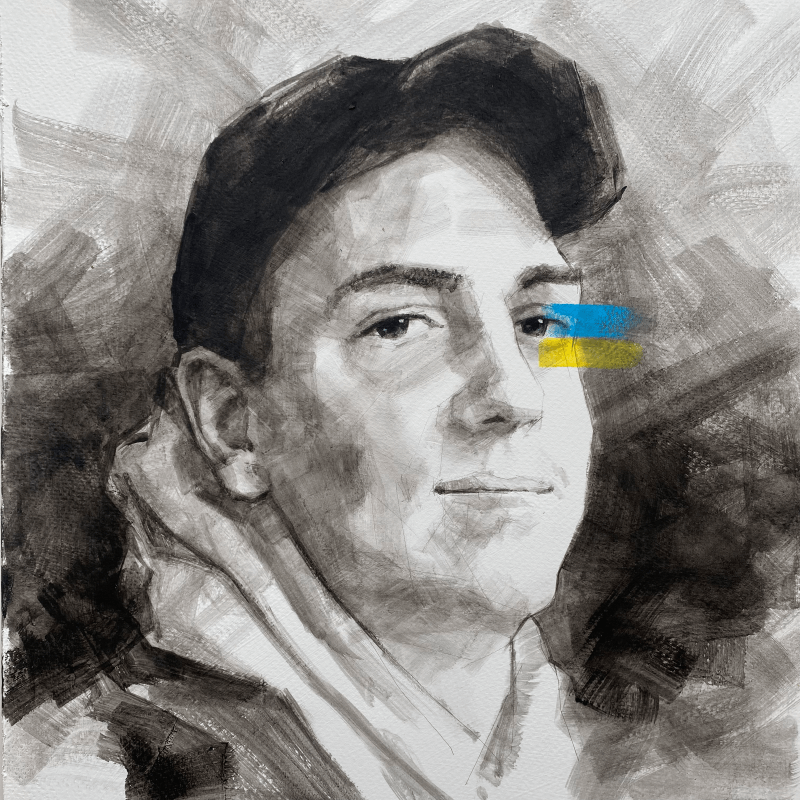
The story of a hostage
The story of a hostage

Mykyta Buzinov
Date of disappearance: March 4, 2022
Place of disappearance: Mykhailo-Kotsiubynske village, Chernihiv region
Leaving the large city of Chernihiv, in northern Ukraine, close to the border with Belarus, for a small village last February, 25-year-old Mykyta Buzinov thought he would be safe. The day before, Russia had invaded Ukraine and occupied the territory. For the first few days, he and his family stayed in the quiet village of Mykhailo-Kotsiubynske, 20 kilometers from the city. But the peace did not last long. The Russians got there too, occupying the village. When the Ukrainian military destroyed several enemy columns, the occupiers began abducting civilians, looking for those who could communicate with the Ukrainian military.
Mykyta worked as an ordinary driver and had nothing to do with the army. So he didn't think his family could be of interest to the Russian army. But on March 4, enemy soldiers came to the Buzinovs' house.
The whole family was home: mother, uncle, brother, and Mykyta's fiancée Kateryna. People were taken outside, and their phones were taken away. And then the horror began. Mykyta was stripped naked to check for tattoos and weapon marks on his body. The Russians pointed machine guns at the boy and his brother. The military shouted that they had found maps in his brother's phone. And they accused Mykyta himself of allegedly transmitting some data. To intimidate people, the Russians even imitated an execution: they took Mykyta behind a barn and started shooting. The boy's mother went through hell because she did not know if her child was alive.
Later, his fiancée Kateryna was forced to kneel next to Mykyta. They also pointed a gun at the girl. They put psychological pressure on her and threatened to kill her beloved right before Kateryna.
Finally, the military left, but took Mykyta with them. The family had no idea where to look for him. She hoped that the boy would return the next day, but time passed, and there was no news of her son and her beloved.
After the village was liberated, the Buzinov family learned that a local resident, whom the Russians had also abducted on March 4, was found tortured: after days of beatings, he had been shot in the head. Everyone was afraid that Nikita would not suffer the same fate. His mother took DNA samples. Months passed, but the family received no matches. The boy was not among the dead.
Finally, nine months after his abduction, he received news that he might be held in the Russian city of Belgorod. A lawyer hired by his relatives went to the city, but received a reply saying that there was no Nikita Buzinov in the Belgorod detention center. Later, another message came: a man with that name had been "released" from the local prison.
So the family hopes the guy is still alive and in Russian custody. And one day, he will return home.
Mykola Shcherbyna

The story of a hostage
The story of a hostage

Mykola Shcherbyna
Date of disappearance: November 14, 2022
Place of disappearance: Novotroyitske village, Kherson region
Mykola Shcherbyna is a resident of Kherson. Since childhood, he has loved to cook. He studied to become a food salesman and entrepreneur and dreamed of starting his own business. However, the full-scale invasion of Russia prevented him from completing his studies. In early March 2022, Russian troops seized Kherson and almost the entire Kherson region.
In November 2022, Mykola Shcherbyna went to the village of Novotroitske, where his grandmother lived. A few days later, he was captured by the Russian military and taken to an unknown location. From the correspondence with the occupation authorities, the family knows that the man was taken to the Simferopol detention center in occupied Crimea. This was done by representatives of Russian counterintelligence from the Rapier unit on suspicion of passing coordinates to Russian troops. Later, the released prisoners of war reported that Mykola was being held in the SIZO-2 in Kamyshyn, Volgograd region. Kamyshyn, Volgograd region.
This publication was compiled with the support of the International RenaissanceFoundation. It’s content is the exclusive responsibility of the authors and does not necessarily reflect the views of the International Renaissance Foundation.
Oleksandr Chyrkov
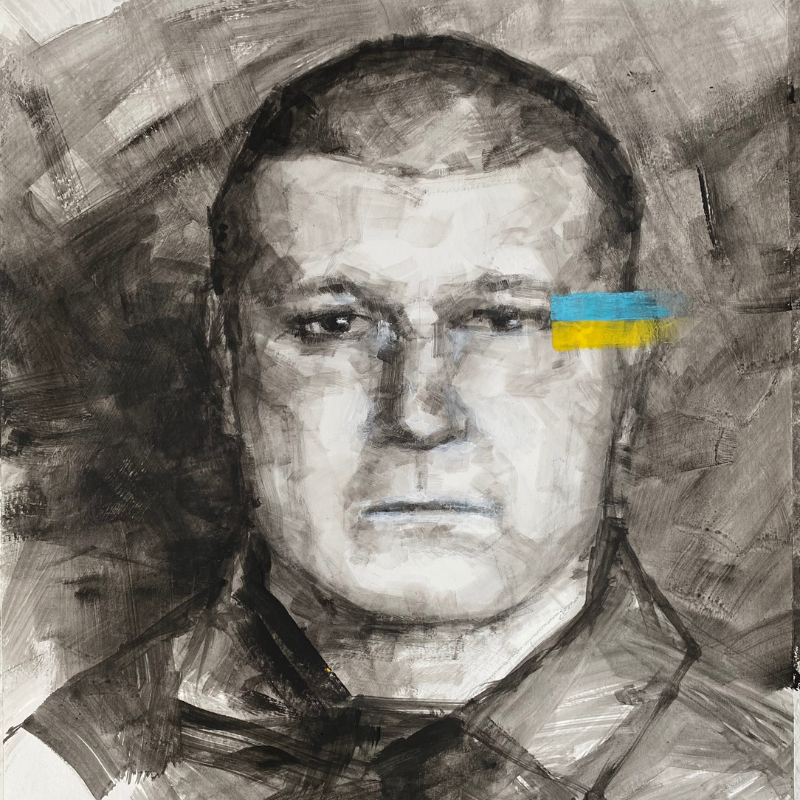
The story of a hostage
The story of a hostage

Oleksandr Chyrkov
Date of disappearance: March 17, 2022
Place of disappearance: Hlibivka, Kyiv region
Oleksandr Chyrkov is a funeral home director in Hlibivka, Kyiv region. After the start of the full-scale Russian invasion, he and his family found themselves under occupation. On March 16, armed occupiers broke into the Chyrkovs' home and inspected their weapons, and the next day, other Russians illegally searched the house again, took their weapons and a collection of knives, and abducted Oleksandr along with his neighbor Dmytro Bohayevskyi. Later, Oleksandr’s wife, Tetiana, learned that he was first taken to the foundry of the Viknaland plant in Dymer. There, the Russians forced detainees to sign various papers and labeled Dmytro and Oleksandr as a “spotter” and “shooter,” citing Chyrkov's possession of weapons at home.
Subsequently, the occupiers detained Chyrkov in unused refrigeration rooms in Hostomel before transporting him through Belarus to a detention center in Novozybkov, Bryansk region, where a brutal “reception” awaited: the Russians beat Ukrainian detainees with batons. Later, the captors held Oleksandr in a detention center in the temporarily occupied Sevastopol and in a penal settlement in Kamensk-Shakhtinsky, Rostov region. By at least November 2023, Chyrkov remained in the Kursk detention center. Ukrainians released from these detention centers shared harrowing stories with Oleksandr’s family about appalling food conditions, torture, and ideological pressure.
“In Kursk, they could wake you up in the middle of the night — you’d have to run through corridors carrying your mattress, meaning you constantly had to be ready for anything. In the morning, they forced prisoners to sing the Russian anthem,” Tetiana Chyrkova recounts their words.
This publication was compiled with the support of the International RenaissanceFoundation. It’s content is the exclusive responsibility of the authors and does not necessarily reflect the views of the International Renaissance Foundation.Leonid Kondratskyi
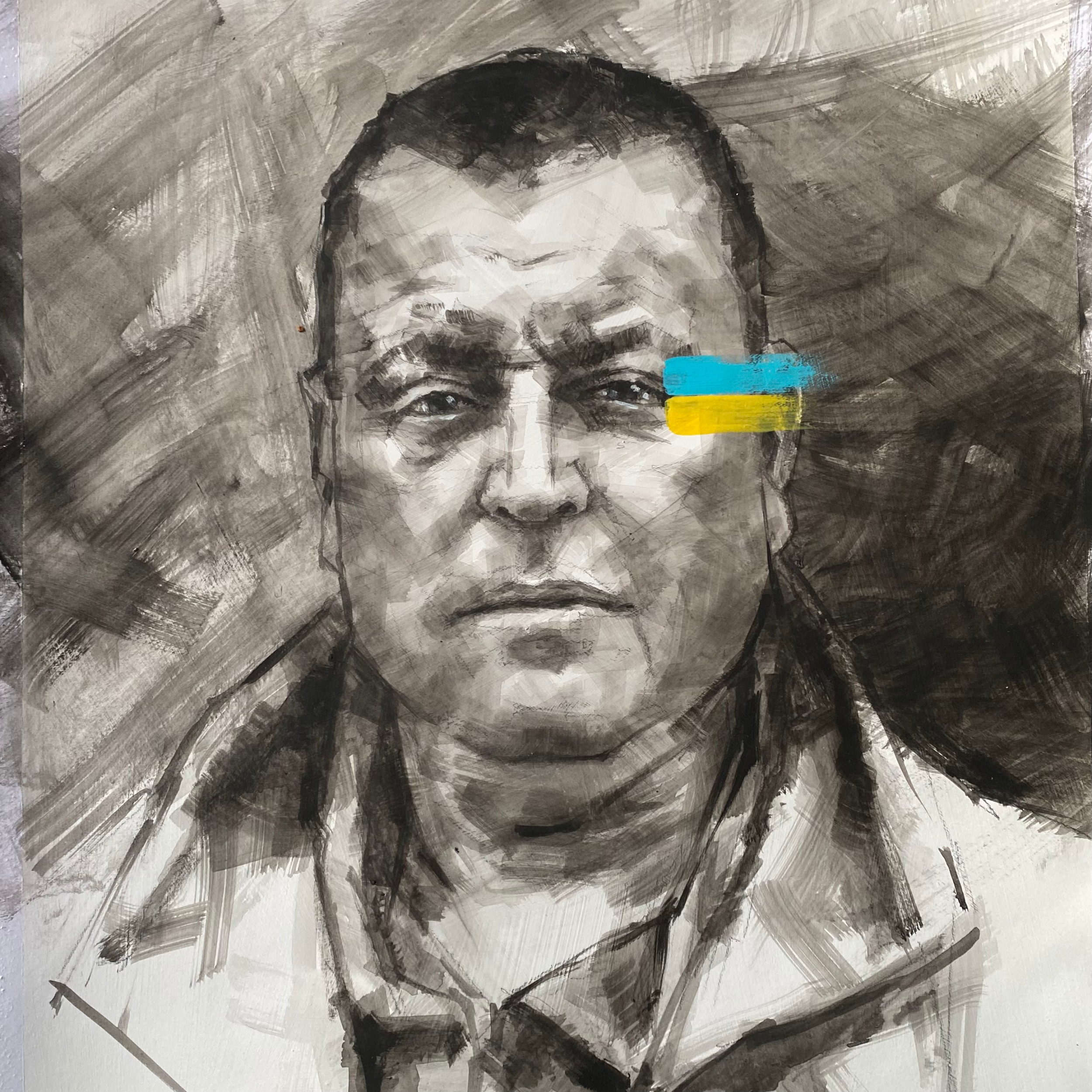
The story of a hostage
The story of a hostage

Leonid Kondratskyi
Date of disappearance: October 17, 2022
Place of disappearance: Nova Kakhovka, Kherson region
Leonid Kondratskyi worked as the head of municipal security in Nova Kakhovka, Kherson region. After the start of the full-scale invasion and occupation of the city, the Russians abducted him three times. The first time was in late February 2022. The invaders illegally held Leonid for ten days, handcuffing him to a radiator in the building of the Novokakhovka City Council, and then took him to Kherson. In early April of the same year, Russian soldiers illegally searched Leonid's family home when he was not at home. The house was surrounded by armored personnel carriers, guns were pointed at the family, phones and computers were checked, and even Leonid's 14-year-old granddaughter was interrogated. Kondratskyi's daughter Iryna assumes that these were not Russians, but collaborators, because they spoke Ukrainian well.
A few days later, on April 14, the occupiers kidnapped Leonid for the second time and kept him in the basement of the Novokakhovka police department for 17 days along with other civilian prisoners. The man was tortured there.
— They did not let him sleep, he was very beaten. His leg was swollen. The Russians pressured him to sign a cooperation agreement with them. They pressured him because of his children,” Iryna recalls.
Six months later, on October 17, 2022, Kondratskyi was abducted for the third time. He was held in the building of the Novokakhovka SSU office, and later one of the occupiers reported that Leonid had been taken to Crimea. The Russians officially confirmed to the ICRC that they were holding Leonid. In January 2023, Kondratsky wrote his daughter a letter saying he was waiting for an exchange. Six months later, it became known that Leonid was being held in Simferopol's Detention Center #2. He was accused of “international terrorism”. The man was taken to Kamyshyn, Volgograd region in February of the same year. During his time in Russian captivity, Leonid lost almost 40 kilograms. Iryna has not received any letters from her father for about two years.
This publication was compiled with the support of the International RenaissanceFoundation. It’s content is the exclusive responsibility of the authors and does not necessarily reflect the views of the International Renaissance Foundation.
Mykola Harbar
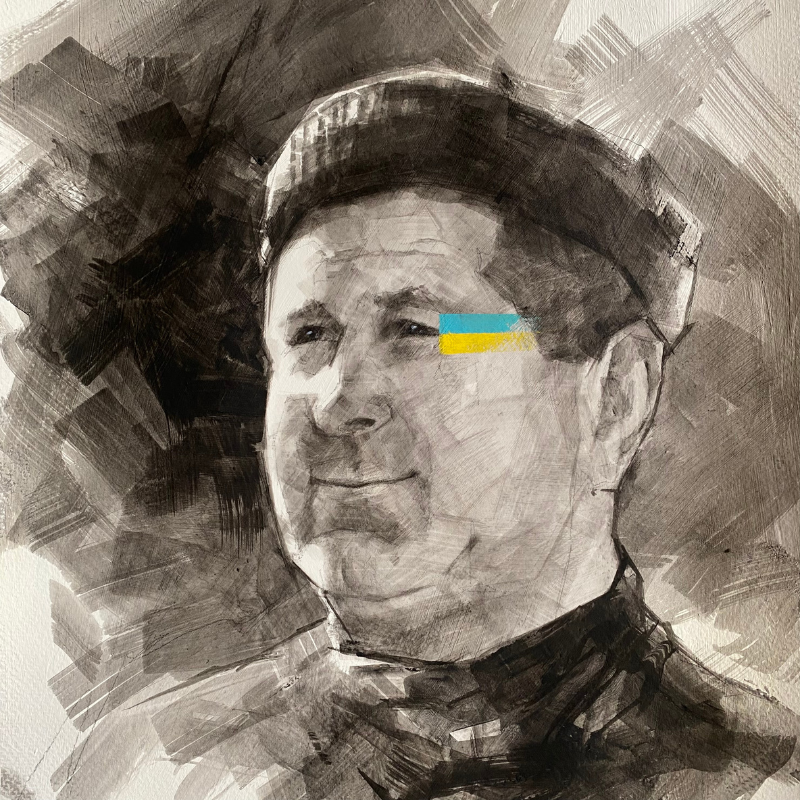
The story of a hostage
The story of a hostage

Mykola Harbar
Date of disappearance: August 17, 2022
Place of disappearance: Novokaira village, Kherson region
For almost two years, the fate of a 55-year-old mechanic from the village of Novokaira in the Beryslav community of Kherson region has remained unknown. On August 16, 2022, Mykola Harbar stopped contacting his wife, who left the occupied village at the beginning of the Russian invasion. Later, a neighbor of the couple said that she saw Mykola abducted by the Russian army on August 17.
"A Russian military vehicle, their Tiger, drove up to the house," Tetiana Harbar recounts the neighbor's words, "There were four men there. They went into the yard and the house but did not come out long. And then Mykola opened the gate, drove his car out, winked at his neighbor, saying, "You see, they are taking us away," got behind the wheel, a Russian soldier with a weapon got in next to him, and they left the village.
The neighbor who saw Mykola Harbar's abduction had a spare key to his house, so she went to check it out. The house was not locked. Inside, she saw an open safe and the owner's empty wallet. Mykola's passport and military ID were missing.
Relatives and friends of Mykola Harbar tried to find the man in Nova Kakhovka, Chaplynka, and other places where Russia holds Ukrainians. A few days after Mykola's abduction, the Harbar family's godmother even went to the machine factory in Beryslav, where Russians were torturing civilians at the time. But she could not find any information about her husband's fate.
Oleksii Kyrychenko
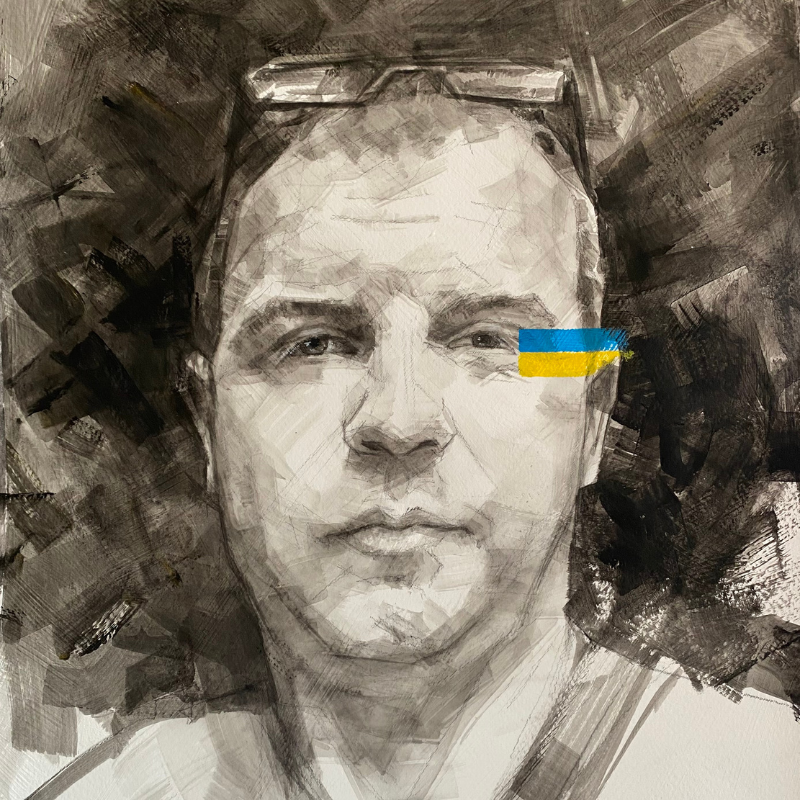
The story of a hostage
The story of a hostage

Oleksii Kyrychenko
Date of abduction: August 23, 2023
Place of abduction: Mykhailivka village, Zaporizhzhia region
Oleksii Kyrychenko is a police officer from Mykhailivka, Zaporizhzhia region. When the Russians occupied the village, he refused to cooperate with them. On August 23, 2023, the invaders illegally searched Oleksiy's apartment and abducted him. In December of the same year, Kyrychenko and several other civilian hostages were "tried" by Russians for the murder of Ivan Sushko, who had defected to Russia and declared himself the head of Mykhailivka. On December 1, 2023, Kyrychenko was detained in Pryazovske, Zaporizhzhia region, and a few weeks later was transferred to SIZO No. 2 in Simferopol, and from there returned to Pryazovske. The Russians twice "tried" Kirichenko for "committing a terrorist attack by prior conspiracy." However, his family notes that he never had close contact with the other defendants in the "proceedings." According to his family, Kirichenko has lost a lot of weight and is in a complex psychological state. Also, the Russians do not pass him all the letters from his family. Now, the family is looking for a good lawyer for Oleksii, but defense lawyers do not take on this case because of its high profile.
Serhii Shevchuk
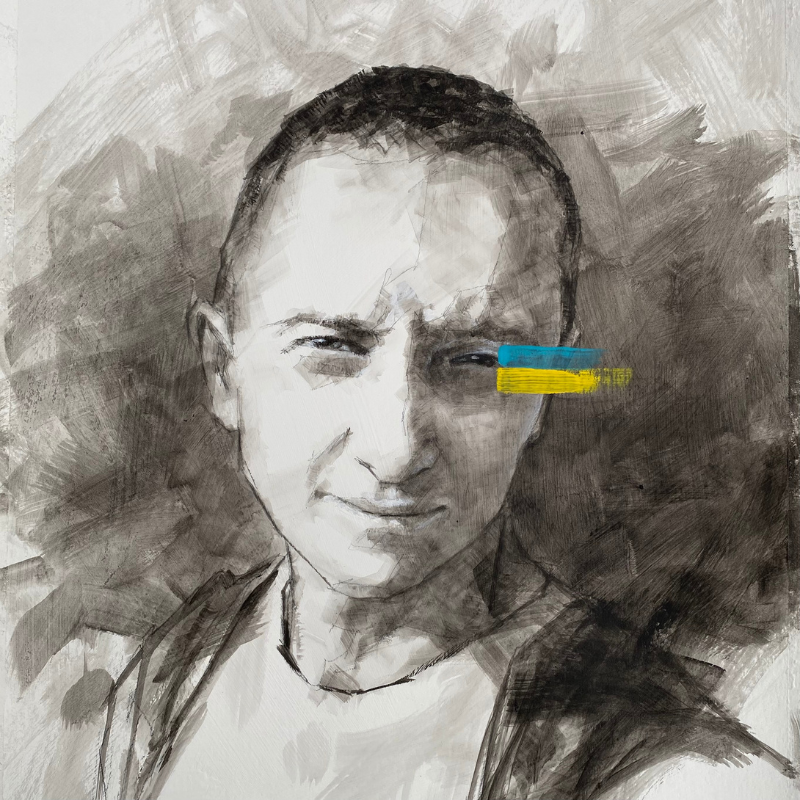
The story of a hostage
The story of a hostage

Date of disappearance: March 18, 2022
Place of disappearance: Krasnopillia village, Sumy region
Serhii Shevchuk lived in Krasnopillia, Sumy region, near the border with Russia. It was there that he met Russia's full-scale invasion of Ukraine. On March 18, 2022, the man went to Novooleksandrivka, a nearby village, to visit his grandmother after the village was shelled by Russians. The connection with Shevchuk disappeared, and when his sister finally got through to him, a stranger answered the phone. He answered in Russian that he was “walking around”. Later, Russian soldiers at a nearby checkpoint told Serhiy's mother Natalia that her son had been taken to Russia because “he was an officer.” However, the woman emphasizes that Shevchuk had resigned from the army before the full-scale Russian invasion and was a civilian at the time of his abduction. In April 2023, the ICRC and the NIB confirmed to Natalia that her son was being illegally detained in Russia. In January 2024, one of the released Ukrainian prisoners said that as of December 2023, Shevchuk was in penal colony No. 4 in Novooleksiyivka, Belgorod Oblast, and that his health had seriously deteriorated.
— "He developed anorexia and heart problems as a result of his illegal detention. His mental state has deteriorated due to torture. Serhii hardly moves around," — Natalia recounts the former prisoner of war's words.
Serhii Sytnyk
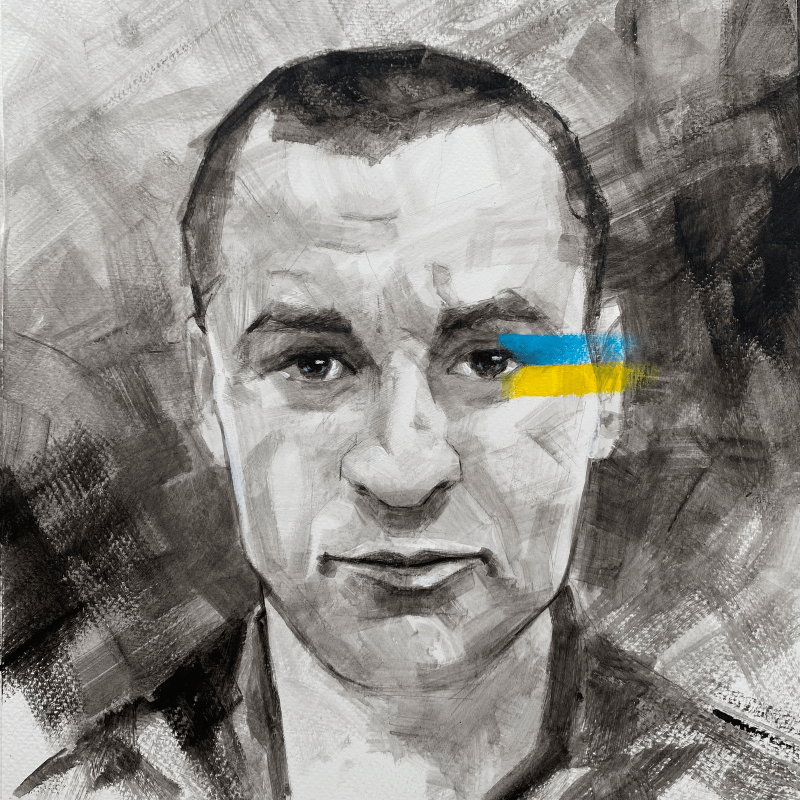
The story of a hostage
The story of a hostage

Serhii Sytnyk
Date of disappearance: March 16, 2022
Place of disappearance: Trostianets, Sumy region
At the time of his abduction by the Russian military, who had occupied the town of Trostyanets in Ukraine the day before, Ukrainian Serhii Sytnyk was 32 years old. No one knows for sure why he was captured. Perhaps because he was a hunter. The next day after his abduction, the Russians came to his home. They turned the house upside down and took everything in sight, including food and warm socks. Serhiy's mother witnessed the search. She learned from conversations with the Russian military that her son was alive.
She went to the Trostianets railway station, where the Russians held Ukrainians, to look for Serhii. She walked with her hands up. There were a lot of Russian soldiers around, she says. It was very frightening. However, she did not give up trying to discover her son's fate. Finally, one of the Russians said that Serhii was not at the station and advised her to look for him at the local police station. But there, the woman was also escorted away with nothing.
The family of the abducted man is sure that the Russians took him to the neighboring village of Boromlia because on April 4, 2022, after the de-occupation of the village, they found Serhii's hunting license, bank cards, and work ID. After the Russians fled, his mother and sister were looking for their husband among the tortured people in the village. But Serhii was not among the dead either.
The head of the Boromlyanska community told the women that the Russians took many Ukrainian prisoners. Russians took them through the village of Krasnopillia toward the Russian border. Many of them are still being held in prisons on the territory of the Russian Federation.
Serhii Arefiev

The story of a hostage
The story of a hostage

Serhii Arefiev
Date of abduction: March 3, 2022
Place of abduction: Kherson
Serhii Arefiev is an employee of a mobile phone company from Kherson. On March 3, 2022, Russians abducted him and his friend after a pro-Ukrainian rally and took them to the local police station on Lutheranska Street. They were interrogated there. After being beaten, his friend was released, and Serhii was taken to Kherson Detention Center No. 1 on Teploenergetikiv Street. Five days later, the Russians transferred him to SIZO No. 1 in Simferopol, where prisoners are tortured and poorly fed. In March 2023, an “investigation” was launched against Arefiev, accusing him of espionage, he was transferred to Simferopol SIZO #2 and “sentenced” to 11.5 years in a maximum security colony. On appeal, the sentence was reduced by six months. In May 2024, Serhii was illegally detained in Detention Center No. 1 in Krasnodar, and in June he was transferred to Detention Center No. 2 in the same city. Since July, Arefiev has been held in Penal Colony No. 10 in Saratov.
This publication was compiled with the support of the International Renaissance Foundation. It’s content is the exclusive responsibility of the authors and does not necessarily reflect the views of the International Renaissance Foundation.
Natalia Vlasova
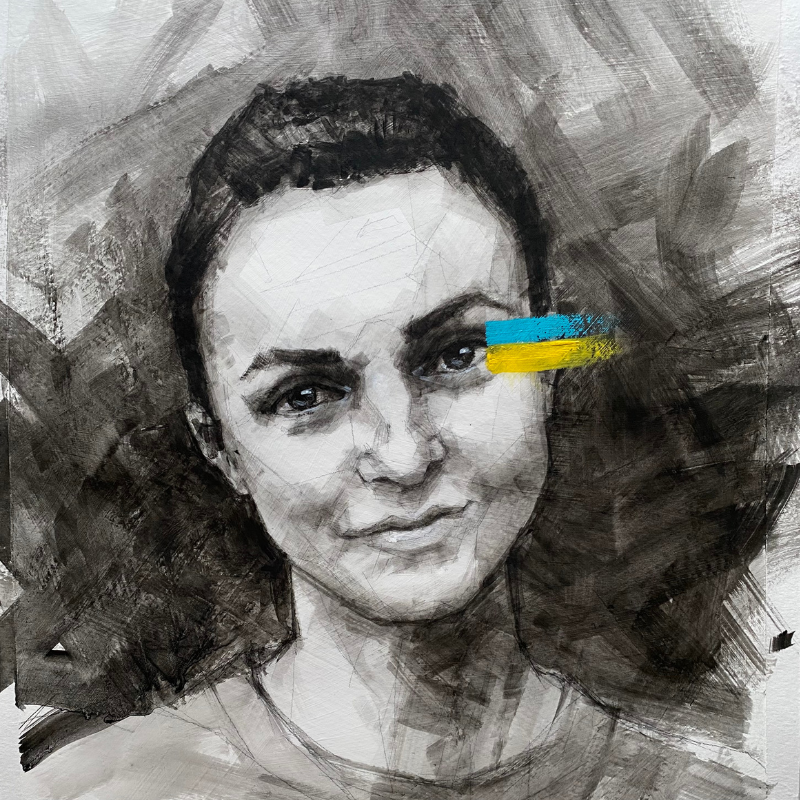
The story of a hostage
The story of a hostage

Natalia Vlasova
Date of detention: March 21, 2019
Place of detention: Olenivka checkpoint
Natalia Vlasova has been illegally detained by Russia for almost six years. The woman, along with two other men - Viktor Shydlovsky and Serhiy Gruzynov - was detained on March 21, 2019, by representatives of the pro-Russian quasi-structures of the “DPR”. They were accused of preparing an assassination attempt on the head of the DPR's special operations forces, Vasyl Yevdokimov, call sign Lenin. Natalia's family did not know what happened to her for four months until they saw the video. The footage of the detention was shown on a federal Russian TV channel. The video shows that they were filmed after the torture.
Later, Natalia said that after her detention, she was taken somewhere with a bag over her head, beaten, and her fingers were going to be cut off. She also described the torture she experienced in 'Izolyatsiia' in Donetsk:
“This place was called a death factory. Its boss was Yevdokimov. At one point, I also asked to be shot when I tried to escape, but no - Yevdokimov said that I had to suffer.”
The woman said that she was stripped, tied up with duct tape, doused with water, and connected to an electric shock. If she didn't scream enough, the shocks became stronger.
“They needed a reaction, and I didn't realize it right away: when I screamed loud enough, I heard satisfied voices. There was also a doctor at the torture when I lost consciousness, he brought me back to life with ammonia,” Vlasova said.
The released women, who were held in 'Izoliatsiia' at the same time as Natalia, also confirmed the fact of torture. They said that she was taken away every day and abused, taken to have her teeth sharpened, etc.
“Once, a girl was thrown into our cell. She had sawed teeth, very swollen legs, kidney failure, concussion, bruises, and a broken nose. She said that 15 men were brought to her to do what they wanted,” says Marina Chuykova, who saw Vlasova in the Donetsk SIZO.
After four years of detention in Donetsk, in the spring of 2023, Natalia was transferred to Russia to SIZO No. 1 in Rostov-on-Don. Shidlovsky and Gruzinov were transferred to the same place. Their case lasted a year and a half. All three were found guilty of participating in a terrorist community and preparing an attempted murder of Yevdokimov. Natalia Vlasova was sentenced to 18 years in prison. The defense is currently preparing an appeal. The woman will be held in Rostov-on-Don while the proceedings are pending. If Ukraine fails to return Natalia in time, the Russian system will send her to a penal colony to serve her sentence. From Rostov, Ukrainians are sent to Krasnoyarsk Krai, Ulyanovsk or Saratov regions, or Yakutia after their sentences.
This publication was compiled with the support of the International Renaissance Foundation. It’s content is the exclusive responsibility of the authors and does not necessarily reflect the views of the International Renaissance Foundation.
Serhii Spartesnyi

The story of a hostage
The story of a hostage

Serhii Spartesnyi
Date of Disappearance: July 18, 2023
Place of Disappearance: Enerhodar, Zaporizhzhia Region
Serhii Spartesnyi, an employee of the Zaporizhzhia Nuclear Power Plant, remained in his home in Enerhodar after the city fell under Russian occupation. In July 2023, Russian forces stormed his apartment, conducting an illegal search before taking him to the local police station. According to a fellow detainee, the occupiers accused Serhii of distributing pro-Ukrainian leaflets around Enerhodar, spying on the Russian Federal Security Service and a collaborator at the nuclear plant, and training terrorists at the behest of the SSU (Security Service of Ukraine).
Serhii’s wife, Natalia, firmly denies these accusations. She believes her husband was kept in grim conditions, likely in a basement. Through her sources, she learned that the clothes of the captives were covered in mold, they were deprived of fresh air, and they endured torture.
“I know that the Russians put bags over everyone’s heads, bound tape around their necks, and applied electric shocks. I fear they did the same to my husband,”
Despite his existing health problems, Serhii was denied medical care during his detention at the police station. In July 2024, he was formally accused of “espionage” and transferred to a pre-trial detention center in Donetsk, with further interrogations taking place in Melitopol. Natalia later learned that her husband’s physical condition had deteriorated significantly.
This publication was compiled with the support of the International RenaissanceFoundation. It’s content is the exclusive responsibility of the authors and does not necessarily reflect the views of the International Renaissance Foundation.Pavlo Zaporozhets
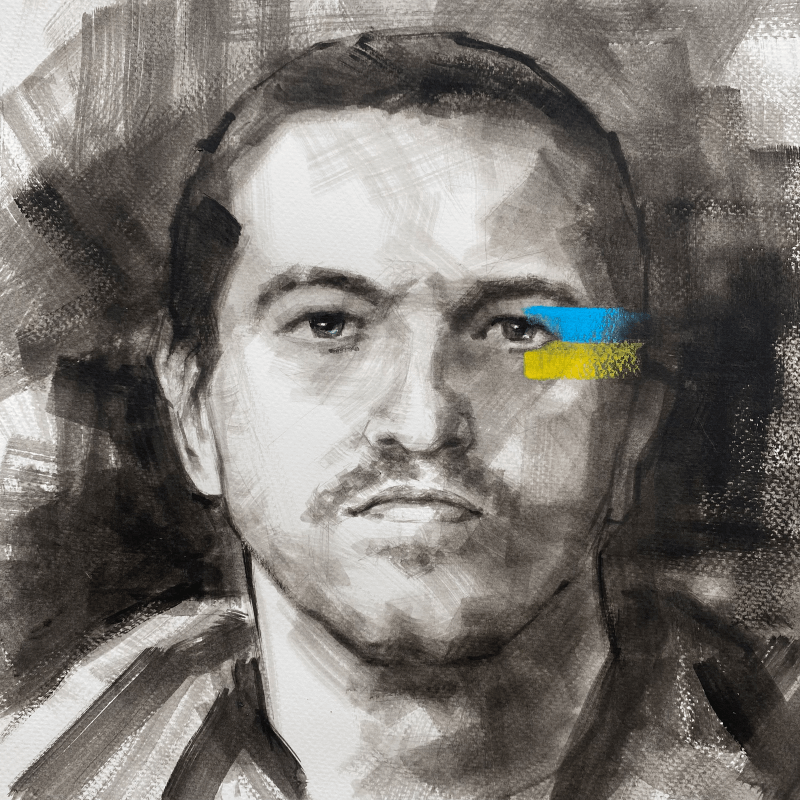
The story of a hostage
The story of a hostage

Pavlo Zaporozhets
Date of disappearance: May 9, 2022
Place of disappearance: Kherson, Kherson region
Pavlo Zaporozhets, a 30-year-old lawyer from Kherson, was detained by the Russian military on May 9, 2022, in Kherson. Before that, he had lived in the occupied city for almost three months - on February 24, Russia launched a full-scale invasion of Ukraine. The man has experience of serving in the Armed Forces of Ukraine after 2014. He retired and most recently worked in the state tax service. After the occupation of the Kherson region, Russians began to organize raids and searches in the city: they were looking for those with military experience. Former soldiers and their families were considered potentially dangerous to Russia and capable of resisting. After his abduction, Pavlo was held in a temporary detention center in Kherson for four months, then transferred to SIZO 1 in Simferopol.
The man's house was searched, and equipment was seized. In October 2022, Zaporozhets and other civilian detainees were transferred to SIZO 2. Pavlo's sister, Maryna, says that he was beaten in Crimea, and in February 2023, he was transferred to Rostov-on-Don in the Russian Federation. There, a trial began — Zaporozhets was accused of violating Article 361 of the Criminal Code of the Russian Federation for "intent to commit a terrorist act" in Kherson. Pavlo's family has filed a complaint with the European Court of Human Rights against his illegal detention and hopes for publicity and a response from international organizations.
Serhii Khrolenko
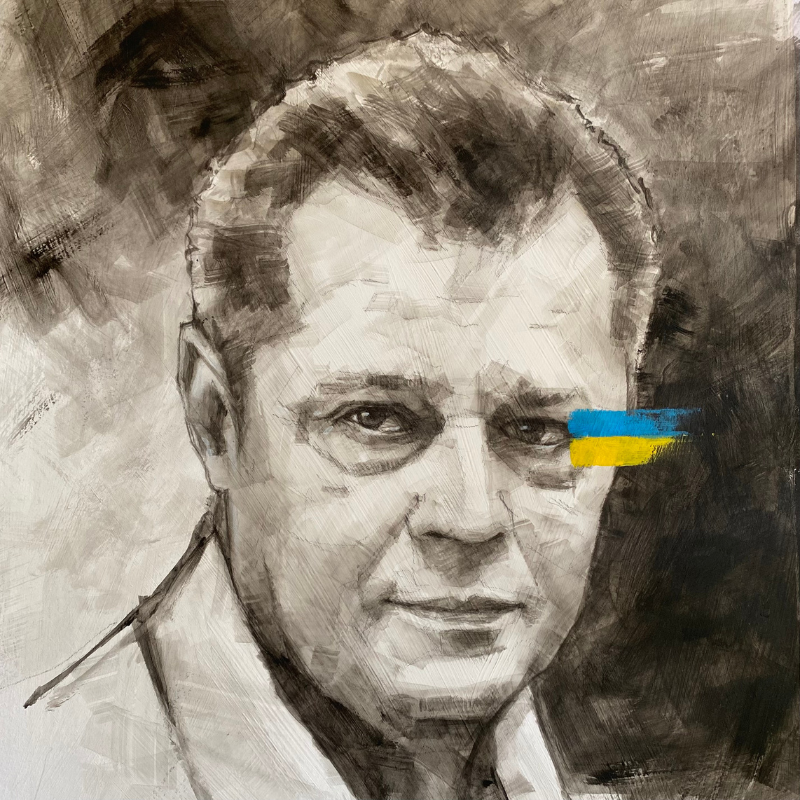
The story of a hostage
The story of a hostage

Serhii Khrolenko
Date of disappearance: February 26, 2022
Place of disappearance: Dymer village, Kyiv region
On the day of his disappearance, 54-year-old Serhii Khrolenko, a master furniture maker from the village of Dymer, Kyiv region, went to the grocery store.
"It's about 900 meters from home. I went without my phone and passport because I hoped to return quickly. I took an ordinary shopping bag. It was about 3:30 pm. And then, a Russian armored personnel carrier drove up to the store. Tanks were coming. Everyone ran away, but my father decided just to keep walking home. They started calling him, saying, where are you going? He answered that he was going home. They said, "You'll come with us. My father refused. Then the Russians ran up, grabbed him, shoved him into an armored personnel carrier, and drove him away in the direction of the village center," Yana, Serhii's daughter, recounts the words of witnesses. She says that through Dymer, Russian military equipment was moving from Katyuzhanka towards Demydiv.
Back when Dymer was under occupation, Yana tried to find out information about her father from Oleksandr Kharchenko, a local collaborator and Russian protege.
"The traitor confirmed that my father was being held captive on the territory of a foundry in Dymer at 22B Vyshneva Street. He said he was detained because of his allegedly rude behavior to the Russian military. Kharchenko promised that he would be released on March 19. However, this never happened," says Yana.
It is known that before the retreat, the Russians took hostages from the northern regions of Ukraine to Russia through Belarus. However, Yana has no exact information about the place of detention and the condition of her father, although his name has appeared several times in the lists of hostages on search telegram channels.
Yana received a response to her request from the National Information Bureau, which collects information about civilian detainees in Ukraine. The letter stated "(Serhii's) being in captivity," but law enforcement officials did not disclose any other details.
Serhii Ofitserov

The story of a hostage
The story of a hostage

Serhii Ofitserov
Date of disappearance: August 3, 2022
Place of disappearance: Kherson
Serhii Ofitserov is a manager from Kherson. When the Russians occupied the city, he stayed at home, and on August 3, 2022, he was abducted from his father's apartment. Serhii's apartment was illegally searched, and all his equipment was taken. For more than two months, Offitzerov's family did not know where the Russians were holding him. Only in October 2022 did it become known that Serhii was in the seized building of the Kherson police department on Lutheranska Street and later in one of the pre-trial detention centers in Simferopol. He was illegally tried in Crimea. In October 2022, the Russians took the man to Lefortovo in Moscow. Eight more Kherson civilians abducted in July and August were sent there: Yuriy Kaiov, Serhii Kovalskiy, Serhii Heidt, Konstantin Reznik, Serhii Kabakov, Denis Lyalka, Yuriy Tavozhnyanskiy and Oleg Bogdanov. The Russians tried them for “international terrorism.” Since February, all nine have been illegally detained in SIZO No. 1 in Rostov in inhumane conditions. “The food there is horrible. It is cold. Medical care is almost non-existent,” says Gennadiy Ofitserov, Serhii's father. Russian guards also do not take Ukrainians for walks or feed them: the men receive food only thanks to volunteers. In early 2024, the Russian Federation again illegally tried all eight men from Kherson. The “hearings” were closed, and the men could not communicate with their lawyers.
This publication was compiled with the support of the International Renaissance Foundation. It’s content is the exclusive responsibility of the authors and does not necessarily reflect the views of the International Renaissance Foundation.Konstantin Reznik
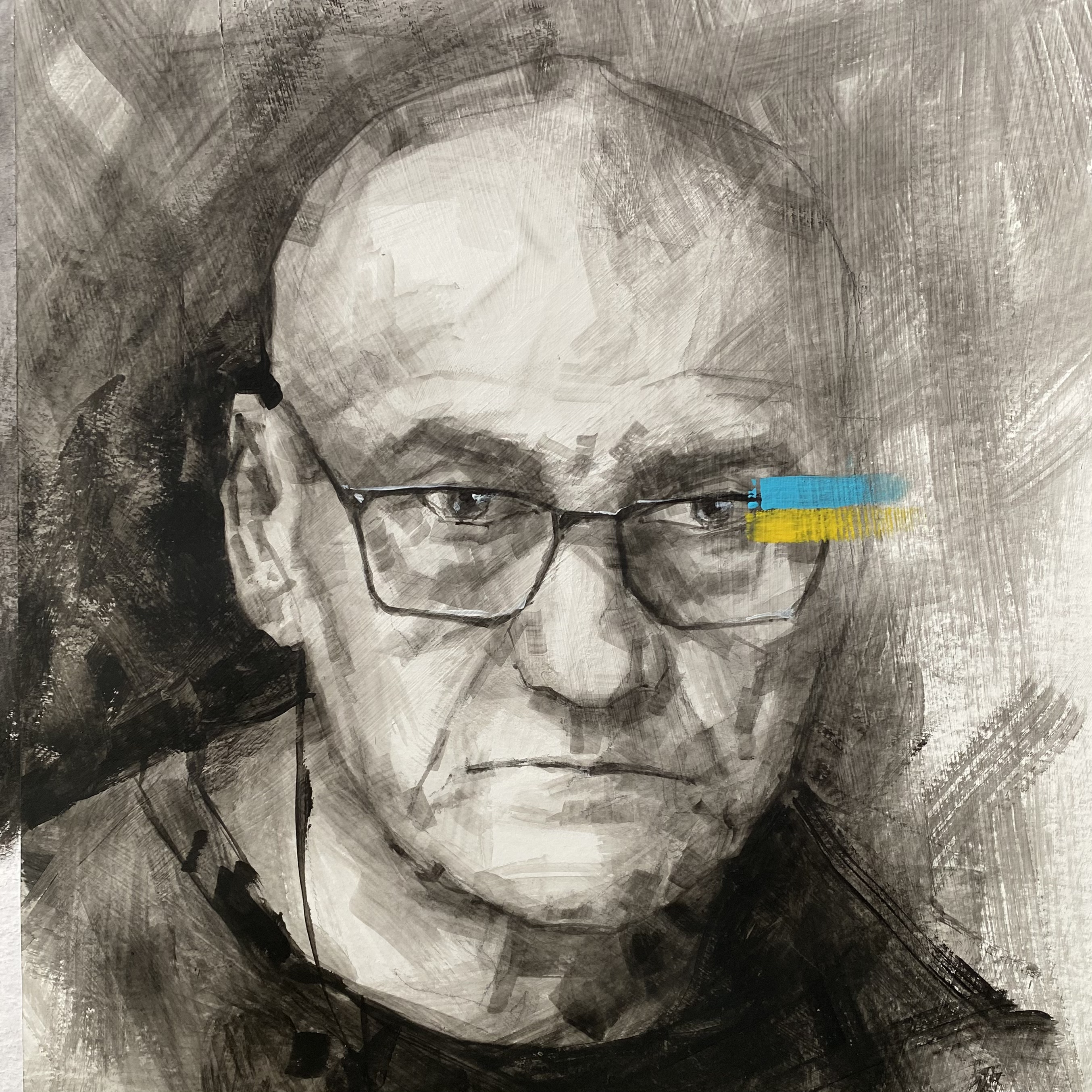
The story of a hostage
The story of a hostage

Konstantin Reznik
Date of abduction: July 21, 2022
Place of abduction: Kherson
Konstantin Reznik is a private entrepreneur from Kherson. He and his family have been under occupation since the first days of the full-scale invasion. At that time, the city was filled with Russian military equipment, passers-by were stopped on the streets and searched. The family tried to avoid any contact with the Russians, and on July 21, 2022, Kostiantyn was detained.
At about 5:30 p.m., he was brought home in a minibus without identification marks. They entered the house, searched it, and seized his laptop. Konstantin was scared and looked confused. It was the last family meeting.
His family waited for a week before starting the search. After the de-occupation of Kherson, it became known that he had been held in the basement of the National Police station on 4 Liuteranska Street. Later, his wife came across a video of his arrest.
Later, Konstantin was taken to Crimea. A lawyer from Simferopol said that the man was accused of attempting to blow up a car.
"At the time, he was almost 60 years old. He was not of the age to blow up anything," — says his wife, Tatiana.
"When fall came, the family tried to send a parcel to Kostyantyn — at least some warm clothes. But they were told that the prisoner was being transferred to the Lefortovo detention center in Moscow. Since then, there has been no communication or official confirmation of his detention from the Russian authorities."
The civilian's daughter, Yevheniya, is fighting for her father's release, appealing to all possible authorities both in Ukraine and abroad to obtain official confirmation of the fate and place of detention of Kostiantyn Reznik.
This publication was compiled with the support of the International Renaissance Foundation. It’s content is the exclusive responsibility of the authors and does not necessarily reflect the views of the International Renaissance Foundation.
Serhiy Potyng
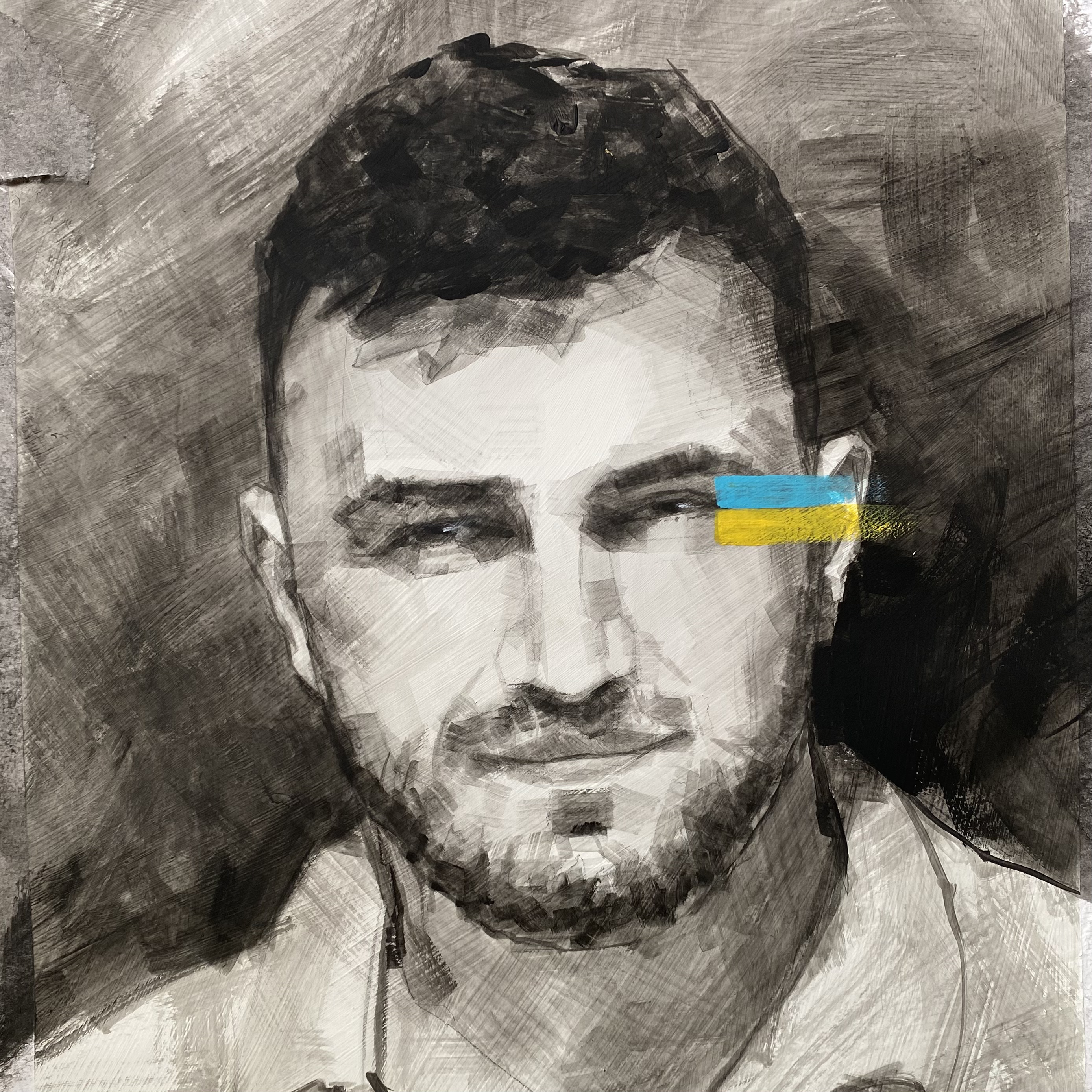
The story of a hostage
The story of a hostage

Date of abduction: June 06, 2023 Place of abduction: Enerhodar, Zaporizhzhia region
Serhiy Potyng is a Zaporizhzhia Nuclear Power Plant (ZNPP) engineer. He and his wife, Iryna, stayed in their hometown after the start of the full-scale invasion. Despite the daily danger, they both continued to work at ZNPP. Serhii also volunteered to help families with small children survive the occupation.
The Russians closely followed him and then detained and tortured his wife to find out where her husband was hiding.
Eventually, Serhiy Potyng was caught on June 23, 2023, and was first detained at the police station in Enerhodar. Later, the family learned from his cellmate that Serhiy had been severely beaten and needed surgery for a purulent wound on his body.
“Serhiy read a lot, did crossword puzzles, talked about me,” — his wife Iryna recounts.
The man was repeatedly transported: first to Melitopol, then to Mariupol. Since November 19, 2024, he has been in a pre-trial detention center in Rostov-on-Don. The family can write letters but go slowly and only after strict censorship.
On March 26, 2025, a Russian court sentenced Serhiy to 19 years in prison, accusing him of illegal possession of weapons and an attempt to blow up the car of a Russian security officer — typical charges in fabricated cases against Ukrainian civilians under occupation. While the appeal is pending, Serhiy remains in the Rostov detention center.
"Even in such difficult conditions, my husband will fight for the truth and his pro-Ukrainian position" — says Iryna.
This publication was compiled with the support of the International Renaissance Foundation. It’s content is the exclusive responsibility of the authors and does not necessarily reflect the views of the International Renaissance Foundation.
Oleksandr Slisarenko
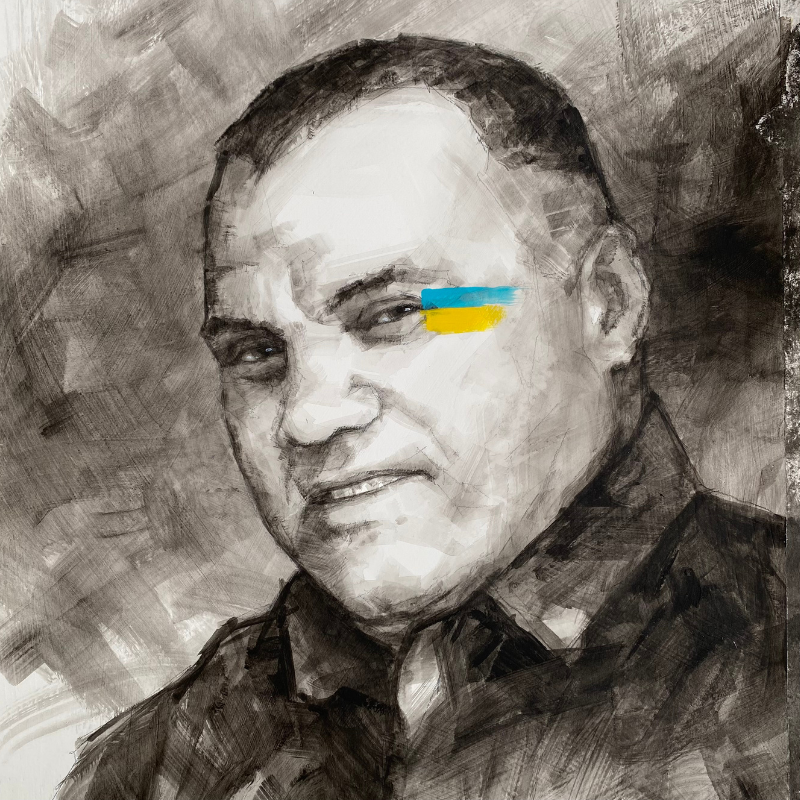
The story of a hostage
The story of a hostage

Oleksandr Slisarenko
Date of disappearance: August 3, 20222
Place of disappearance: Hornostayivka village, Kherson region
Oleksandr Slisarenko is the head of the Territorial Center for Social Services and Social Services for Families, Children and Youth and the head of the Land Commission of the Gornostayivka Community of the Kherson Region. After the start of the full-scale Russian invasion of Ukraine, he did not leave the city because the Russians often shot at civilian cars trying to evacuate. According to eyewitnesses, on August 3, 2022, Russian soldiers surrounded Alexander's house with military equipment, Slisarenko was beaten for several hours on the street, and then put in a bag over his head and taken to an unknown destination.
It is still unknown where the Russians are holding Oleksandr. Civilians who were held by the occupiers in the police station in Hornostayivka did not see Slisarenko there. The Russians claim that they do not know where the man is. Currently, Oleksandr's family is cooperating with law enforcement and human rights activists to find out at least something about his fate.
This publication was compiled with the support of the International RenaissanceFoundation. It’s content is the exclusive responsibility of the authors and does not necessarily reflect the views of the International Renaissance Foundation.
Volodymyr Androsovych
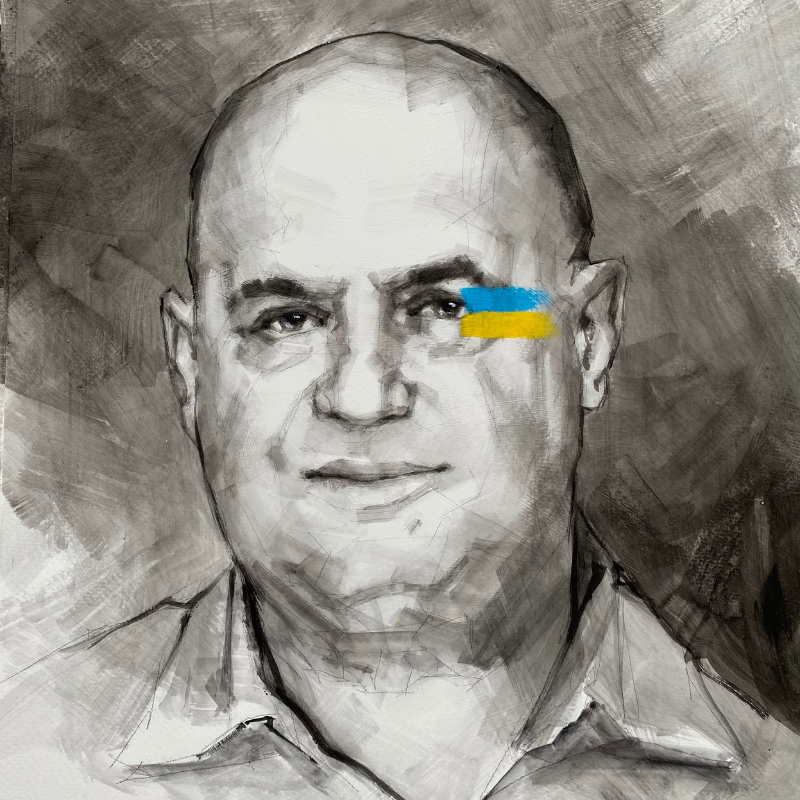
The story of a hostage
The story of a hostage

Volodymyr Androsovych
Date of disappearance: 12 April 2022
Place of disappearance: Mariupol, Donetsk region
Volodymyr Androsovych from the village of Ulianivka, Mykolaiv region, turned 62 in Russian captivity. The man worked as a school bus driver. At the beginning of the full-scale invasion, he received a call from the school principal asking him to take refugees out of the town of Bashtanka. When Volodymyr arrived, he received a new assignment - to transport mobilized soldiers to Mariupol, which was already being fiercely fought over.
After he got to the city, the Russians closed the ring. He could not get out of the encirclement. Together with other drivers, he was waiting for a humanitarian corridor. According to his daughter Lyudmyla, her father wanted not only to leave himself, but also to take civilians who remained in Mariupol under Russian shelling in the bus.
The drivers found shelter at the Ilyich plant, which was also under fire from the Russians. Volodymyr tried to keep in touch with his family. His daughter Liudmyla says that on April 4, 2022, he called his father for the last time.
The family learned from propaganda videos that Volodymyr Androsovych had been captured. In mid-April, an interview was broadcast on Russian television: Androsovych and several drivers talk about how they ended up in Mariupol. Liudmyla has seen other propaganda videos with her father. "In the last one, where he is filmed, it is very painful to look at him - he has lost a lot of weight. Before these events, he weighed 90 kilograms," says the daughter.
During his captivity, the family did not receive a single call or letter from Volodymyr. They only know that in the spring of 2022 he was in Olenivka, Donetsk region, and in May of that year, he was taken to an unknown destination.
Serhii Kotov
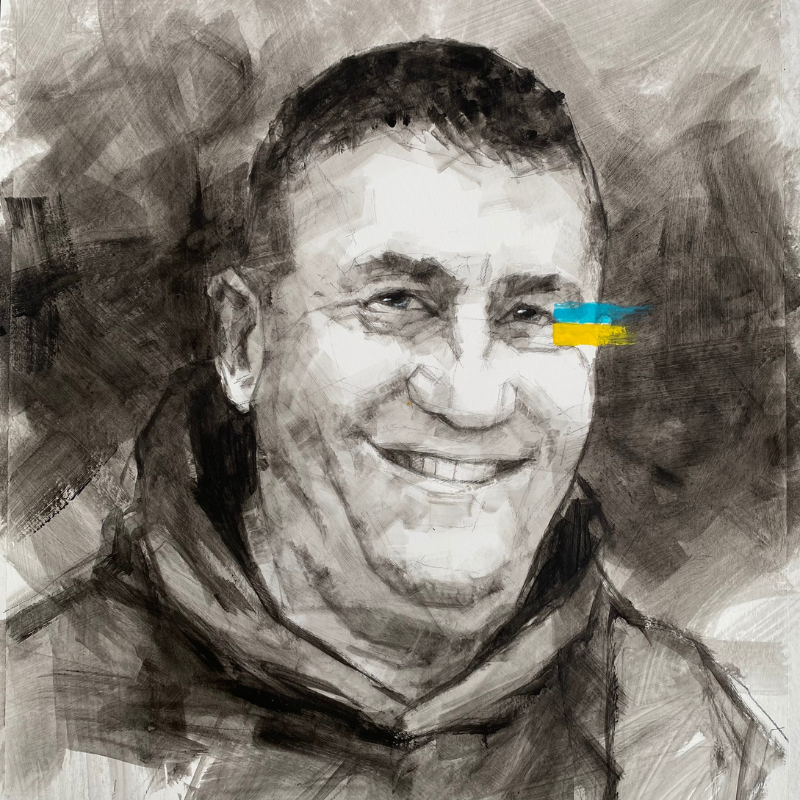
The story of a hostage
The story of a hostage

Serhii Kotov
Date of abduction: April 7, 2022
Place of abduction: Oleshky, Kherson region
Serhii Kotov is a driving instructor from Oleshky, Kherson region. When the Russians started a full-scale war against Ukraine and occupied the town, he and his family stayed at home. On April 7, armed invaders broke into the Kotovs' house, illegally searched it, and kidnapped Serhii. There was no contact with him for over a year. Later, the family learned that the Russians held the man in the seized building of the Kherson SSU, where he was beaten, tortured with electric shocks, and taken to execution. Then, the man was held in pre-trial detention centers No. 1 and No. 2 in Simferopol. In Crimea, he was illegally sentenced to 15 years in prison, allegedly for espionage. Serhii has hepatitis C, chronic pancreatitis, hernias, and osteomyelitis (bone disease), has to use crutches to get around, and needs regular medical care, which the Russians do not provide him. “With such diagnoses, 15 years in prison is a death sentence for my father,” emphasizes Victoria, Kotov's daughter. In the detention center, Serhii lost 20 kilograms. In April 2024, the Russians illegally transferred the man to Russia, and now he is in quarantine along with other civilian and military Ukrainians. Subsequently, Serhii will be transferred to the barracks to serve his illegal sentence.
This publication was compiled with the support of the International Renaissance Foundation. It’s content is the exclusive responsibility of the authors and does not necessarily reflect the views of the International Renaissance Foundation.
Roman Zarubaev

The story of a hostage
The story of a hostage

Roman Zarubaev
Date of disappearance: October 8, 2022
Place of disappearance: Melitopol, Zaporizhzhia region
When the full-scale war began, Roman Zarubaev did not leave Melitopol, he wanted to settle all his affairs. But later he was detained. It happened in the apartment where he was staying with his friend. Roman's aunt Natalia says that they were being watched, and the owner of the apartment was hostile to them. Zarubaev was careless enough to tell her that he did not plan to go to the pseudo-referendum. In addition, he had a large tattoo of Ukraine's coat of arms on his wrist. He interrupted him, but someone might have known about it.
On October 8, 2022, Roman and his friend were abducted by Russians and taken to an unknown destination. His family did not know where the man was being held for eight months. Later it turned out that he had been in Melitopol all this time.
“They were held in the basement, abused and tortured. There is a video where they 'confess' to crimes. Their legs and arms are behind their backs, but you can see that they were badly beaten,” says Natalia.
Then Roman was transported to the Russian city of Rostov-on-Don. He arrived there very tired, thin and hungry. He was tried under five articles, accused of weapons possession and terrorism, in particular, of preparing an explosion near a “polling station” in Melitopol during the pseudo-referendum, and called an “agent of Ukrainian intelligence”. According to recent reports, Roman is still in Rostov.
This publication was compiled with the support of the International Renaissance Foundation. It’s content is the exclusive responsibility of the authors and does not necessarily reflect the views of the International Renaissance Foundation.
Volodymyr Mykolayenko
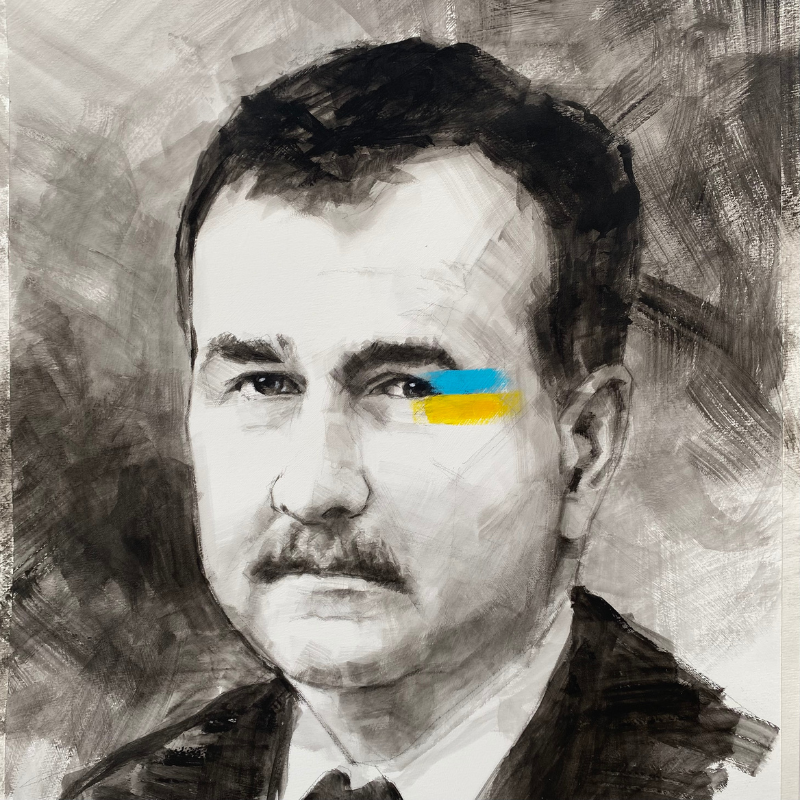
The story of a hostage
The story of a hostage

Volodymyr Mykolayenko
Date of abduction: April 18, 2022
Place of abduction: Kherson
Volodymyr Mykolaienko was the mayor of Kherson, a regional center in southern Ukraine, from 2014 to 2020. Mykolaienko, 62, did not leave his hometown when the occupation began. The Russians repeatedly tried to force him to cooperate, but he resolutely refused. On April 18, Volodymyr disappeared, leaving his home and never returning.
The former mayor of Kherson became one of dozens of local residents abducted in the spring of 2022. Most were involved in the city's defense or those who openly supported Ukraine despite the occupation. Soon after, the Russians released a propaganda video with Mykolayenko, but even in captivity, the man behaved with dignity and did not abandon his pro-Ukrainian position. In early May, the occupiers came to search Mykolayenko's and his daughter's apartments. That was the last time his wife Maryna saw Volodymyr. "Two cars with the letters 'Z' arrived. There were military men in one and men in black uniforms in the other. I think they were FSB officers. My husband was in the car with them. When he got out, I told him: "Tell me everything." He said, "Tell everyone that I love you very much," Maryna recalls. According to the woman, the search itself turned into a regular robbery. The Russians took everything they saw: routers, perfume, alcohol, mushrooms, and coffee.
The former mayor was initially held in the Kherson police station, where he was brutally tortured. Later, the man was transported to the occupied Crimea. And after a while — to the territory of the Russian Federation.
Serhiy Tsyhypa
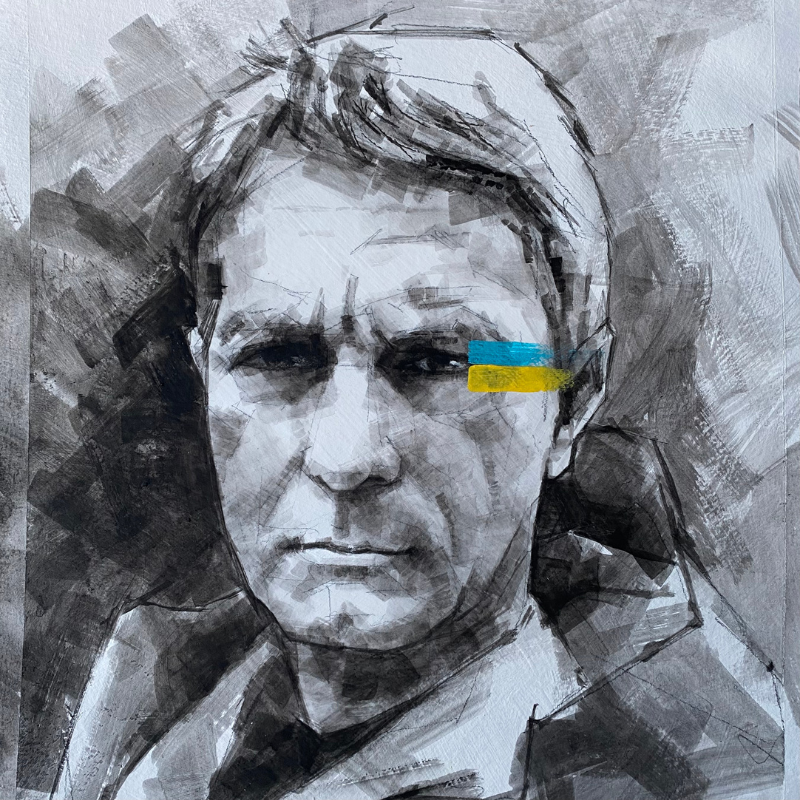
The story of a hostage
The story of a hostage

Serhiy Tsyhypa
Date of disappearance: March 12, 2022
Place of disappearance: Nova Kakhovka, Kherson region
Serhiy Tsyhypa was a Ukrainian journalist known for his active civic position. When Russian troops occupied Nova Kakhovka, Tsyhypa stayed and helped people: he organized humanitarian aid and, as a journalist, reported on the situation in the occupied territories. He publicly spoke out against the occupation, condemned collaborationism, and urged people not to believe Russian propaganda.
On March 12, 2022, he was abducted by the Russian military. Since then, none of his family has seen Serhii. The man was taken to the occupied Crimea to the Simferopol Detention Center and accused of espionage. In October 2023, the so-called trial took place, where the verdict was announced: 13 years in prison in a strict regime colony.
Since his abduction, his wife, Olena Tsyhypa, has been fighting for his release. She has united with other families of civilian prisoners to call on the world to put pressure on Russia to release civilians. “We cannot live, wake up, breathe in peace when our relatives are in captivity,” emphasizes Olena Tsyhypa. In May 2024, she received a letter from her husband. In it, Serhii said that he was being transferred to the Ryazan region to a strict regime colony in the city of Skopin. From time to time, the woman receives emails from there. It follows from them that the administration is constantly worsening the conditions of Tsygipa's detention, arguing that he is disobeying the regime.
Meanwhile, Olena's struggle continues. She believes that her husband will return home soon.
This publication was compiled with the support of the International RenaissanceFoundation. It’s content is the exclusive responsibility of the authors and does not necessarily reflect the views of the International Renaissance Foundation.
Anastasia Glukhovska
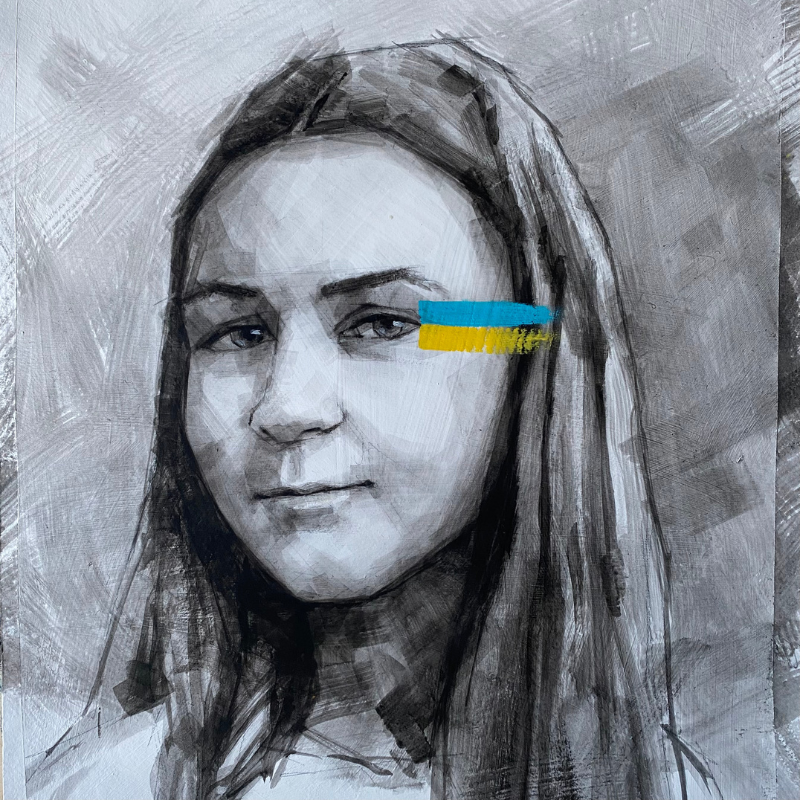
The story of a hostage
The story of a hostage

Date of abduction: August 20, 2023
Place of abduction: Melitopol, Zaporizhzhia region
On the night of August 19-20, 2023, Russian security forces raided Ukrainian media workers in Melitopol. Around six in the morning, they came to the home of 30-year-old Anastasia Glukhovska. Before the full-scale invasion, the woman worked as a journalist at the local RIA-Melitopol news agency. But since the city's occupation, she has stopped working in the editorial office and even registered with the local employment center. On the morning of August 20, Anastasia was supposed to meet her mother, who arrived around eight o'clock and rang the intercom, but no one answered. She learned from her neighbors that people in uniforms without insignia had come and taken her daughter in an unknown direction around six o'clock. Later, Russian television aired a report that reported on the exposure of several Ukrainian intelligence groups. The video showed the moment when people in uniform broke into Glukhovska's apartment and took her away in handcuffs. Since Anastasia's abduction, her relatives have been trying to find out where she is being held, but the occupation authorities have been hiding this information. This publication was compiled with the support of the International Renaissance Foundation. It’s content is the exclusive responsibility of the authors and does not necessarily reflect the views of the International Renaissance Foundation.Mariano Garcia Calatayud
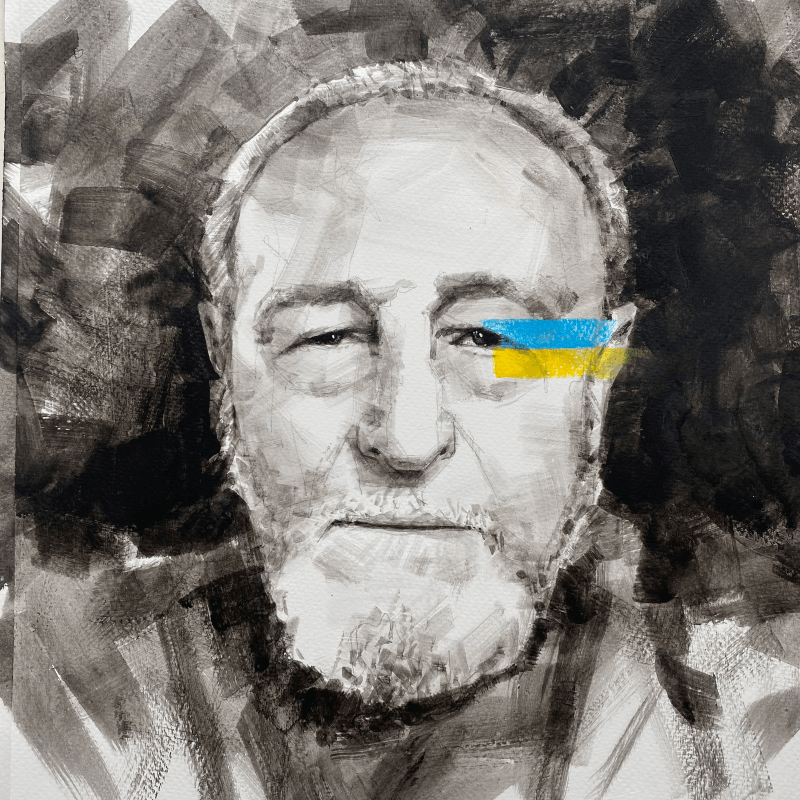
The story of a hostage
The story of a hostage

Mariano Garcia Calatayud
Date of disappearance: March 19, 2022
Place of disappearance: Kherson, Kherson region
Mariano is a Spanish citizen. The man was 74 years old when the Russian military abducted him in the center of occupied Kherson. Prior to the full-scale invasion, the man had been living in Ukraine for several years, doing volunteer work, often traveling to the contact line in the east of the country, bringing humanitarian aid to civilians, and visiting orphanages.
"Mariano has a good heart. When he learned about the war in Ukraine in 2014, about the suffering of civilians, he left everything and came here to help people," says his civilian wife, Tetiana. When Kherson was occupied in 2022, Mariano and other citizens attended pro-Ukrainian rallies, hoping to force the occupiers to leave. On March 19, 2022, Mariano did not return home after one of the rallies. "He managed to call me and tell me that he had come to the gate, but when I went down to open it for him, there was no one at the door," Tetiana adds. The man was detained in Kherson and later transferred to the occupied Crimea to a detention center where Russians also hold hundreds of Ukrainian civilians.
Witnesses who managed to get out of there say that Mariano's health condition deteriorated: his legs swelled, and he suffered a heart attack but did not receive proper medical care. The Russians are not pressing official charges against the Spanish citizen. He is being held incommunicado, not allowed to communicate with his family or have a lawyer. Mariano's wife appealed to the Spanish government, the media, and law enforcement agencies of Ukraine, wrote numerous requests to various institutions in the Russian Federation and occupied Crimea, but has not yet received an official explanation of what Mariano Garcia Calatayud is accused of.
Ihor Palamarchuk

The story of a hostage
The story of a hostage

Ihor Palamarchuk
Date of disappearance: August 16, 2022
Place of disappearance: Bilozerka village, Kherson region
Ihor Palamarchuk is an entrepreneur from the village of Bilozerka in Kherson region. After the occupation, he decided to evacuate his wife while he remained at home. The man was first detained in June 2022. "The Russian military set up a torture chamber in the local prosecutor's office, and that's where Ihor was taken. They beat the man, took him to the field four times and simulated an execution. At the time of his detention, he was 52 years old and looked his age, and when he was released ten days later, he looked like an old man," says Liubov, Ihor's wife. Palamarchuk told her that civilians were tortured with electric shocks, and he constantly heard screams in the room. They hardly fed them: instead of food, they threw bread on the floor. Palamarchuk was abducted for the second time on August 16, 2022. For a long time, his fate was unknown. After the village was liberated in the fall of 2022, his family tried to find out where he had disappeared to, but no one knew anything. One day, in a Russian media story about captured Ukrainians, Liubov Palamarchuk saw a gaunt man who looked like Ihor. The HRMMU found a prisoner of war released as a result of the exchange, who confirmed that he had seen Ihor Palamarchuk in one of the detention centers in the Russian Federation. There are prisoners of war and civilian Ukrainians held there. The conditions of detention are terrible: prisoners are often beaten and not provided with medical care. For a year, Igor Palamarchuk's family has not received official confirmation of where and why he is being held by Russia.
Oleksandr Shulha
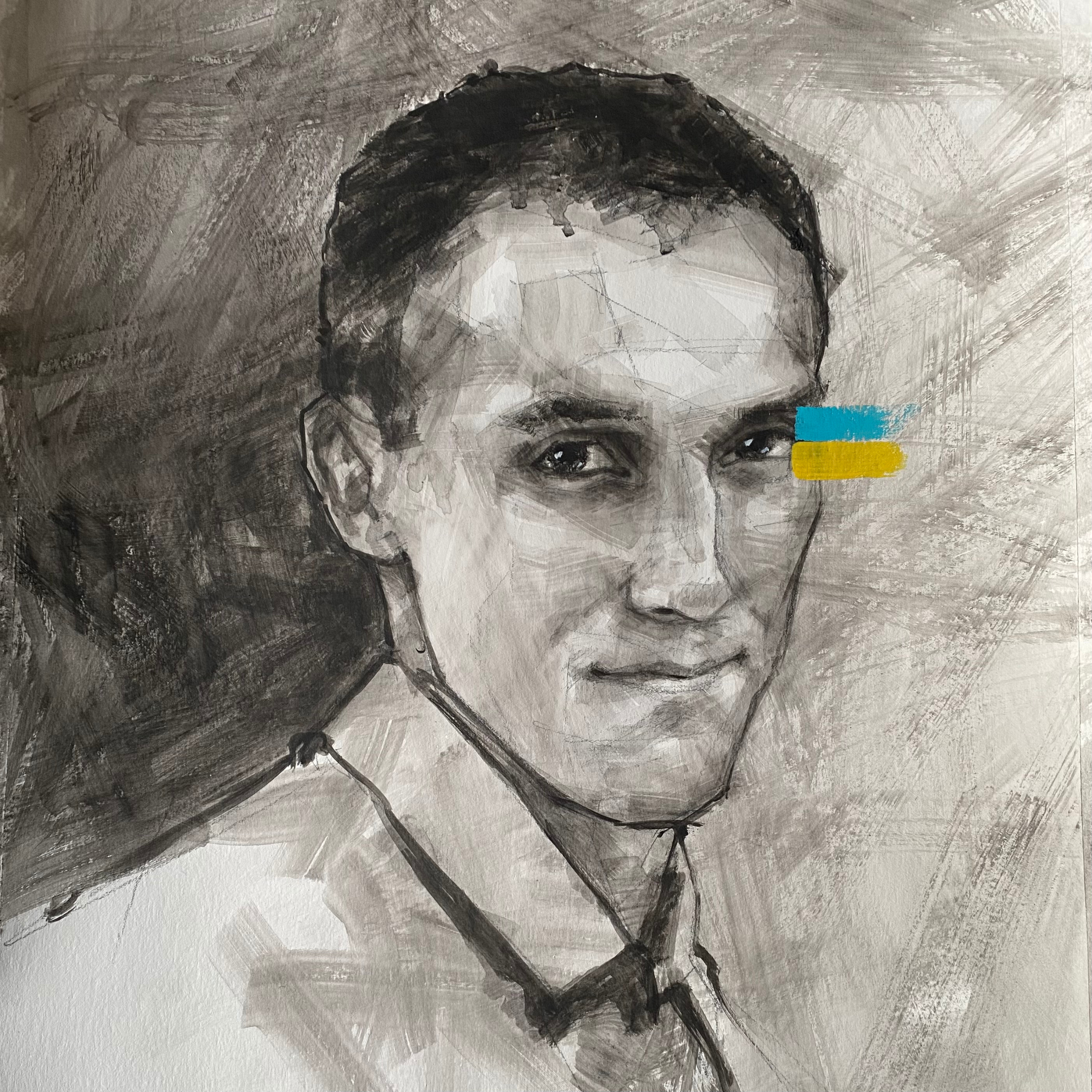
The story of a hostage
The story of a hostage

Oleksandr Shulha
Date of disappearance: November 14, 2022
Place of disappearance: Novotroitske village, Kherson region
Oleksandr Shulha was studying remotely at the Kherson Industrial Institute while working as a laborer. He lived in the village of Bilozerka in the Kherson region. During the first months of the full-scale war, his girlfriend was distributing Russian social aid to Ukrainians there. Because of this, she feared that the Ukrainian authorities would consider her a collaborator. The day after the de-occupation, she and Oleksandr Shulha left for the occupied village of Novotroitske in the Henichesk district.
Two days after their move, Russian forces came for them. They did not touch the girl, but they took Sasha away.
Until December, his mother did not even know what had happened to her son. The girl assured her that he was in a remote village without communication. However, later, the mother of Shulha’s friend—who had been arrested along with him—reached out. She revealed what had happened: the boys were allegedly arrested “for opposing the special military operation (SVO).”
Oleksandr was held in Henichesk, then transferred to Crimea, and later to the Russian city of Kamyshin in the Volgograd region.
"I spoke with a young man, Vasyl. In Kamyshin, he was in the same cell as my son. He told me that Sasha is alive and receiving treatment, but he doesn’t know for what. Sasha had been suffering from back pain lately because he had been doing heavy labor, carrying sacks. Besides that, he has allergies—his nose is constantly blocked. Maybe it’s the air, the humidity, or the dust," says his mother, Rozaliya Shulha.
The young man remains in Detention Center No. 2 in Kamyshin, Volgograd region, to this day.
This publication was compiled with the support of the International Renaissance Foundation. It’s content is the exclusive responsibility of the authors and does not necessarily reflect the views of the International Renaissance Foundation.
SEND A LETTER TO THE RUSSIAN EMBASSY IN YOUR COUNTRY DEMANDING THE IMMEDIATE RELEASE OF UKRAINIAN CIVILIAN HOSTAGES
Wherever you are in the world, please send a letter to the nearest Russian embassy with an immediate demand to find and release Ukrainian civilians — all of them or a specific person we are talking about. Your voice can be decisive in this process of returning civilians to their homes and normal lives. Thanks to your actions and conscious citizenship, we can increase pressure on the Russian Federation and help those who need our support the most. Send a letter today and help bring the prisoners home! #ReleaseHostages #DemandforFreedom #ЗвільнітьЗаручників #ВимагайтеСвободи


